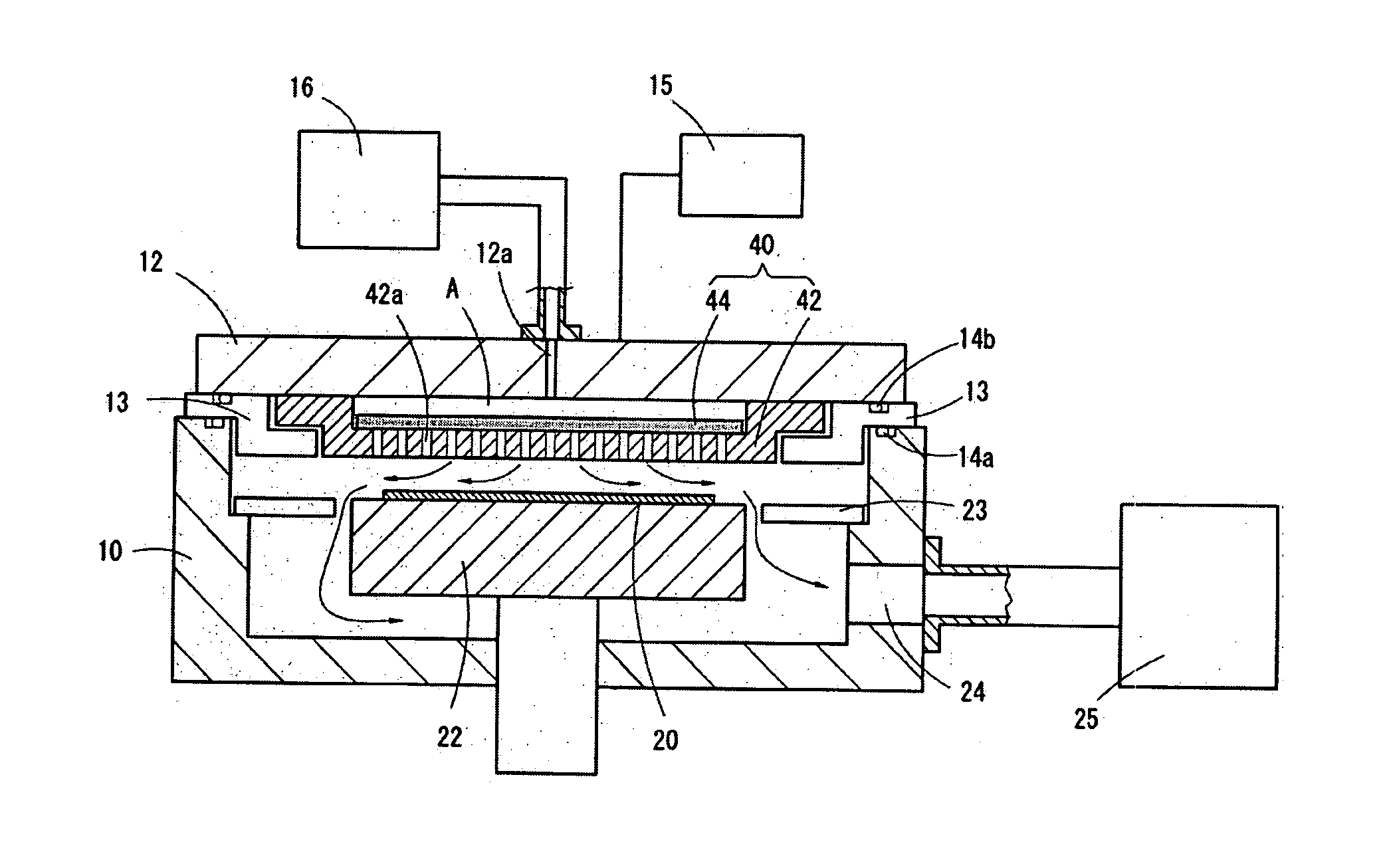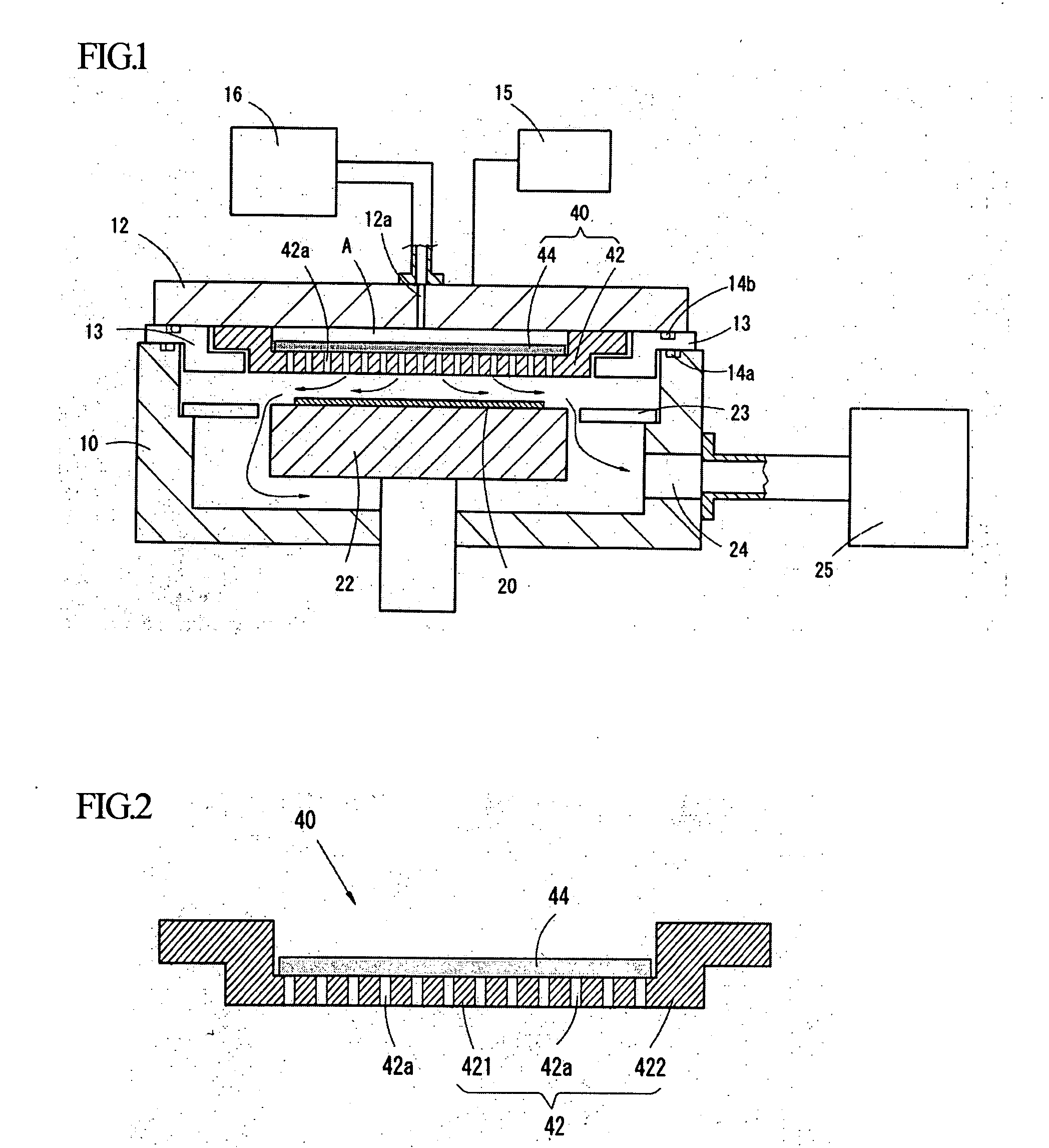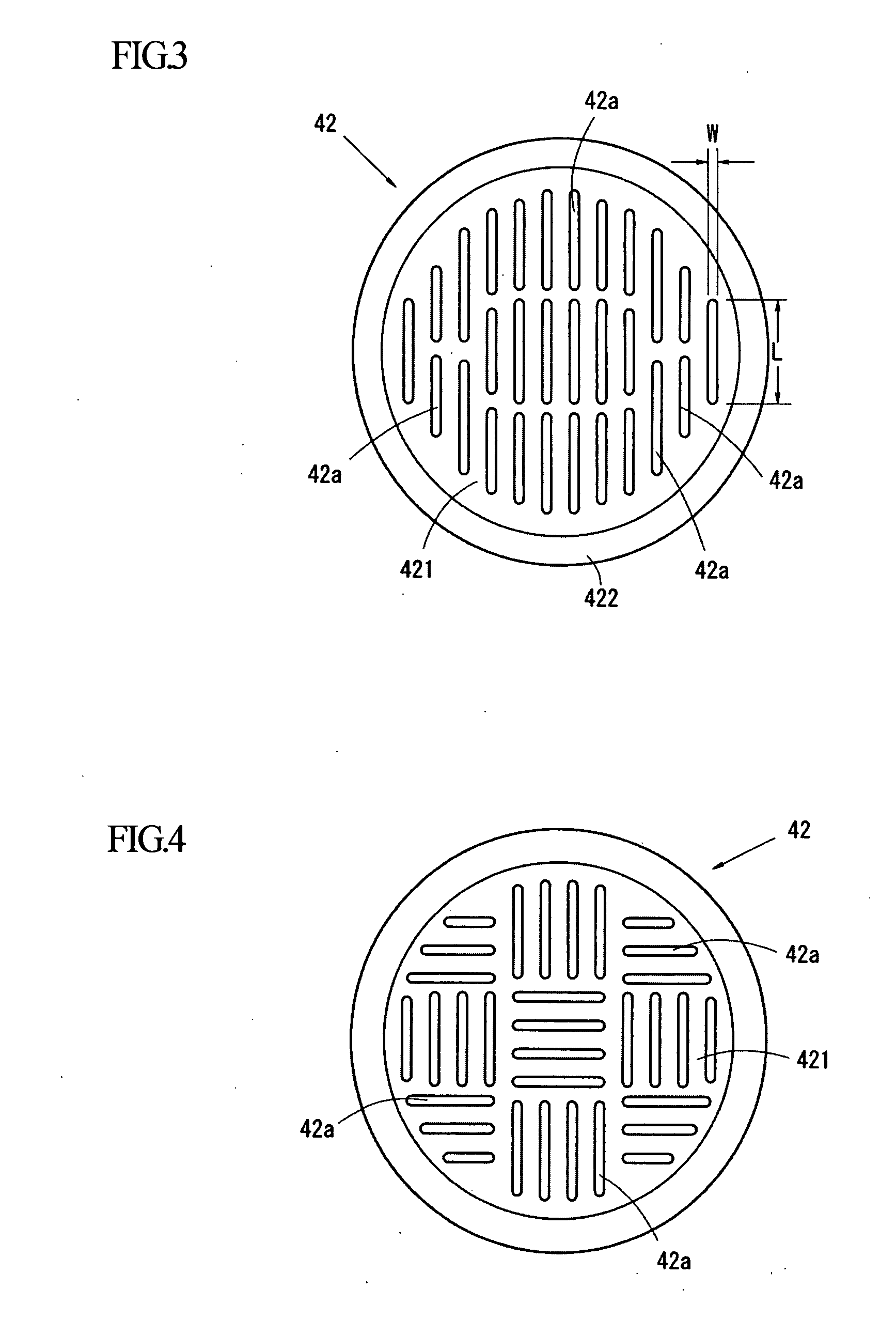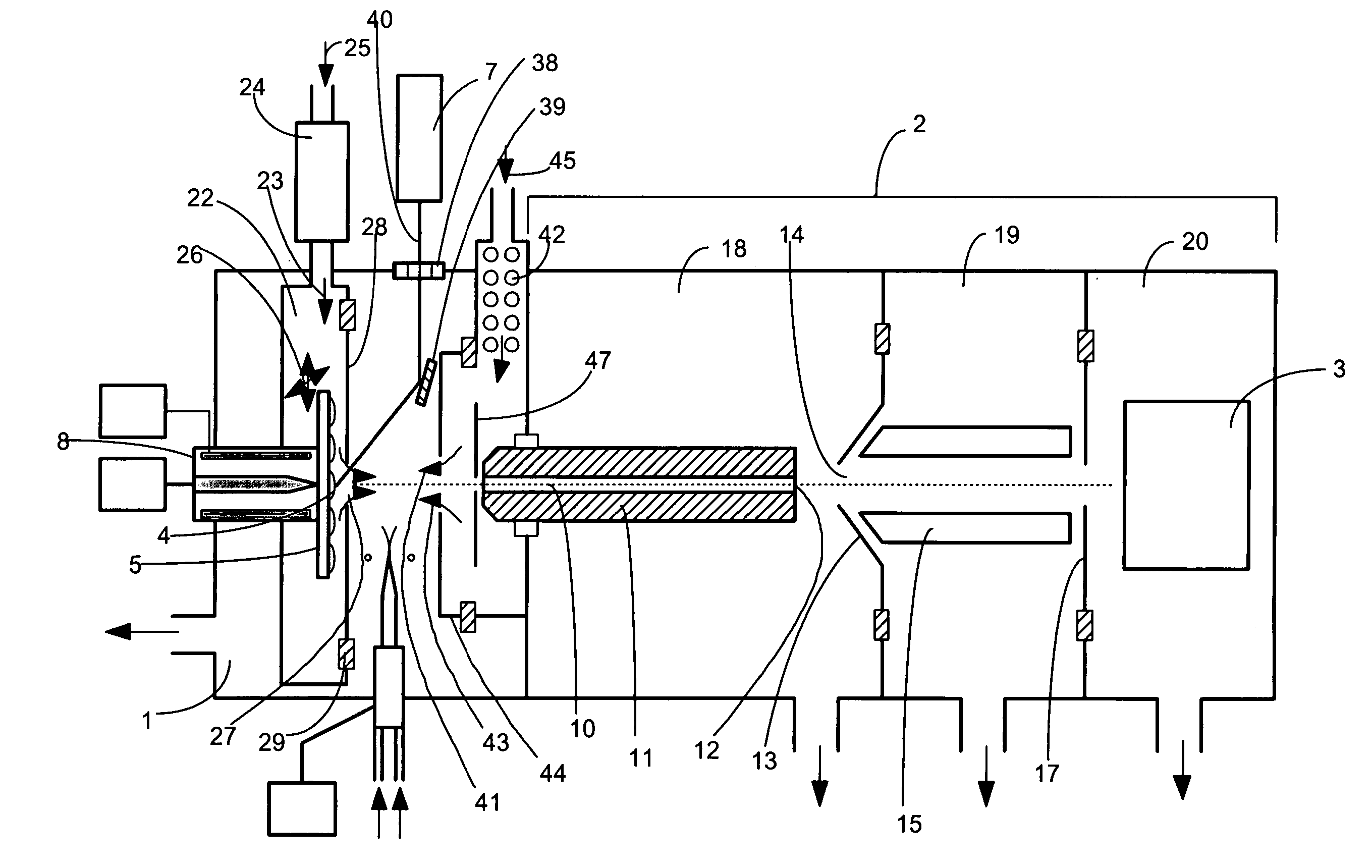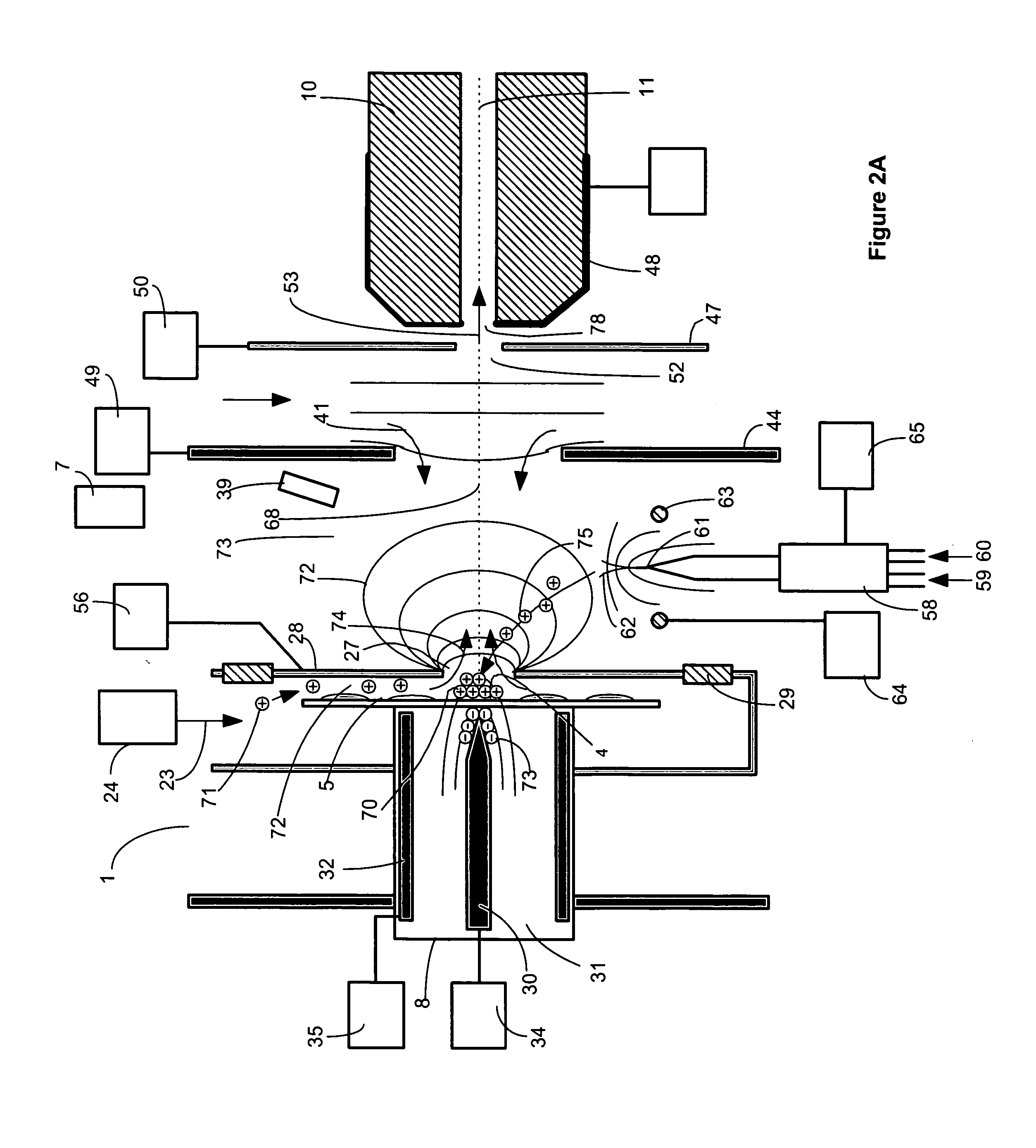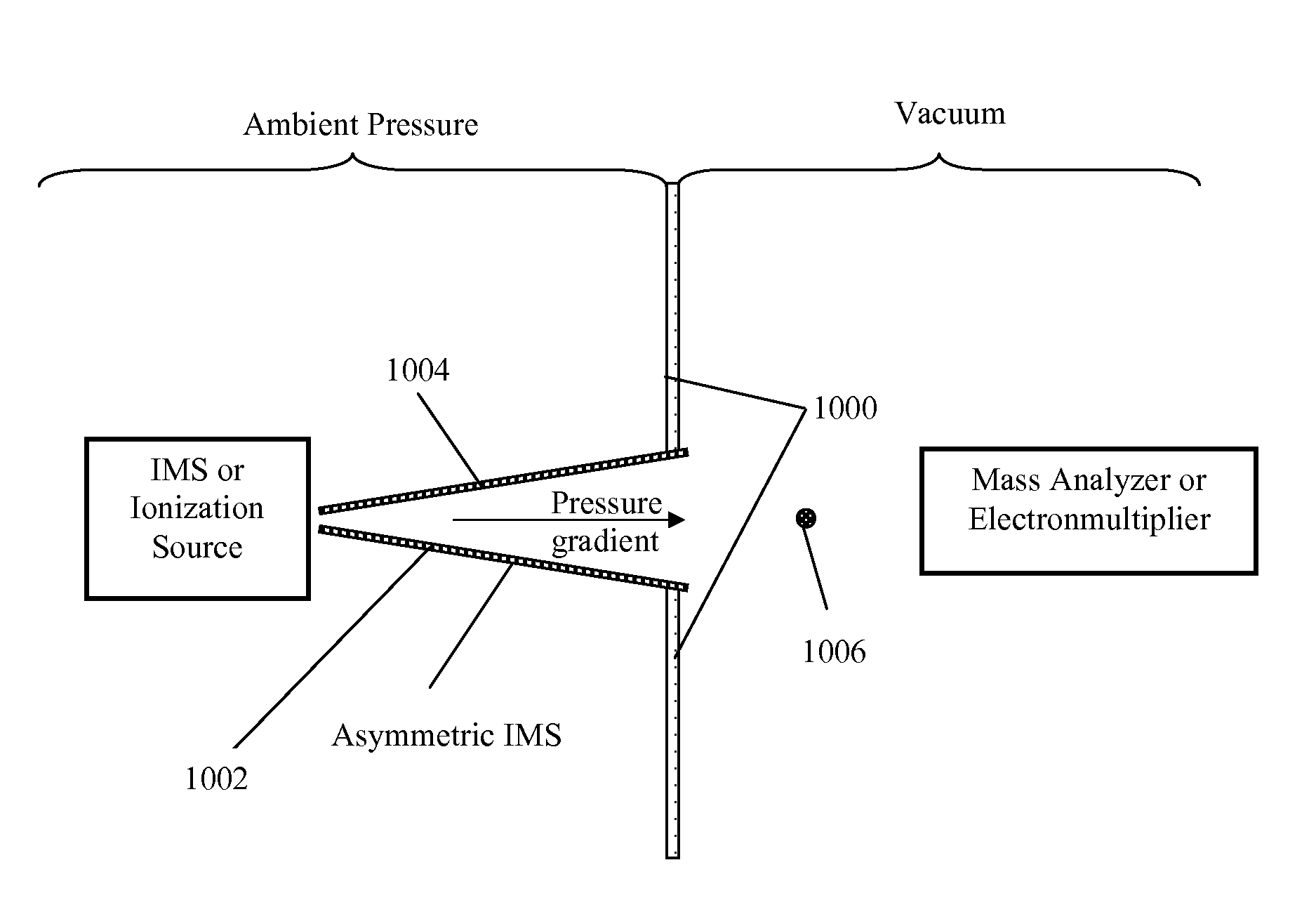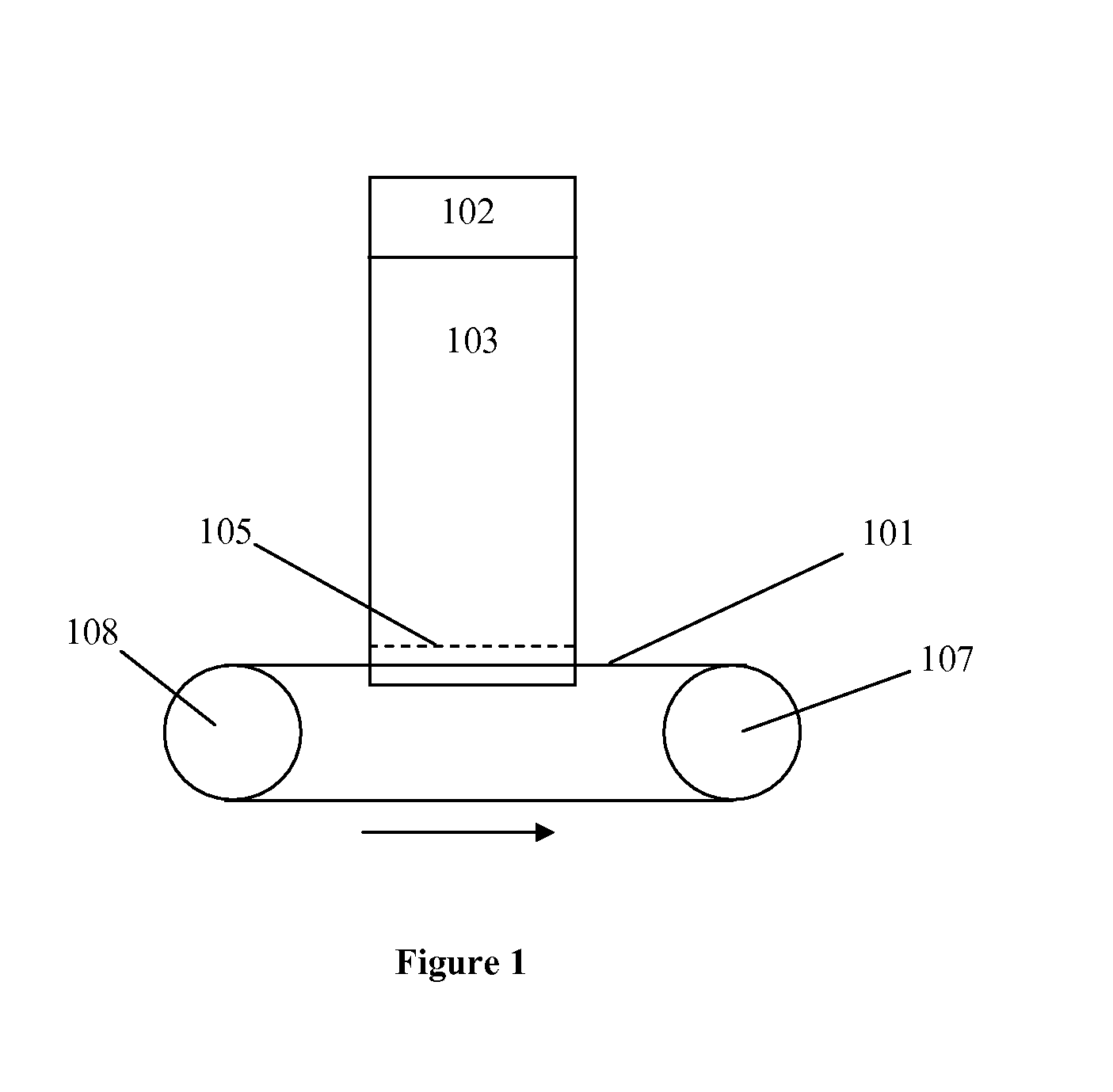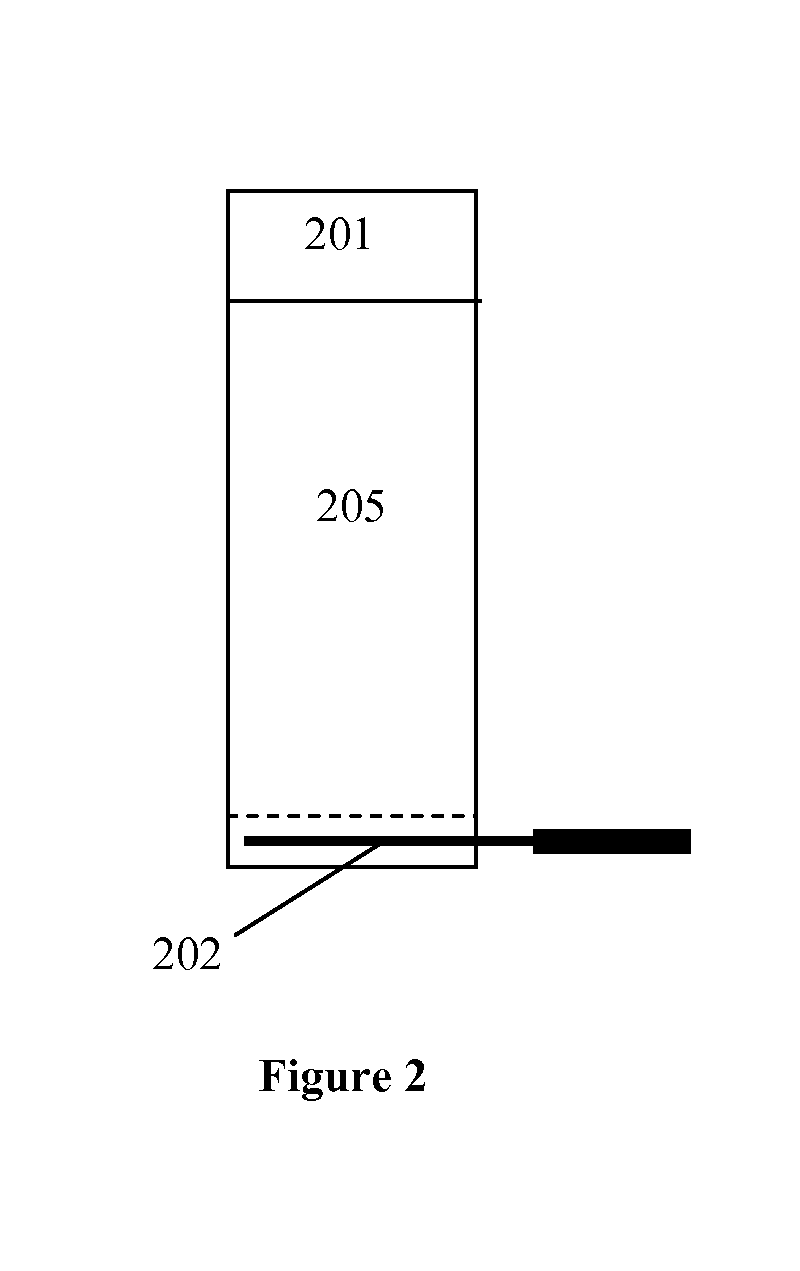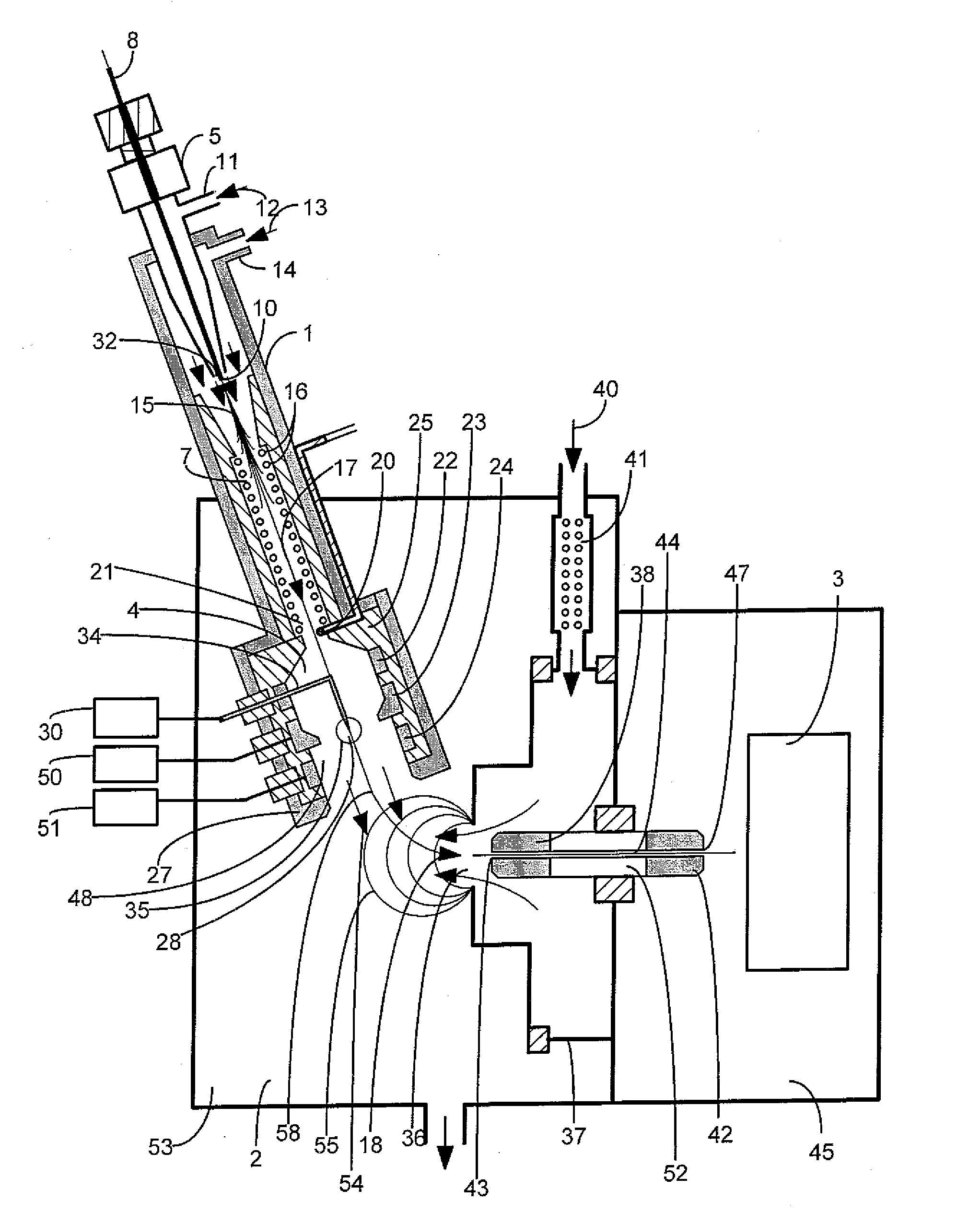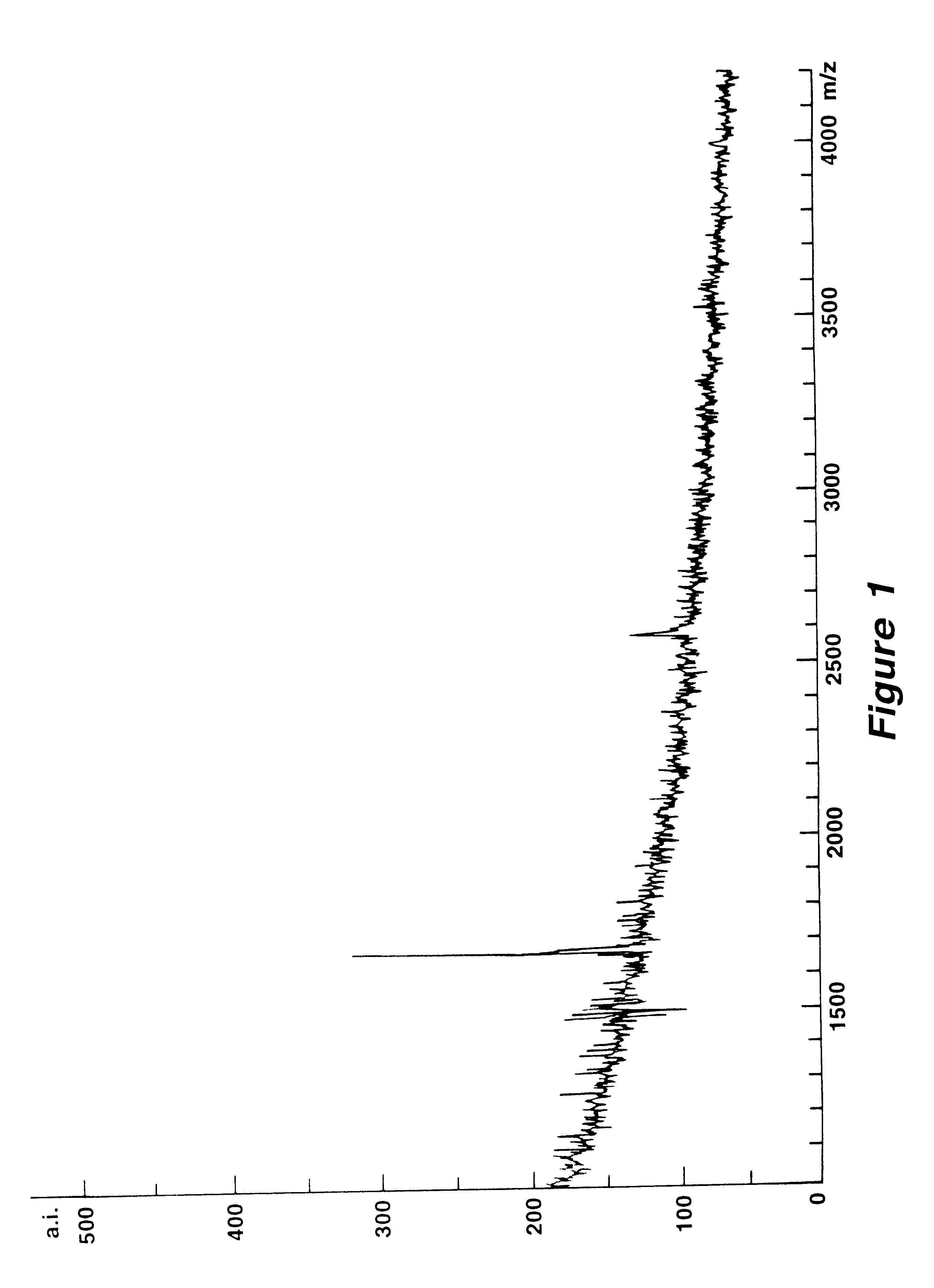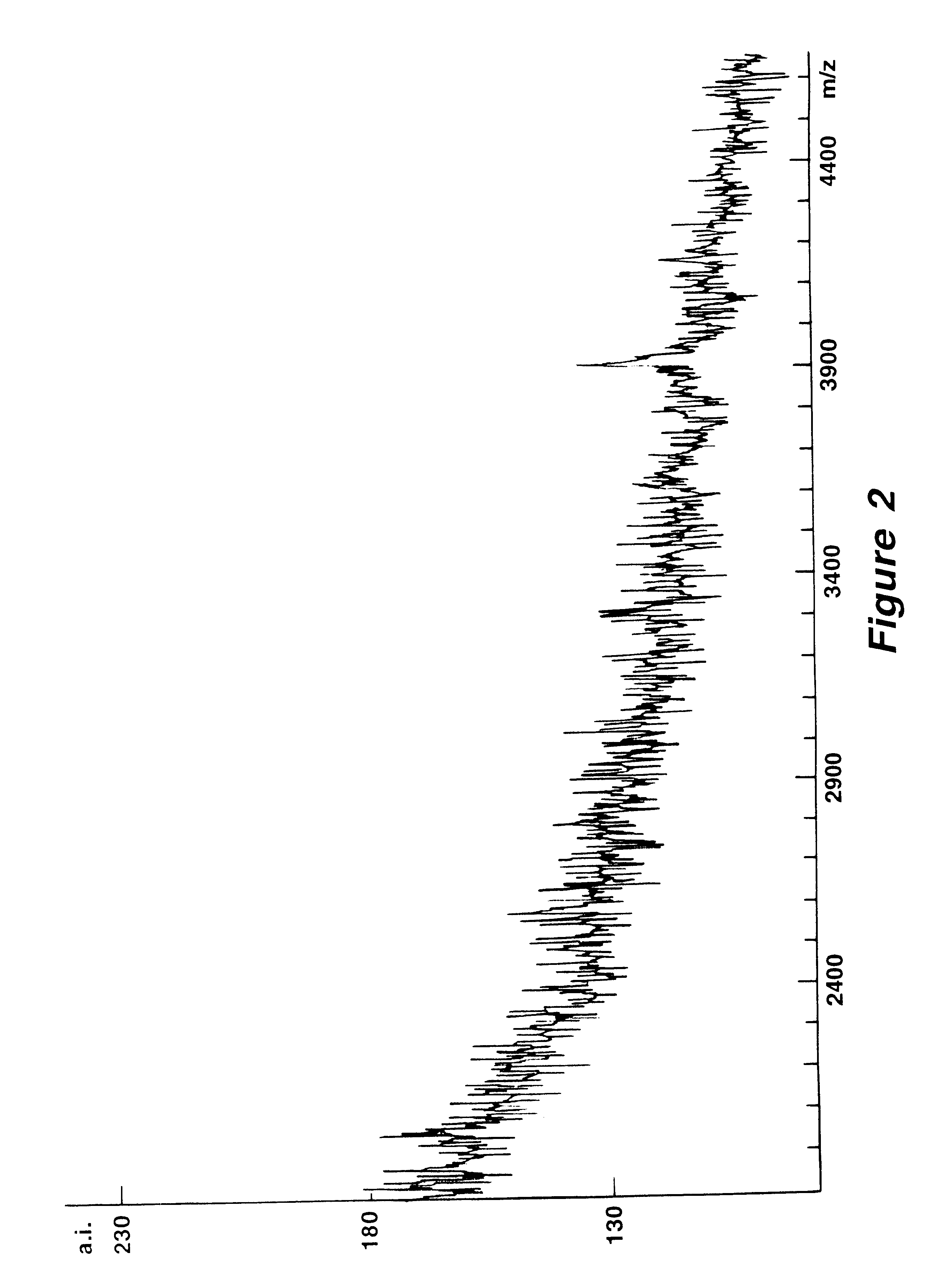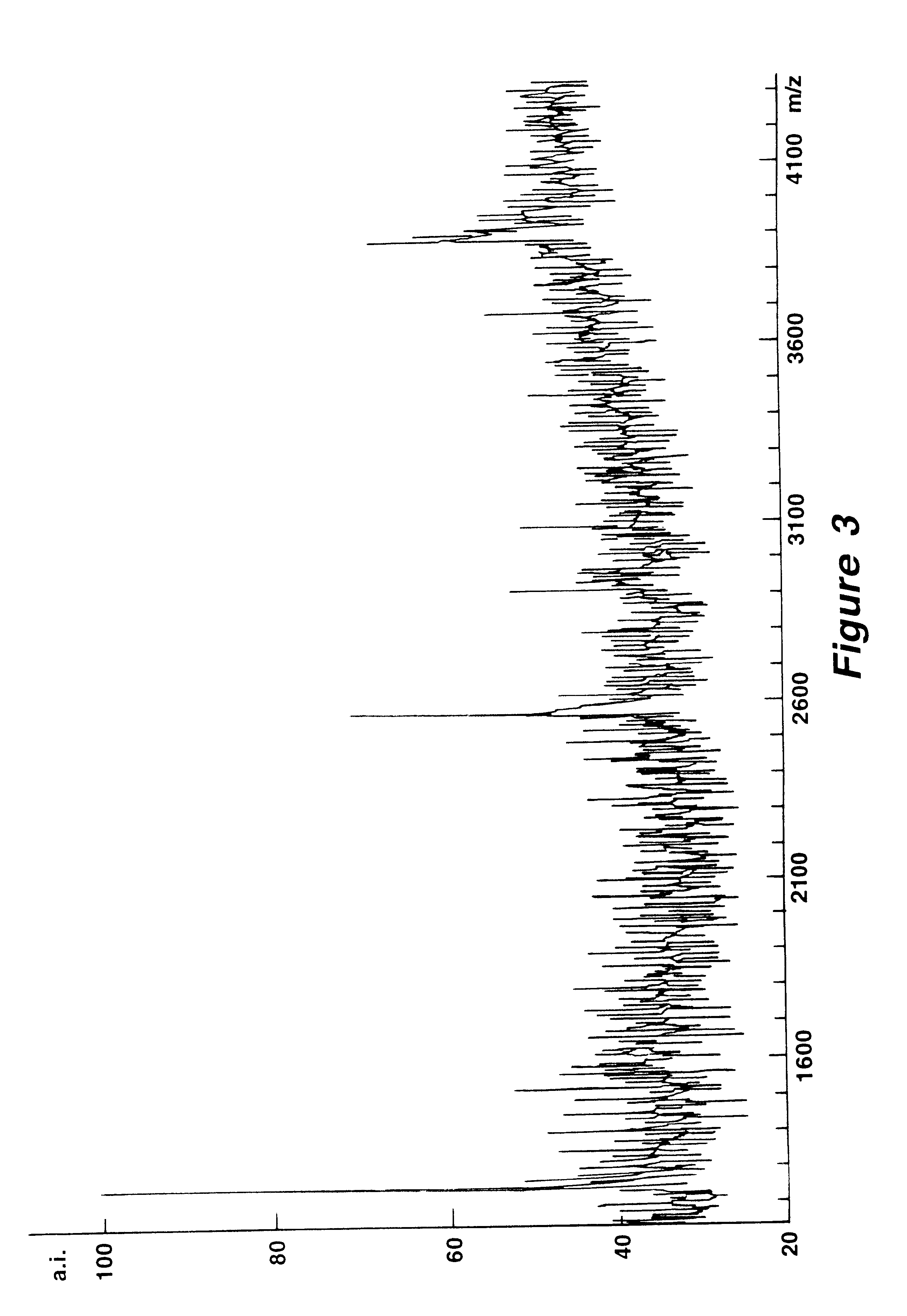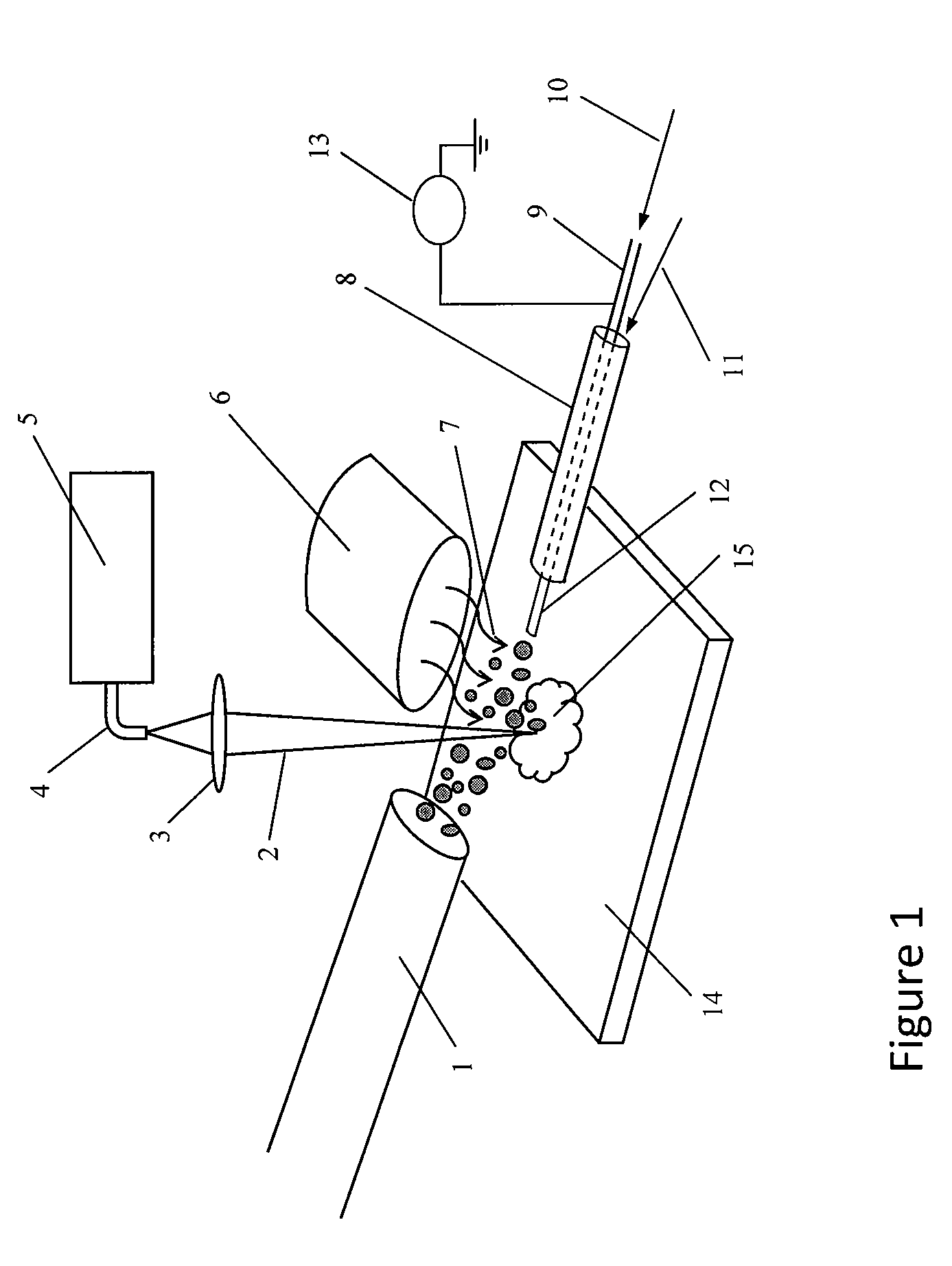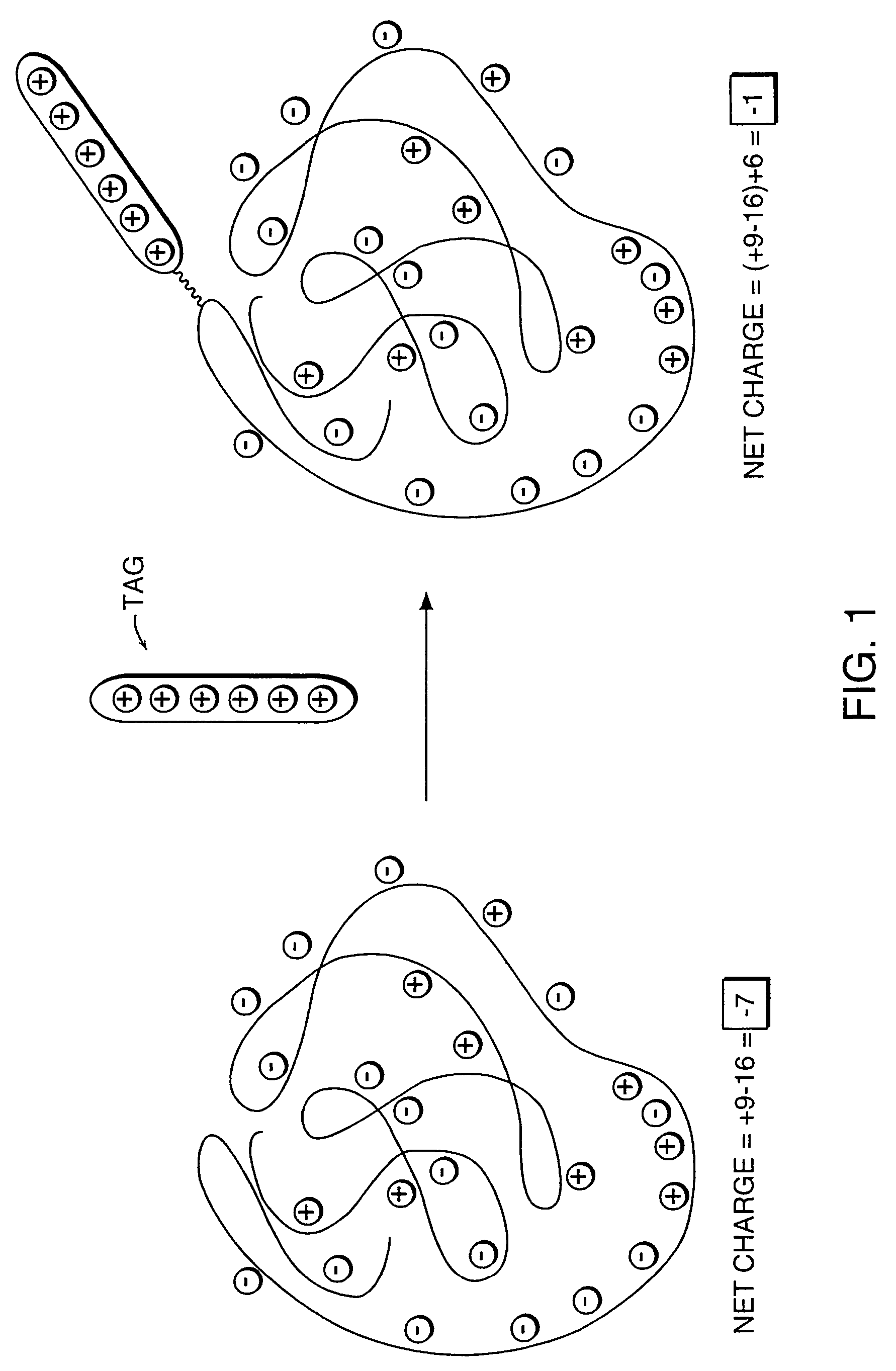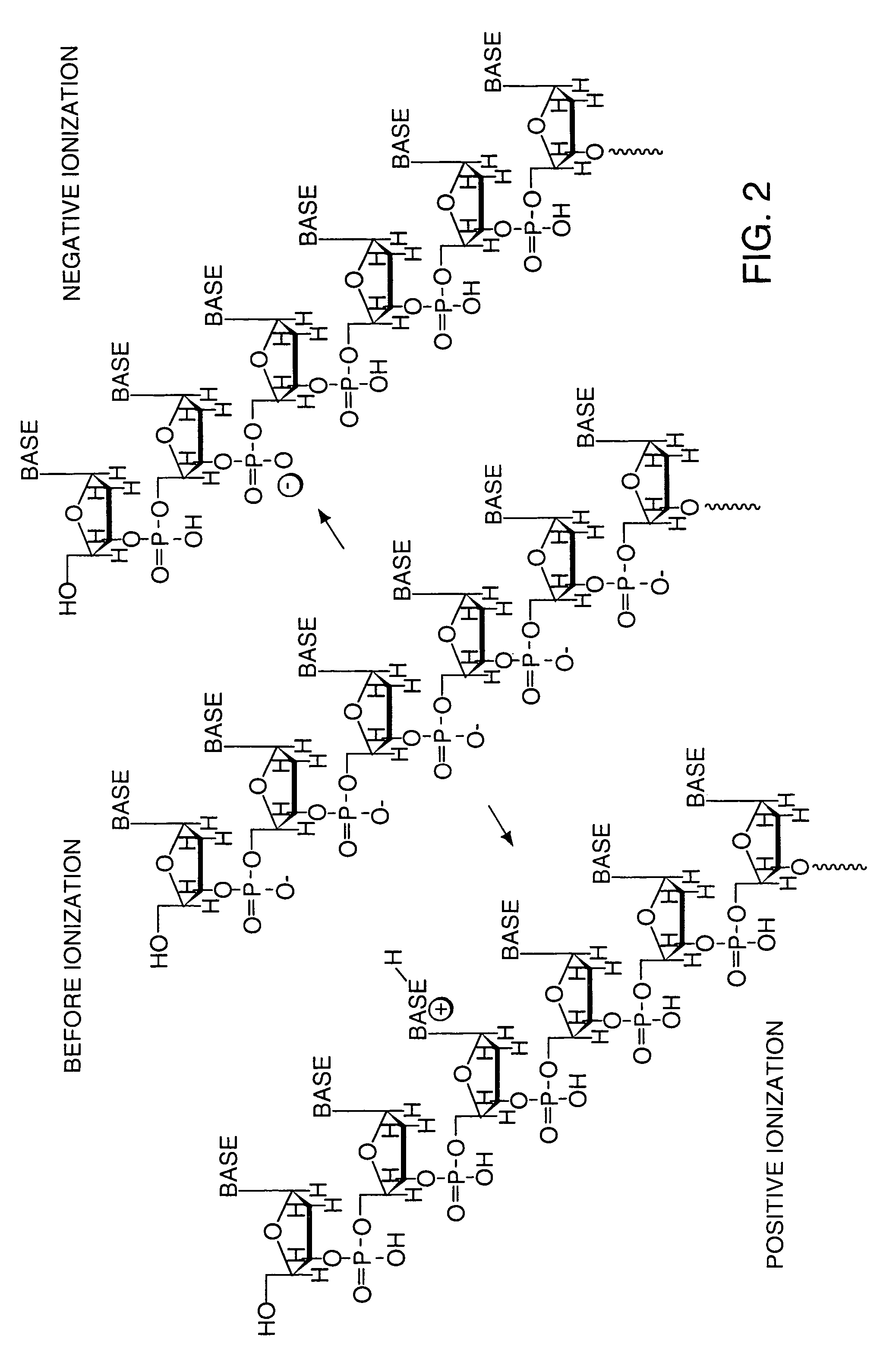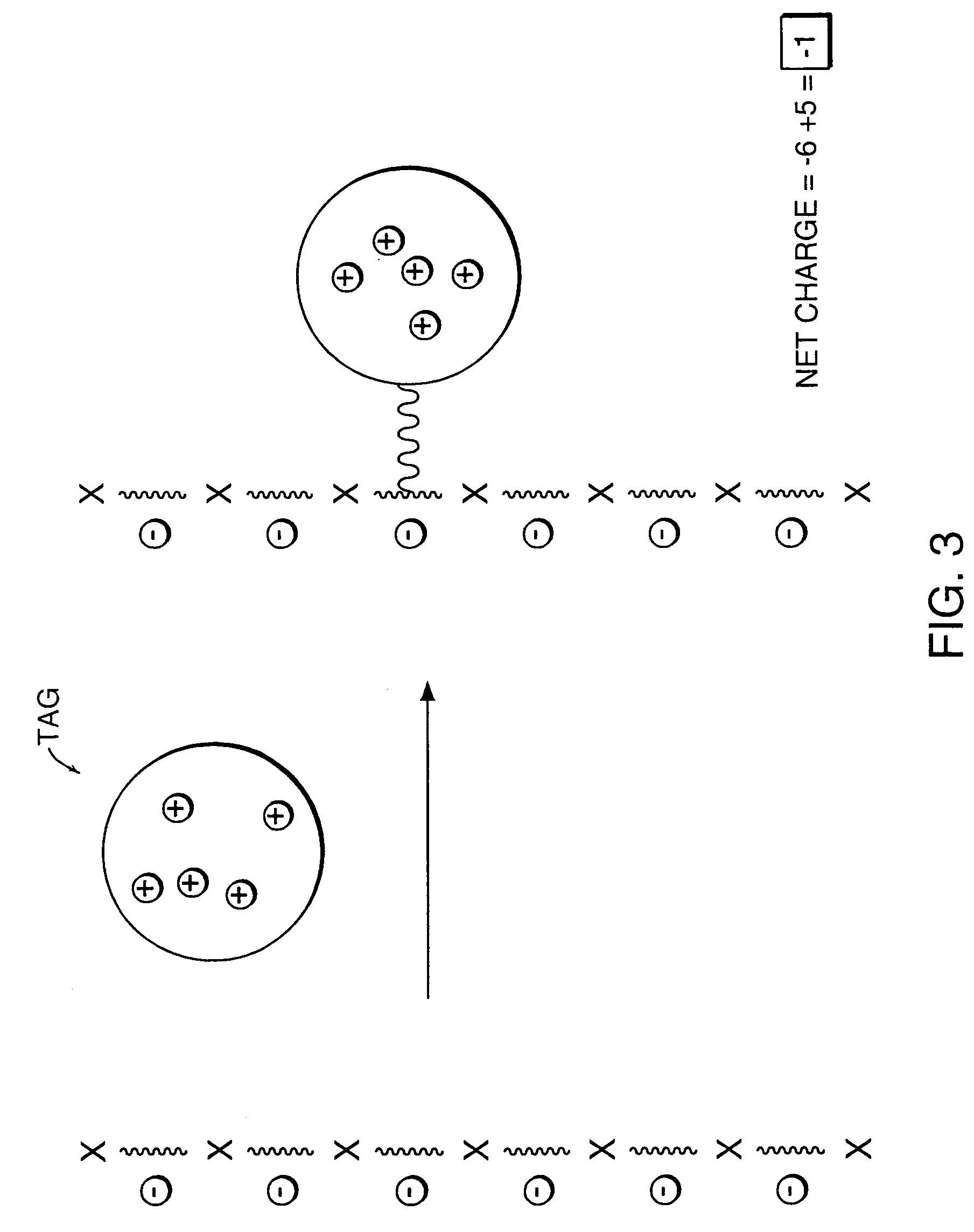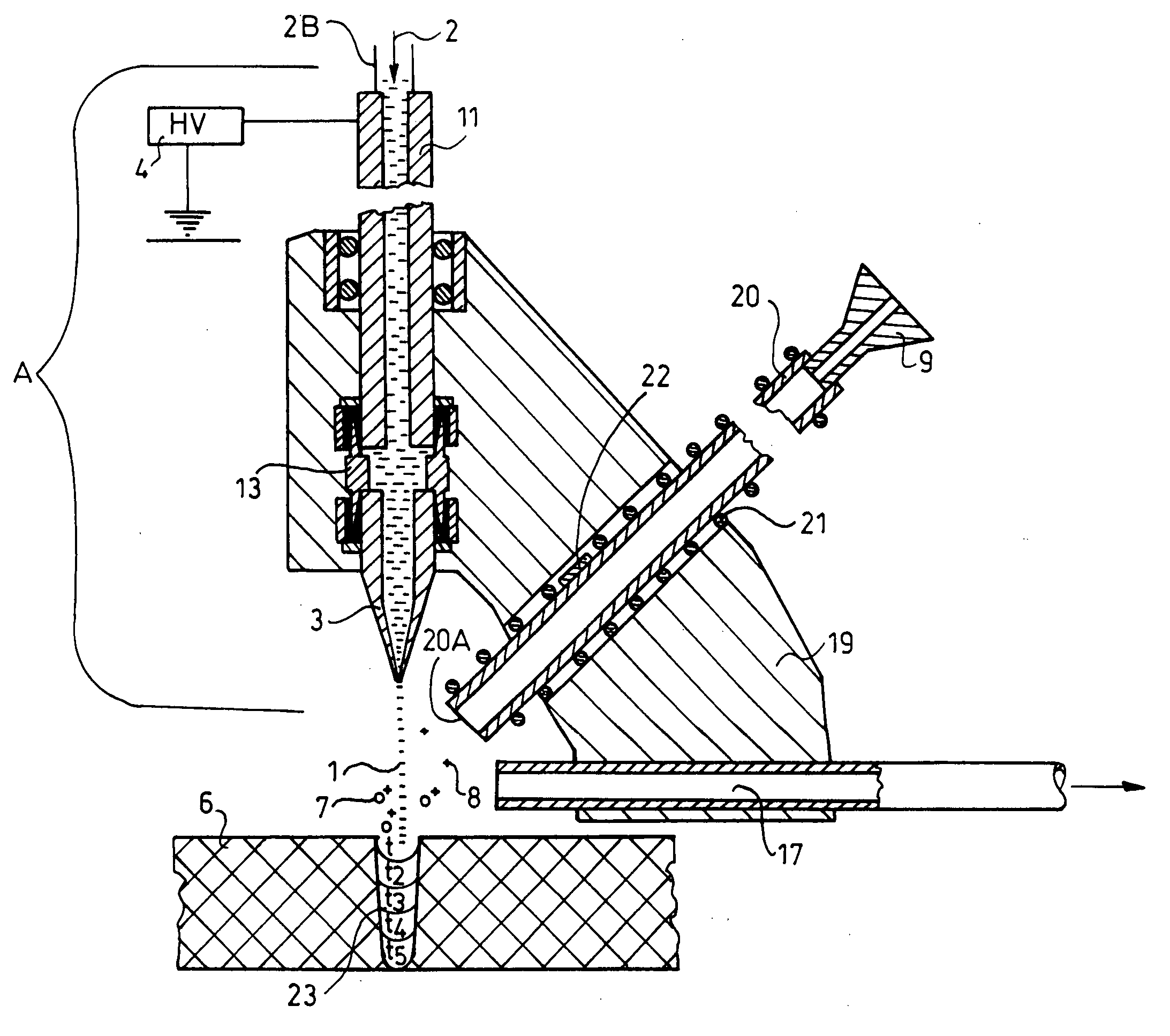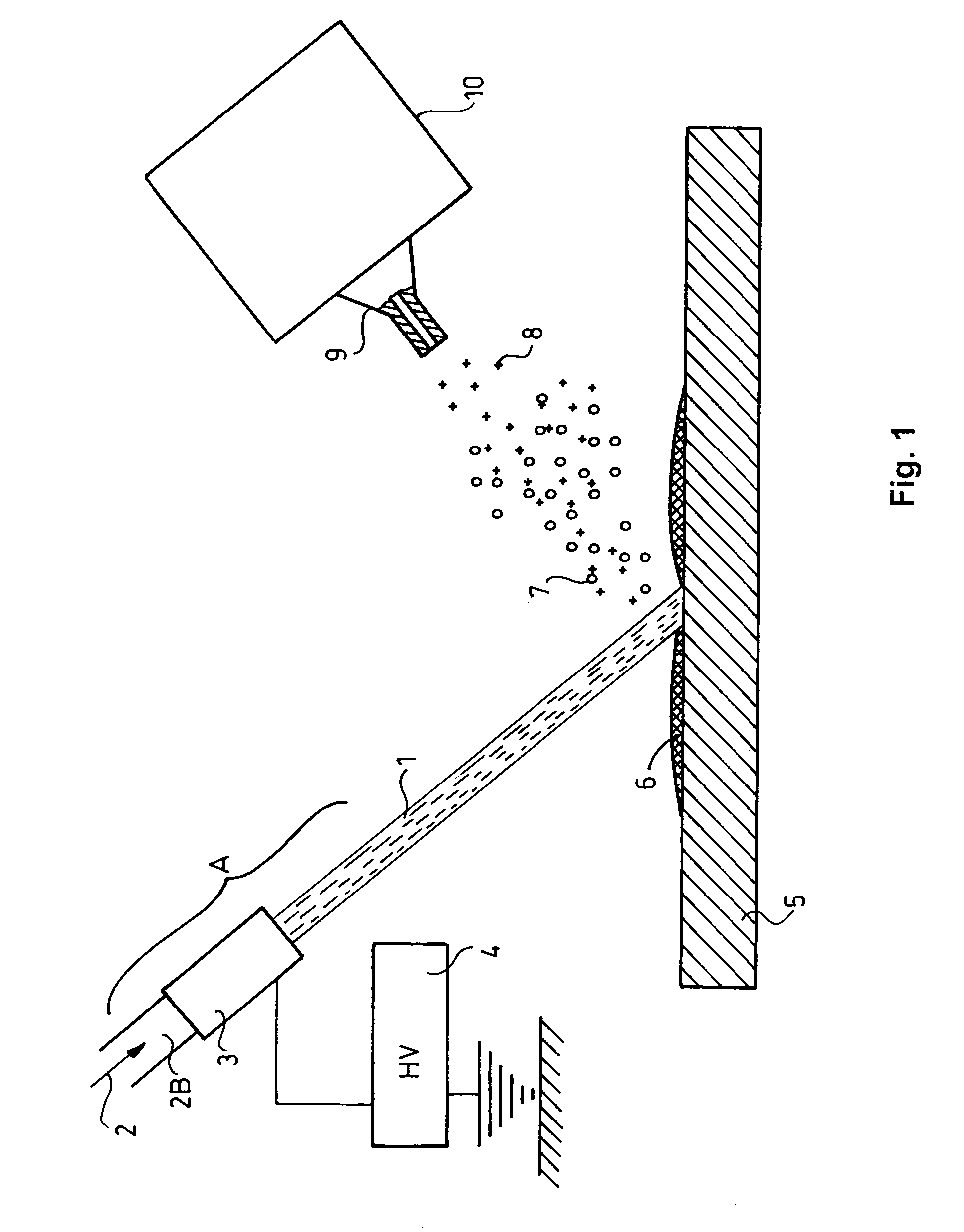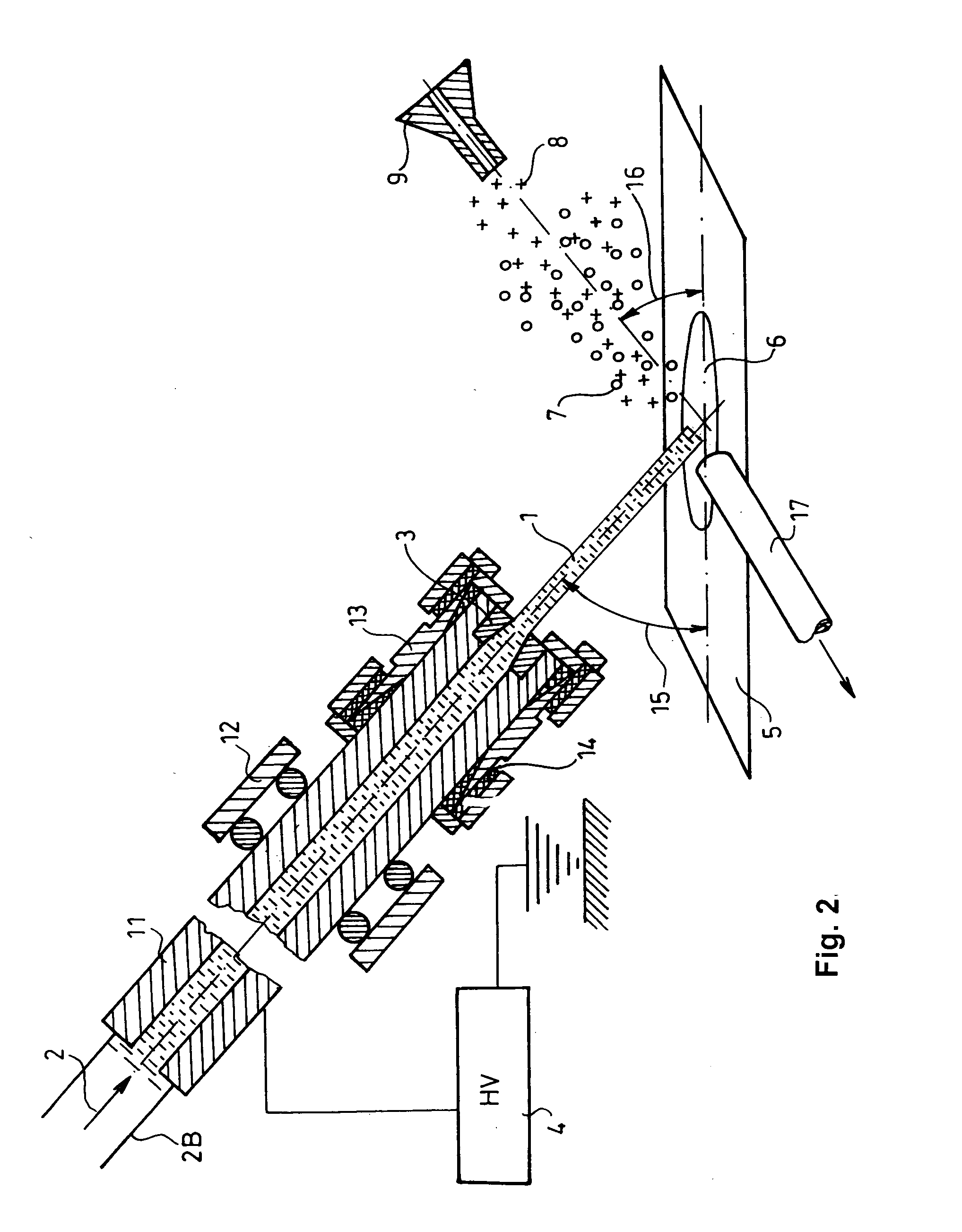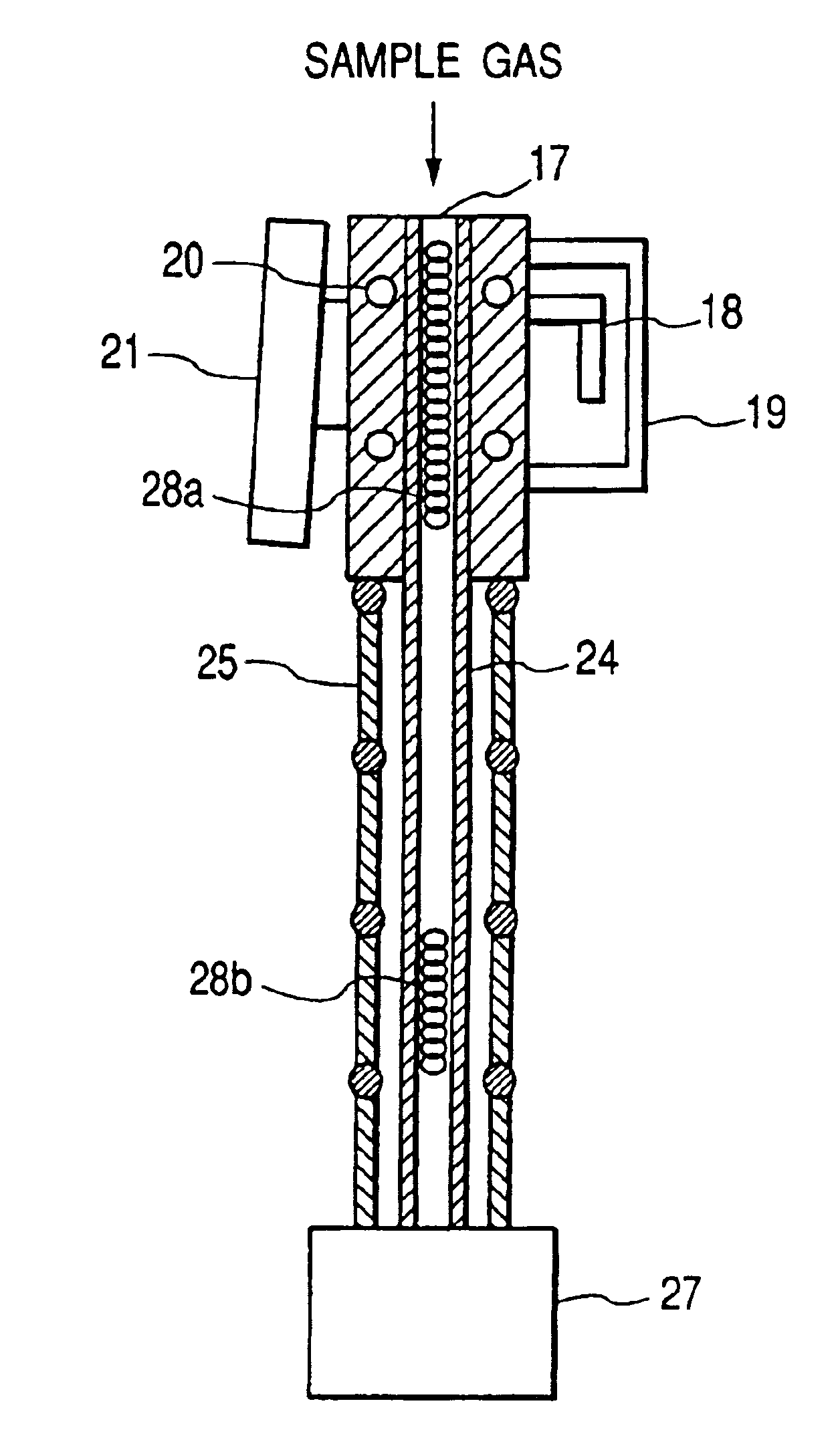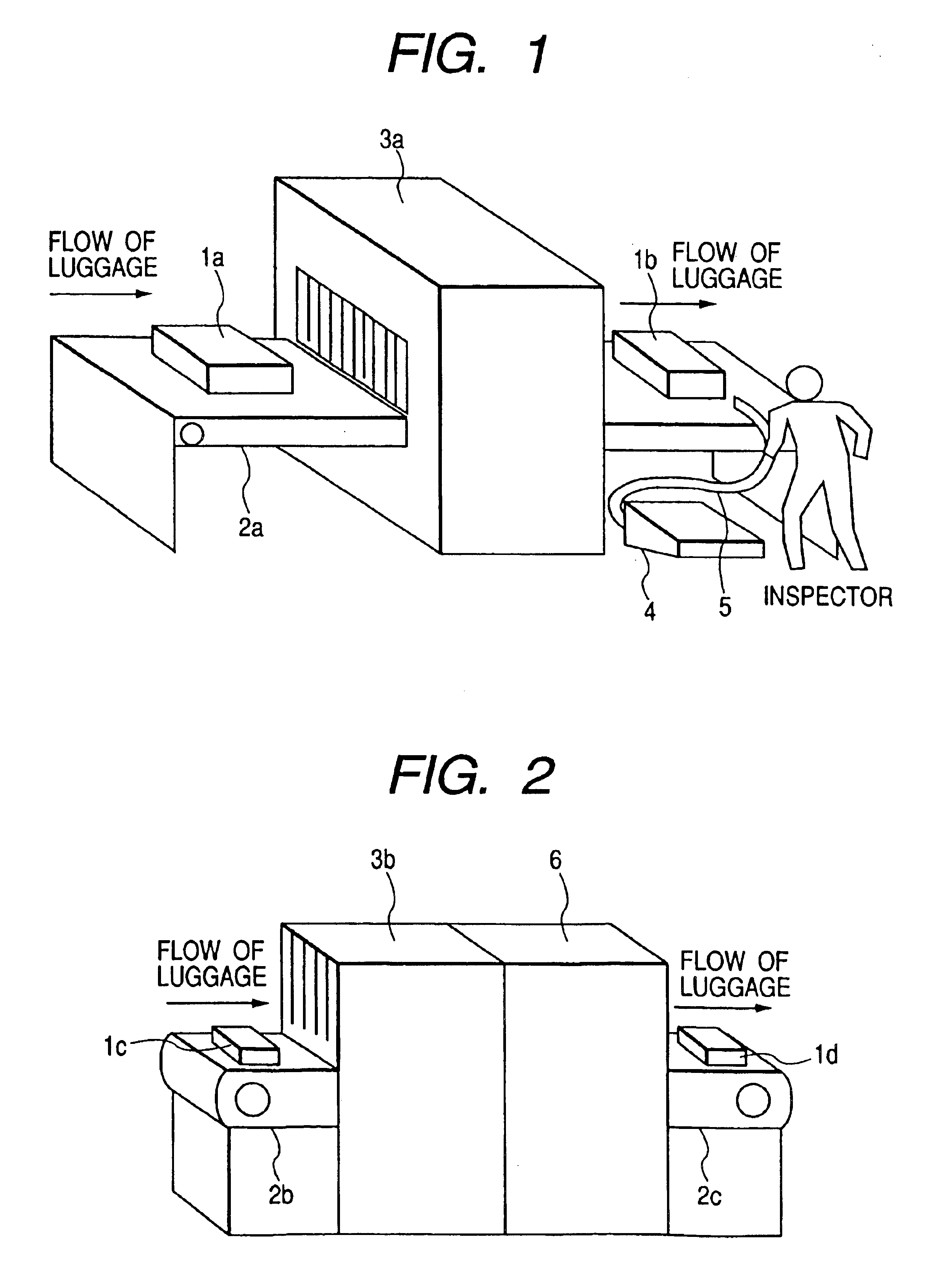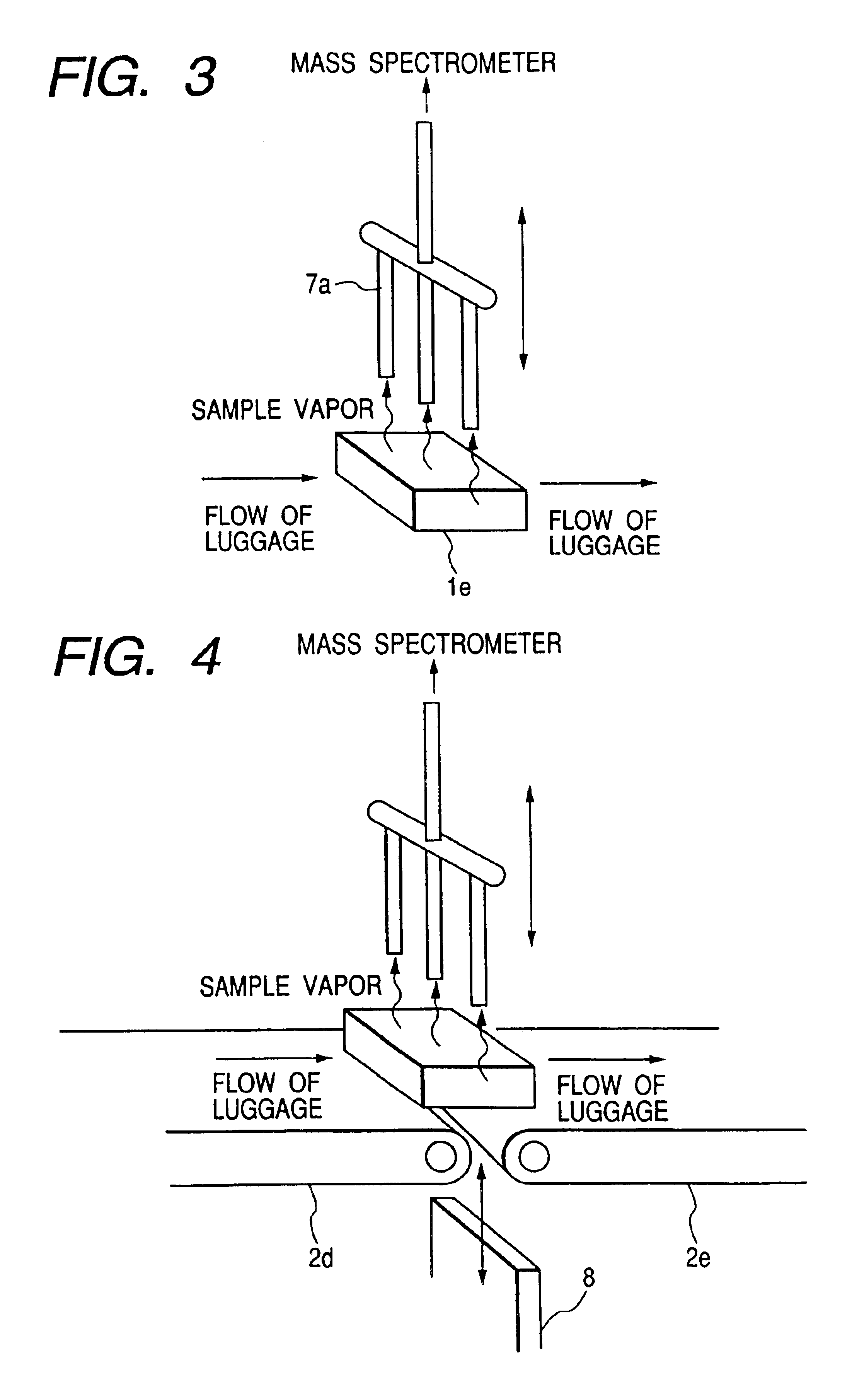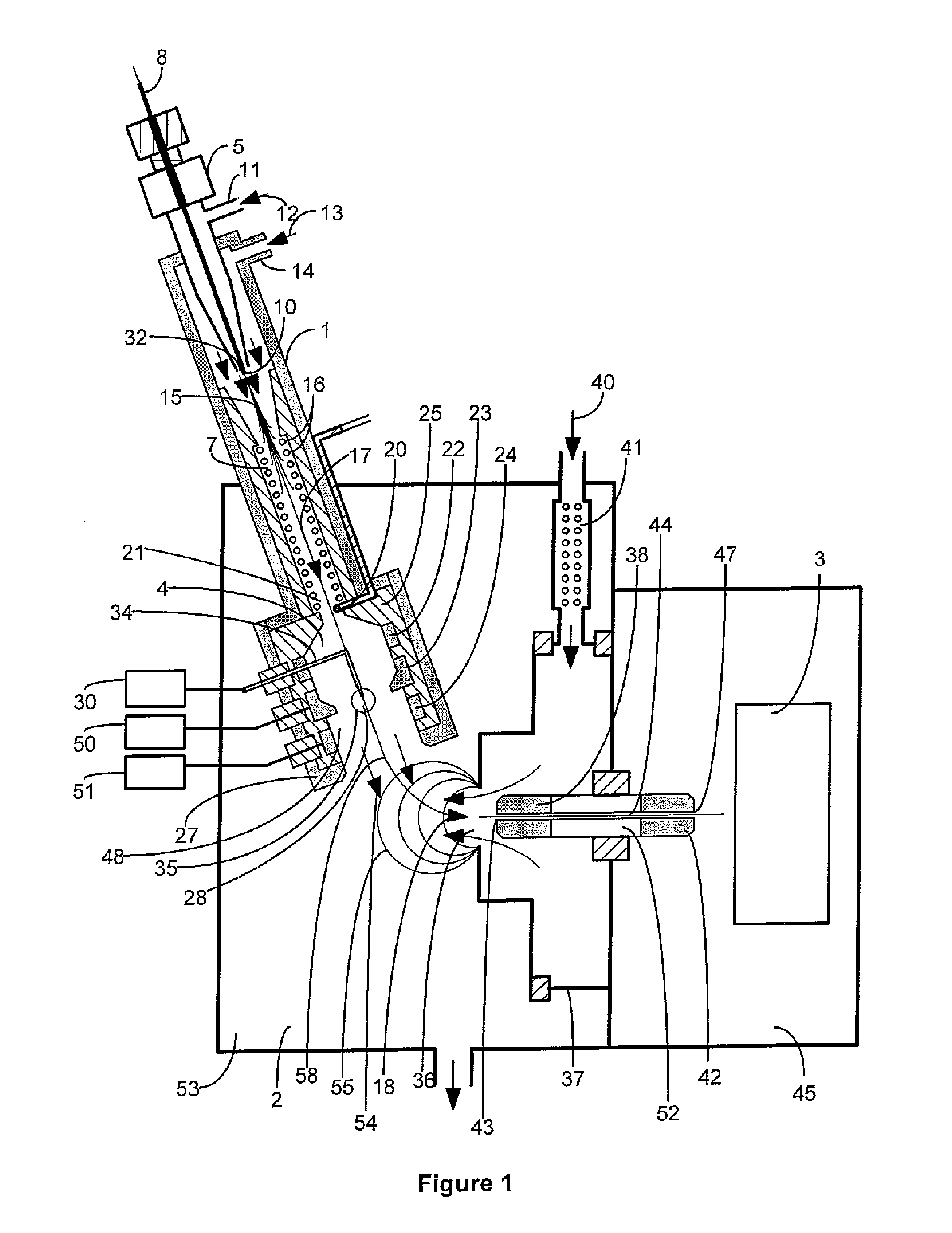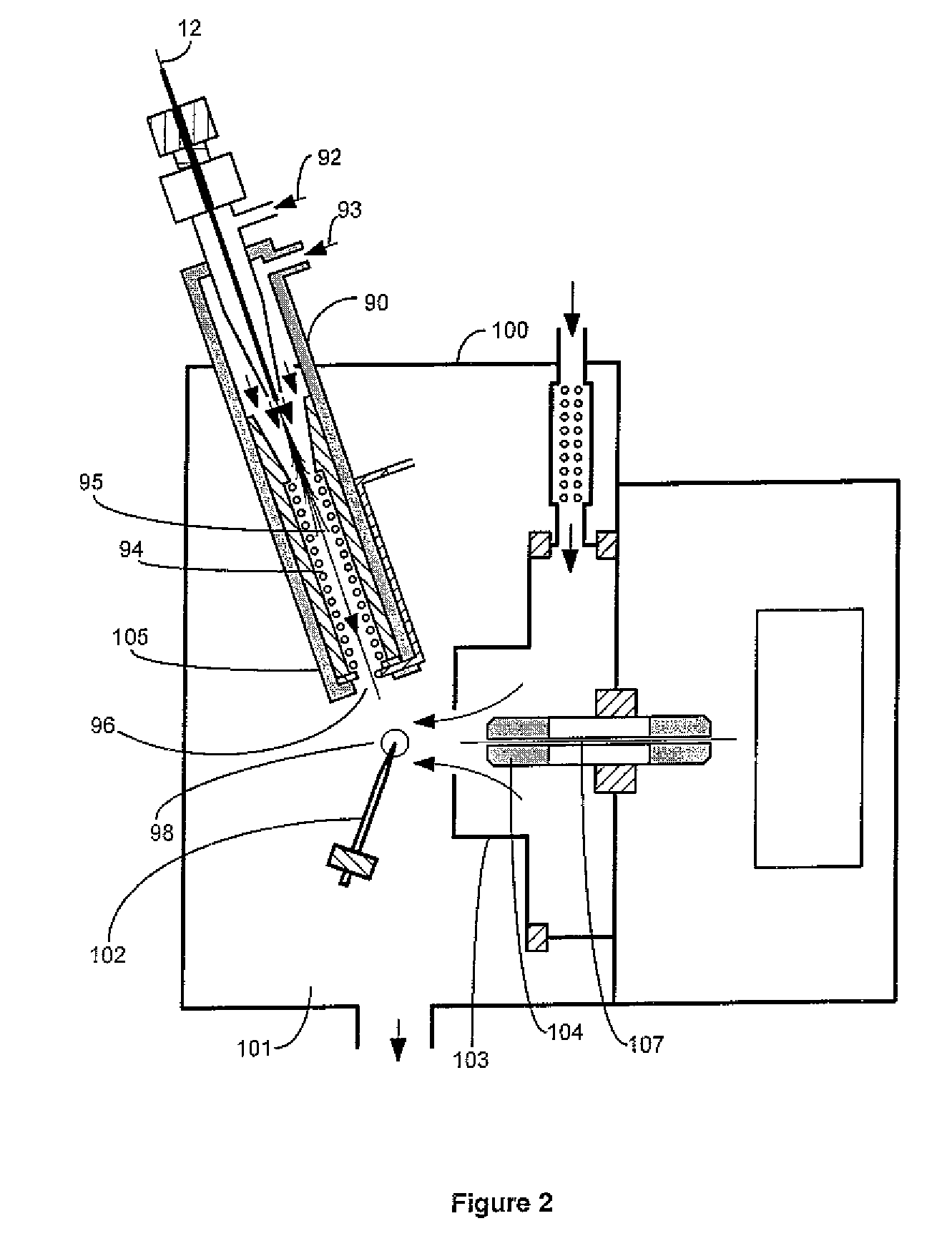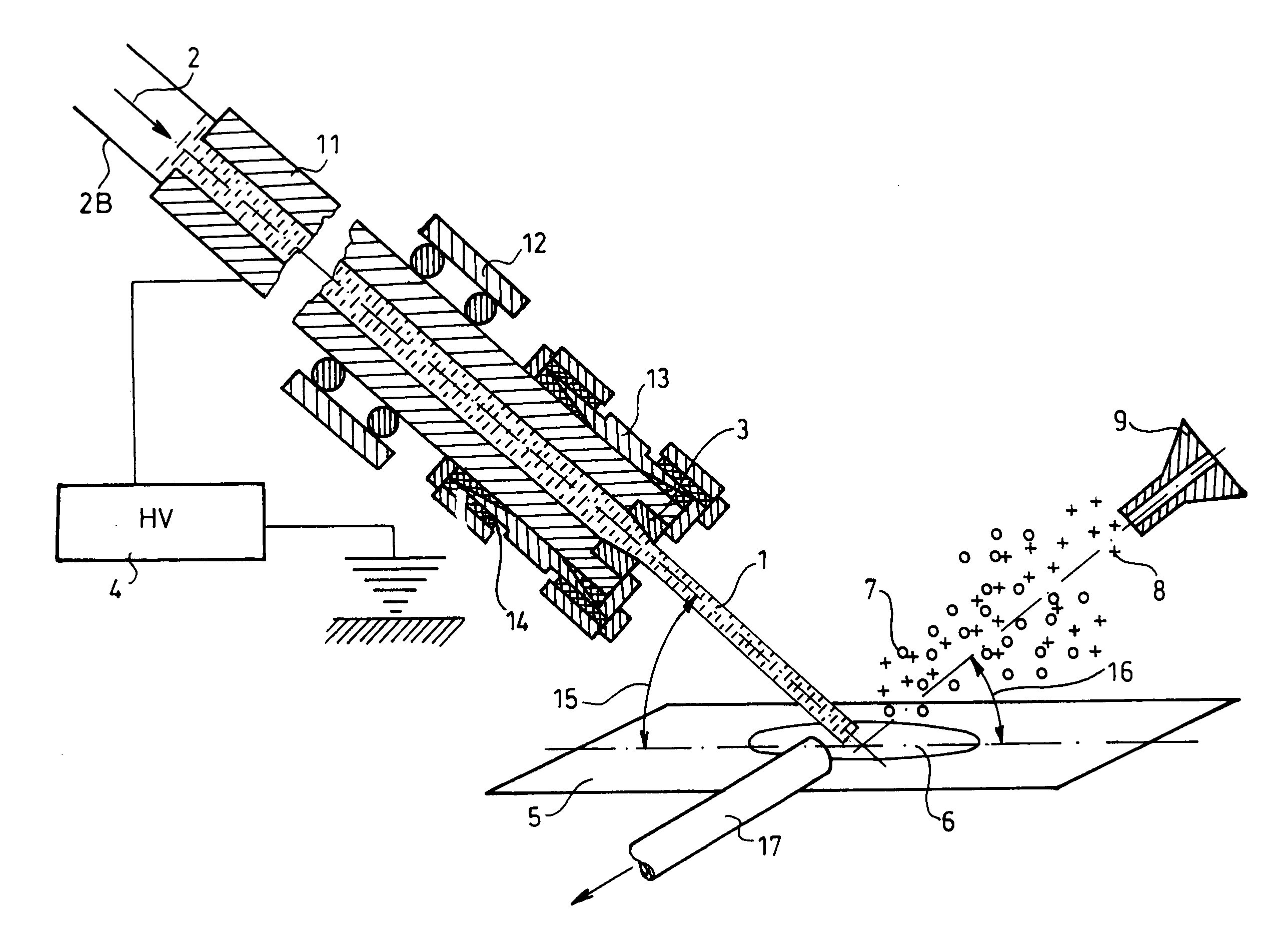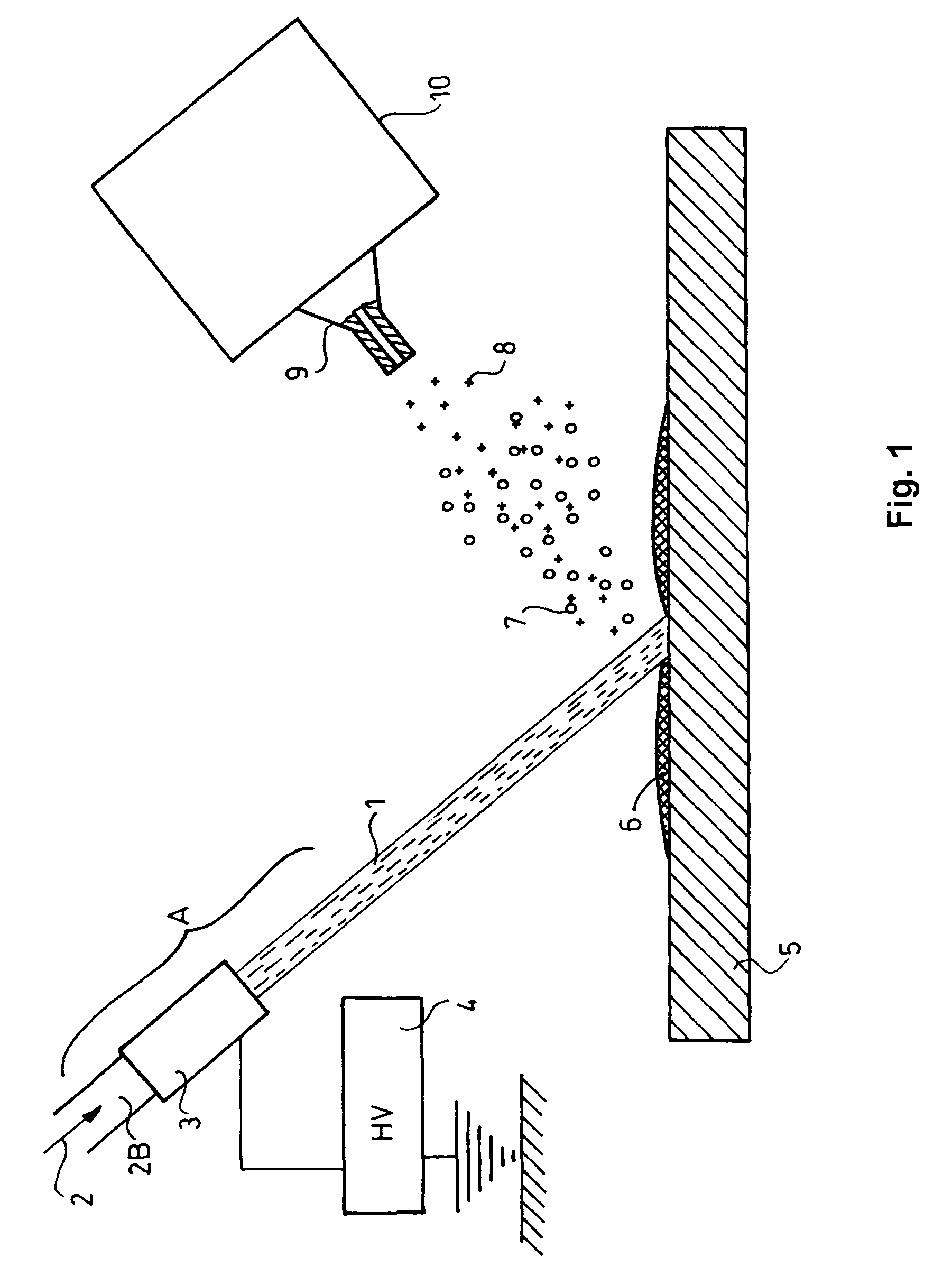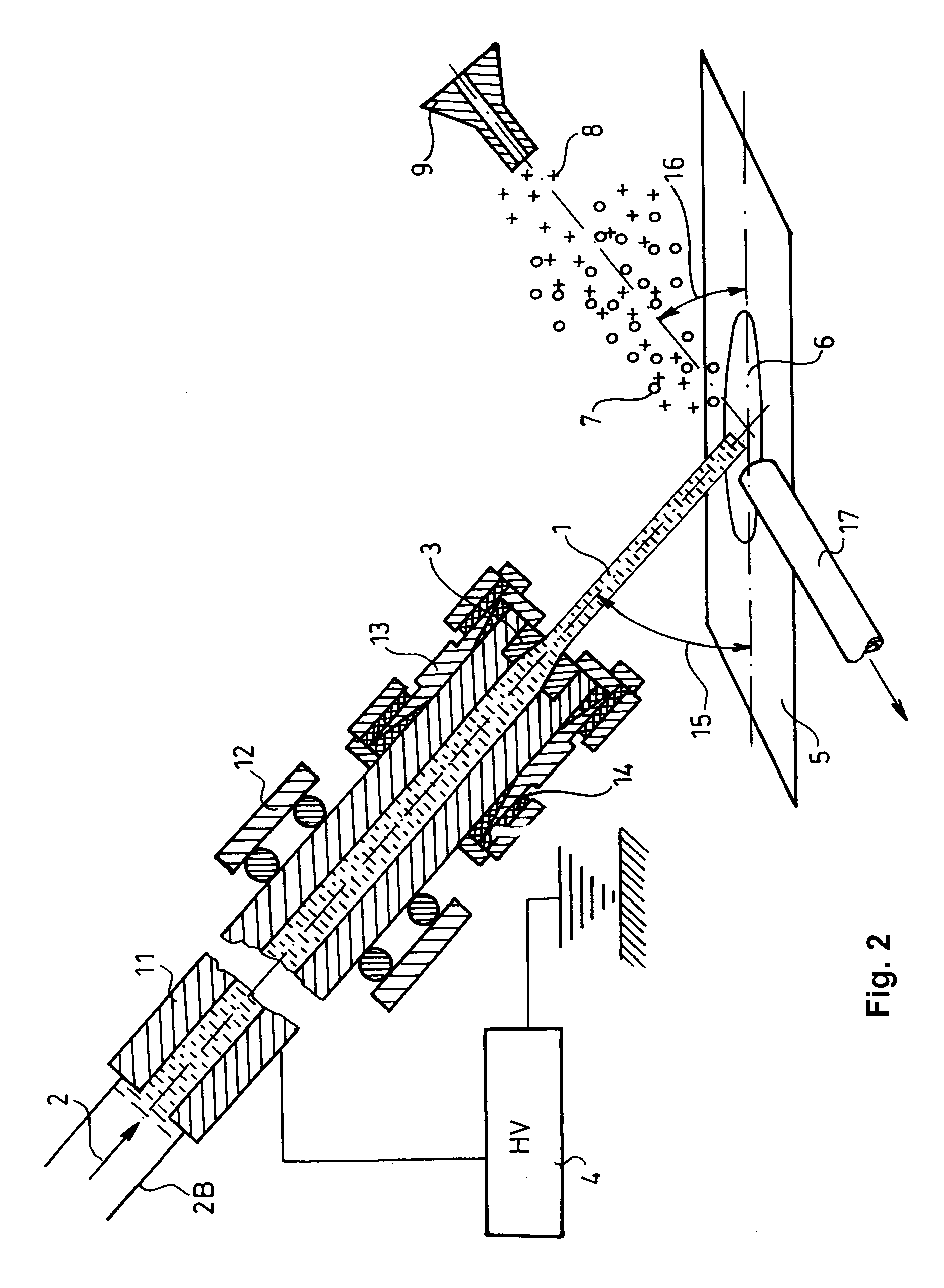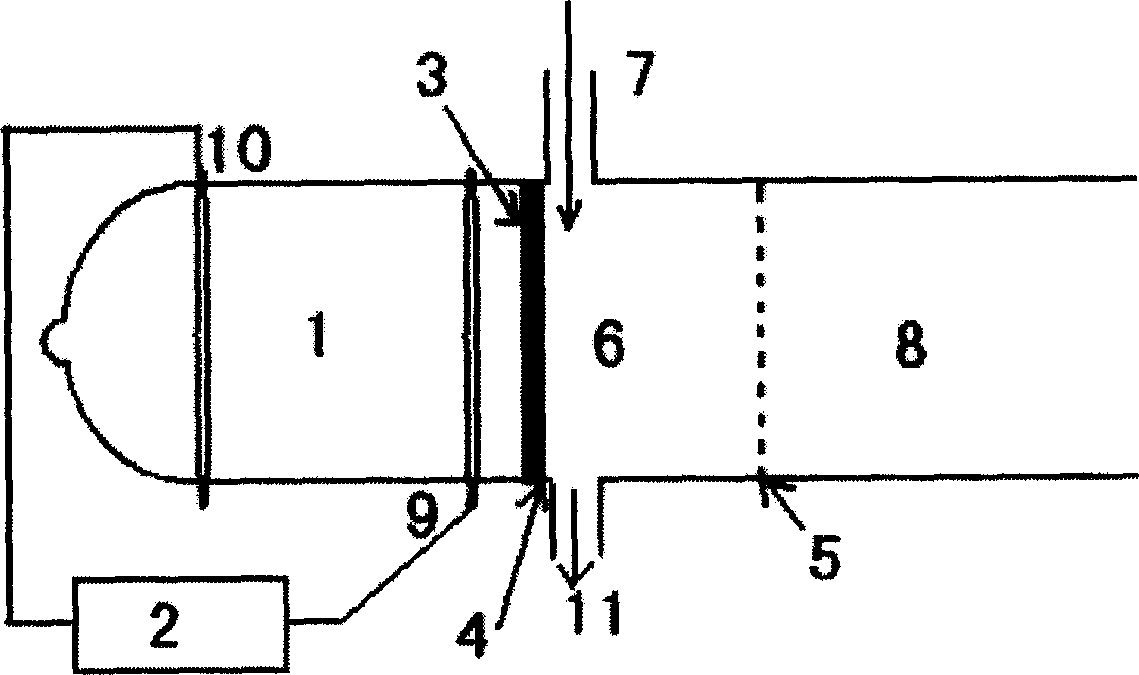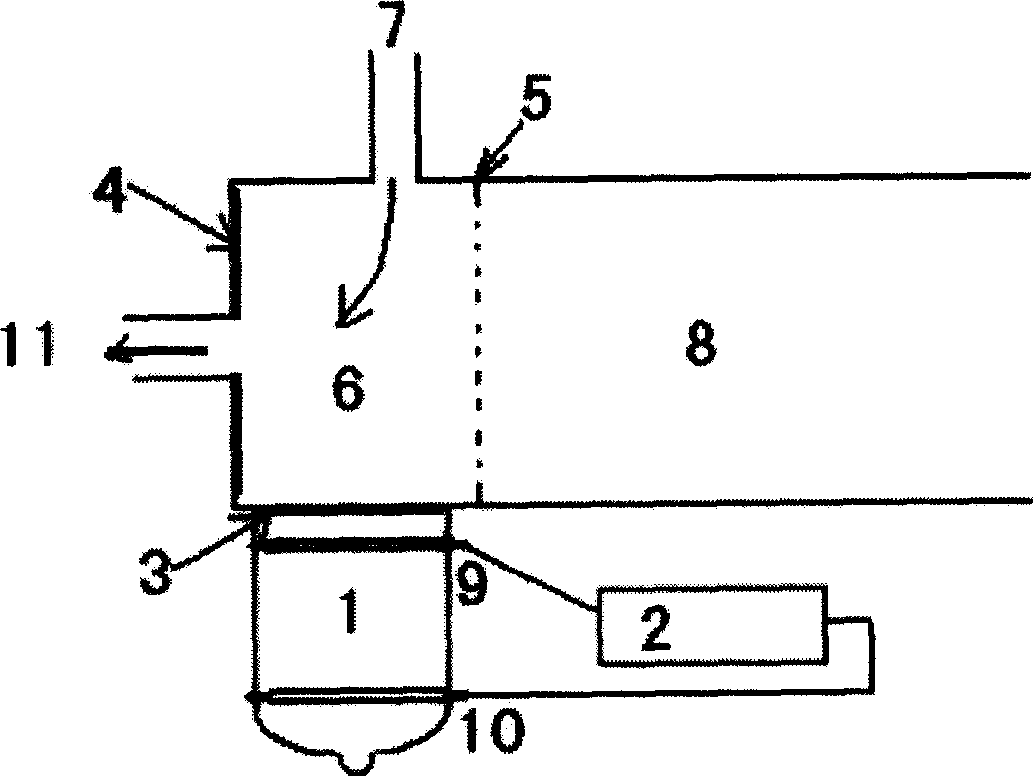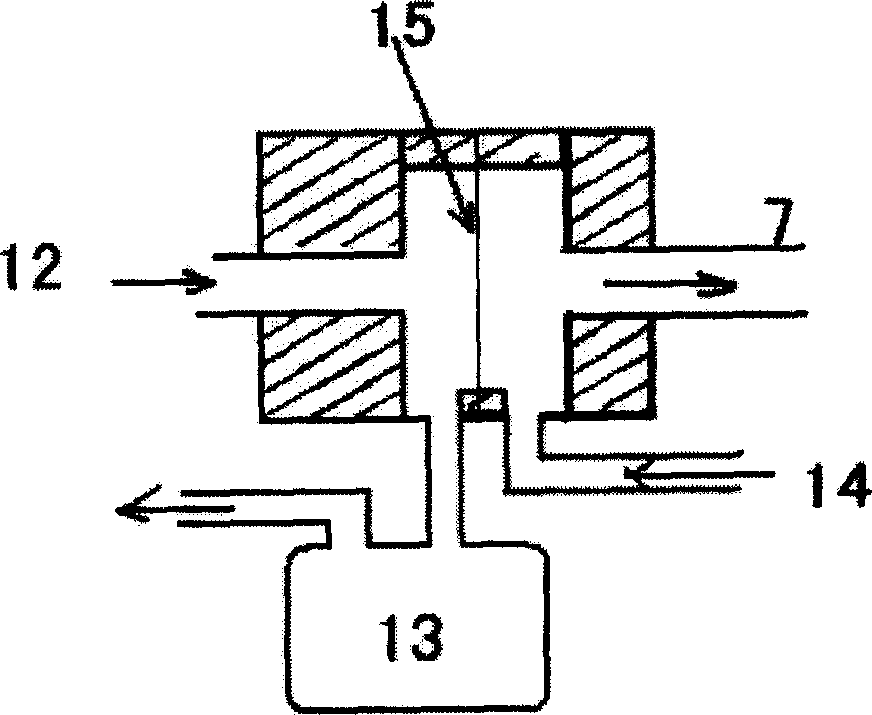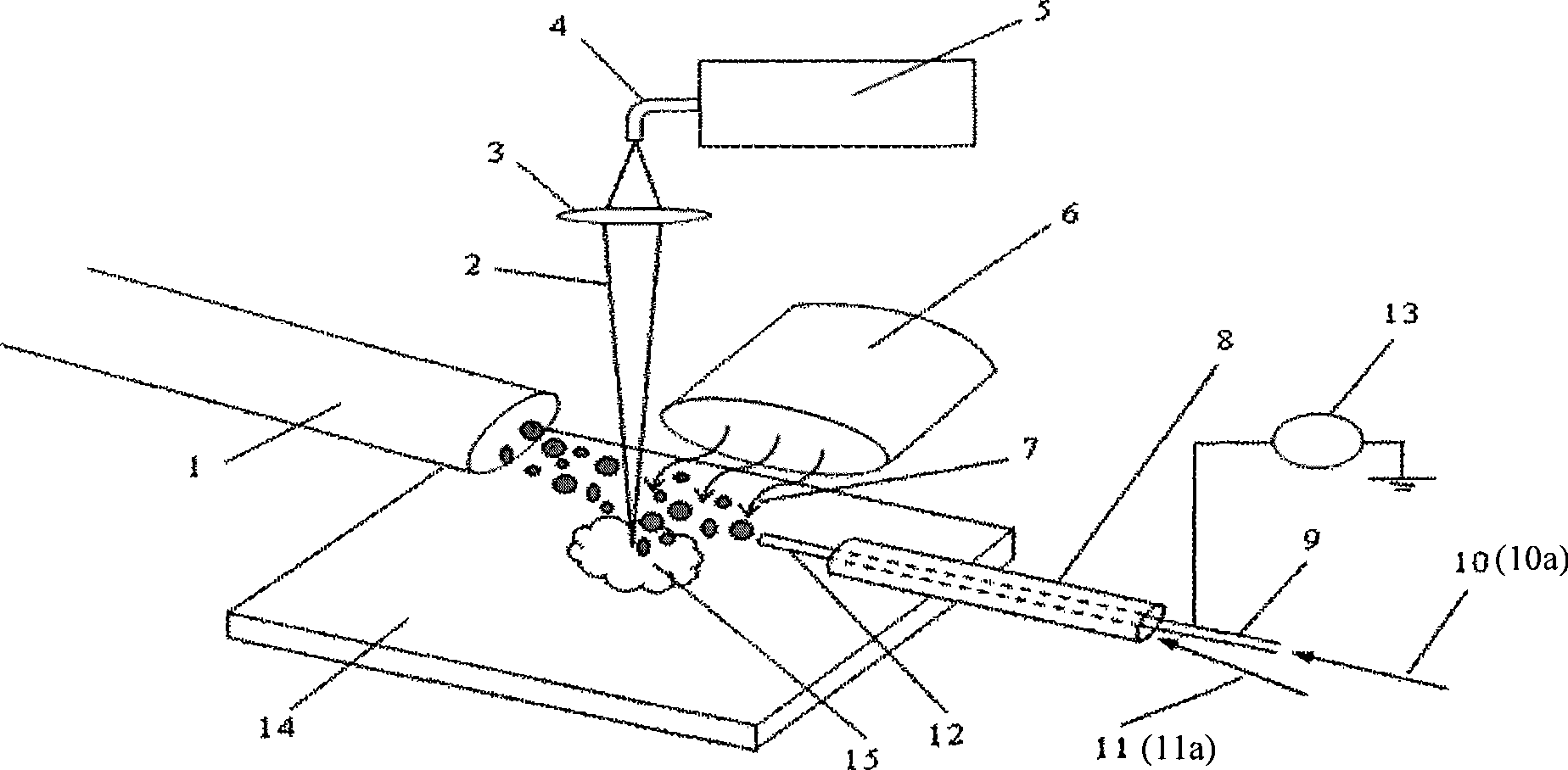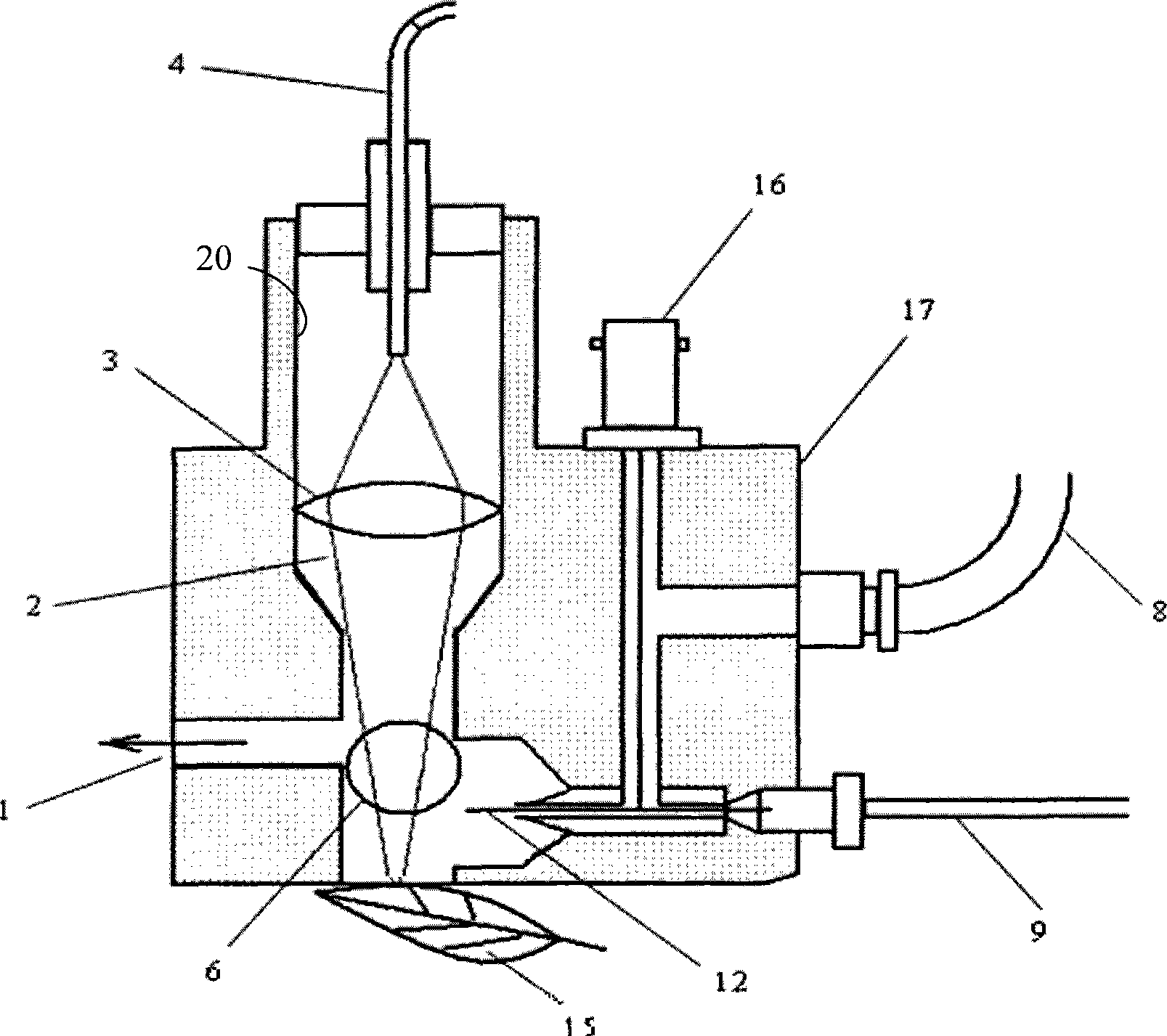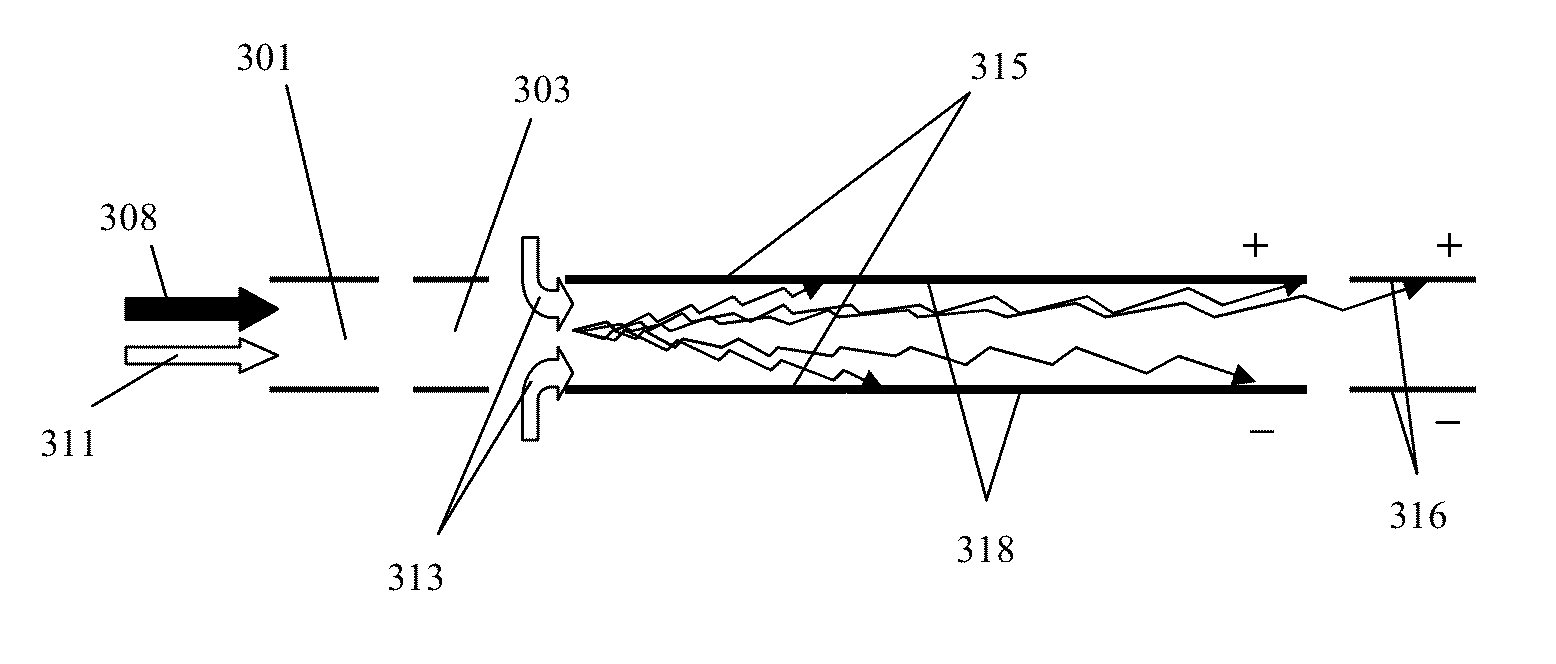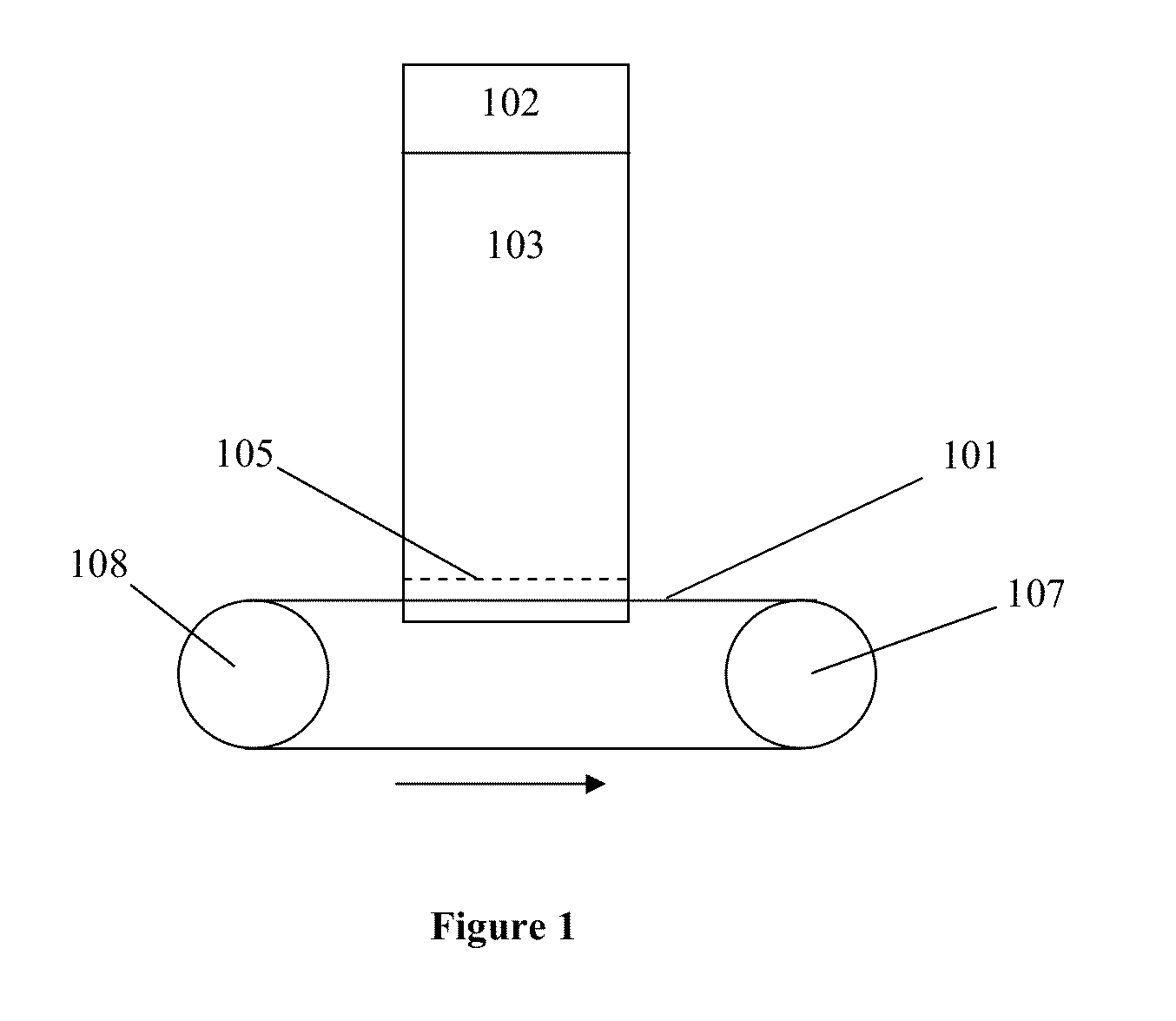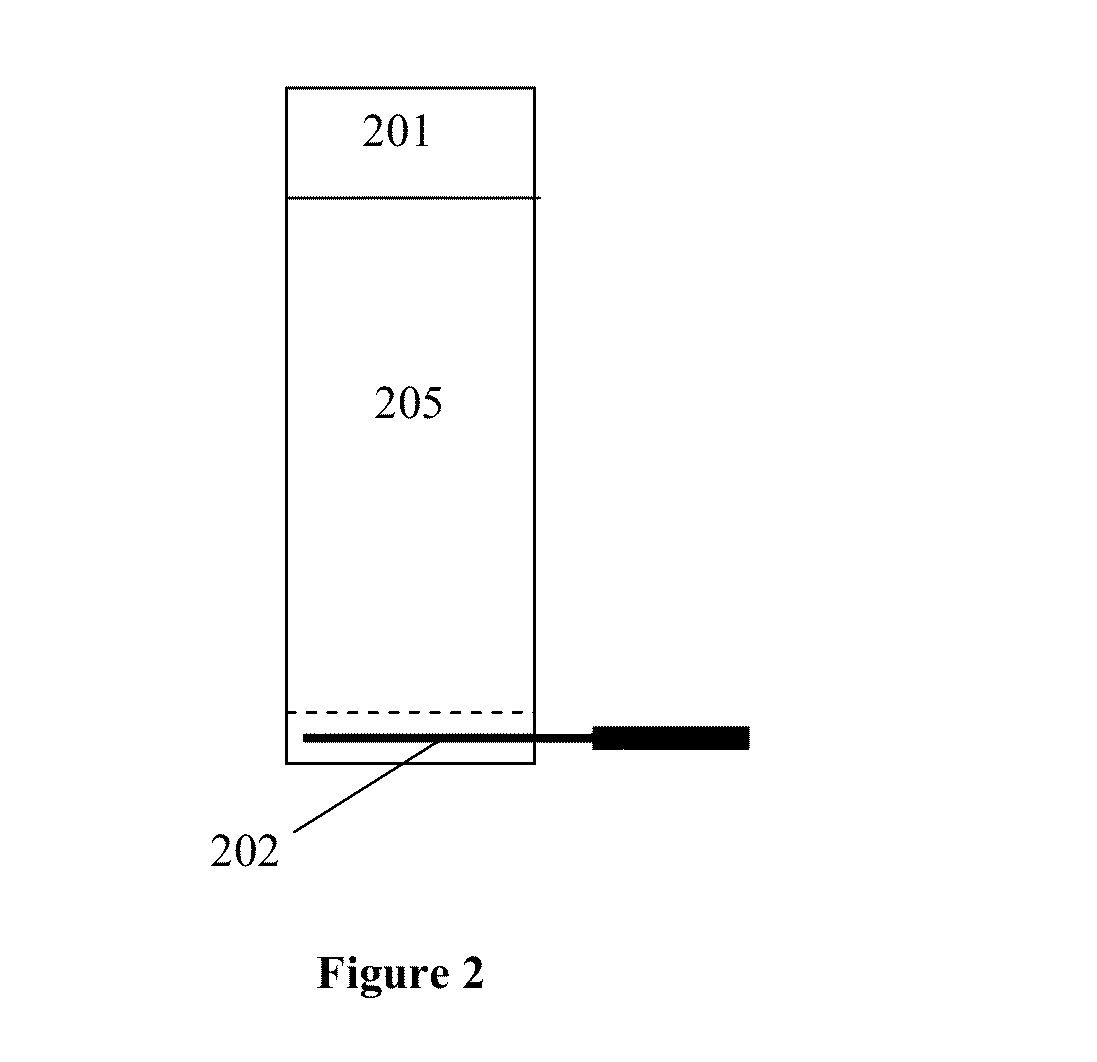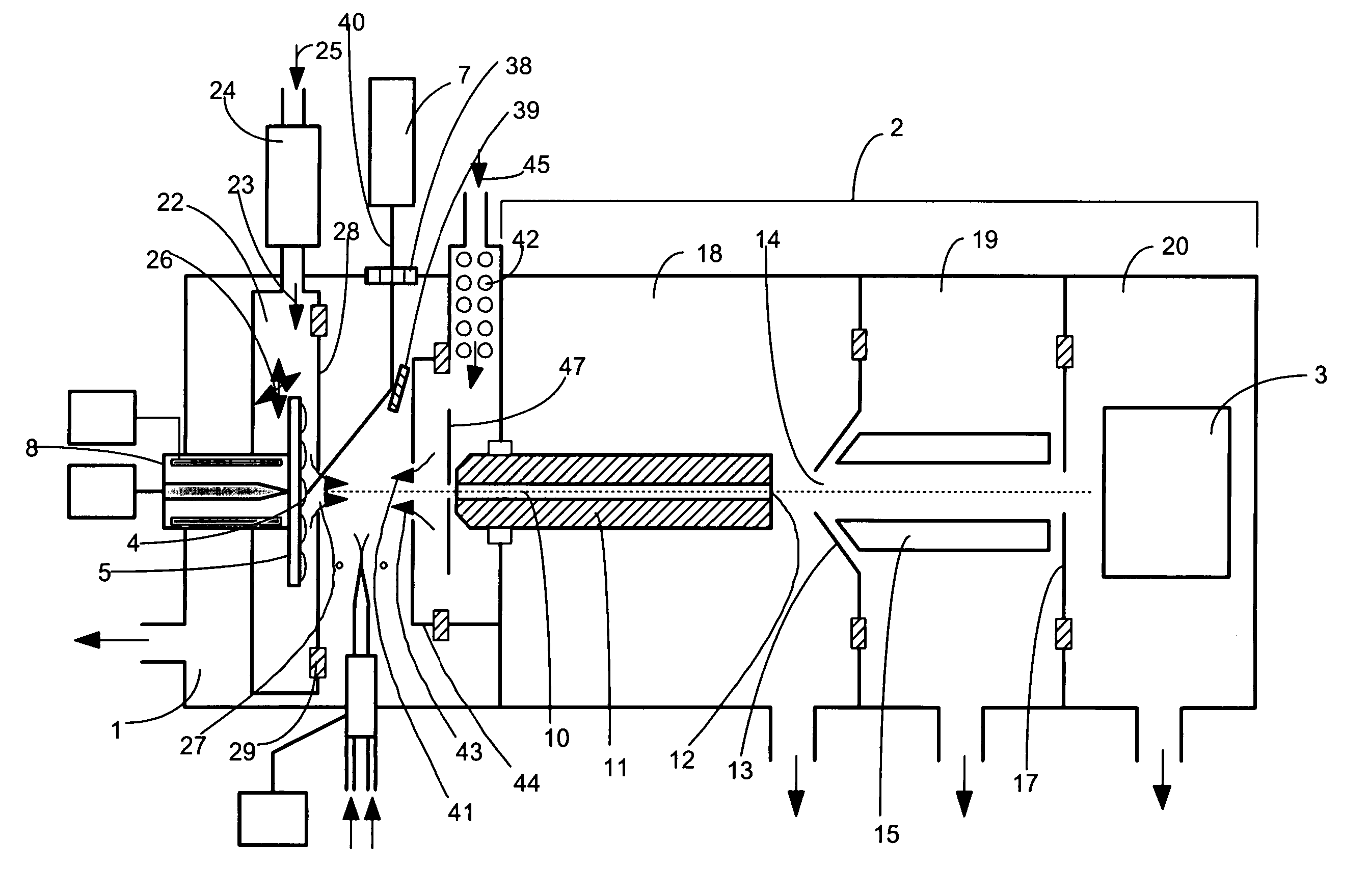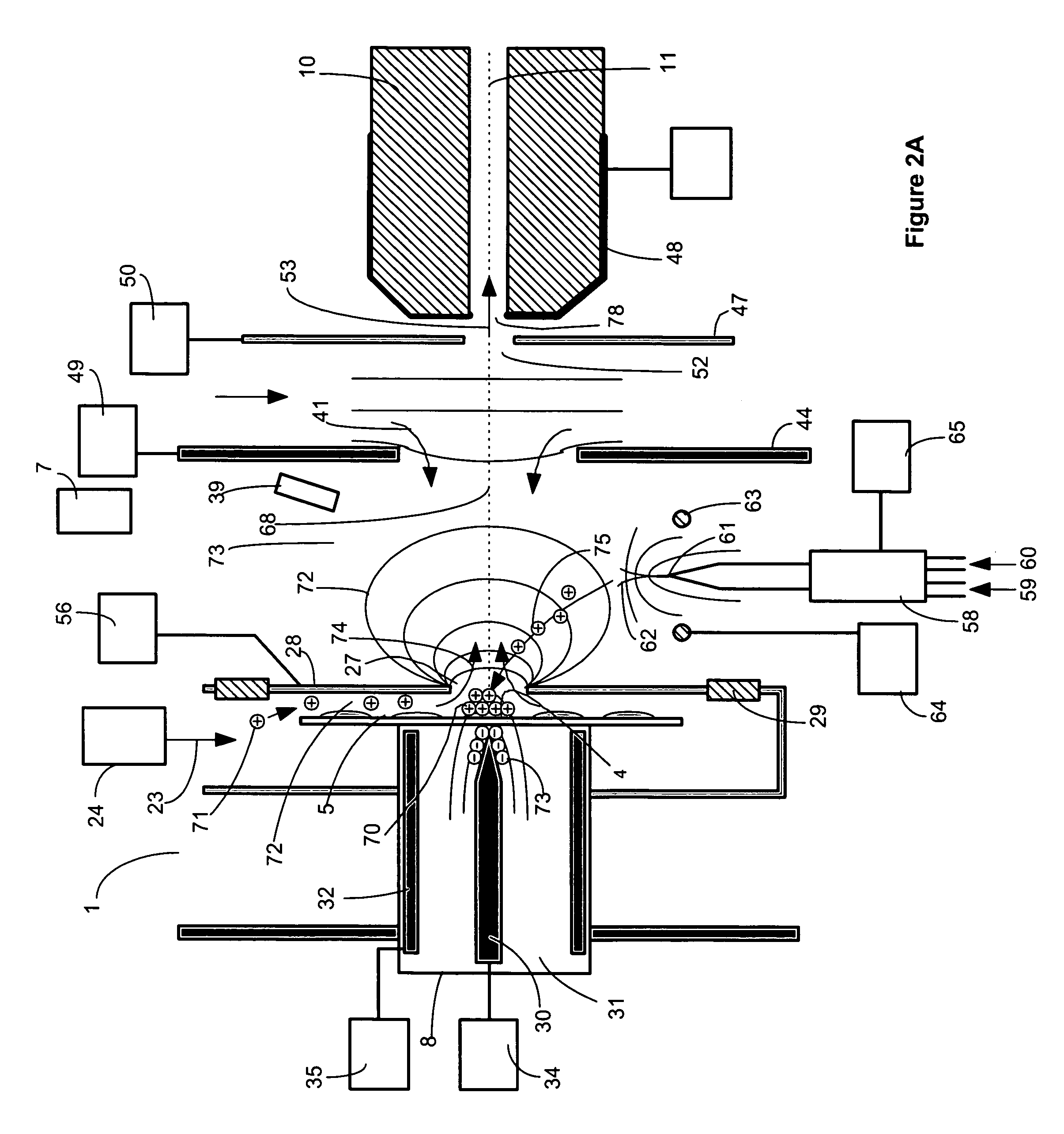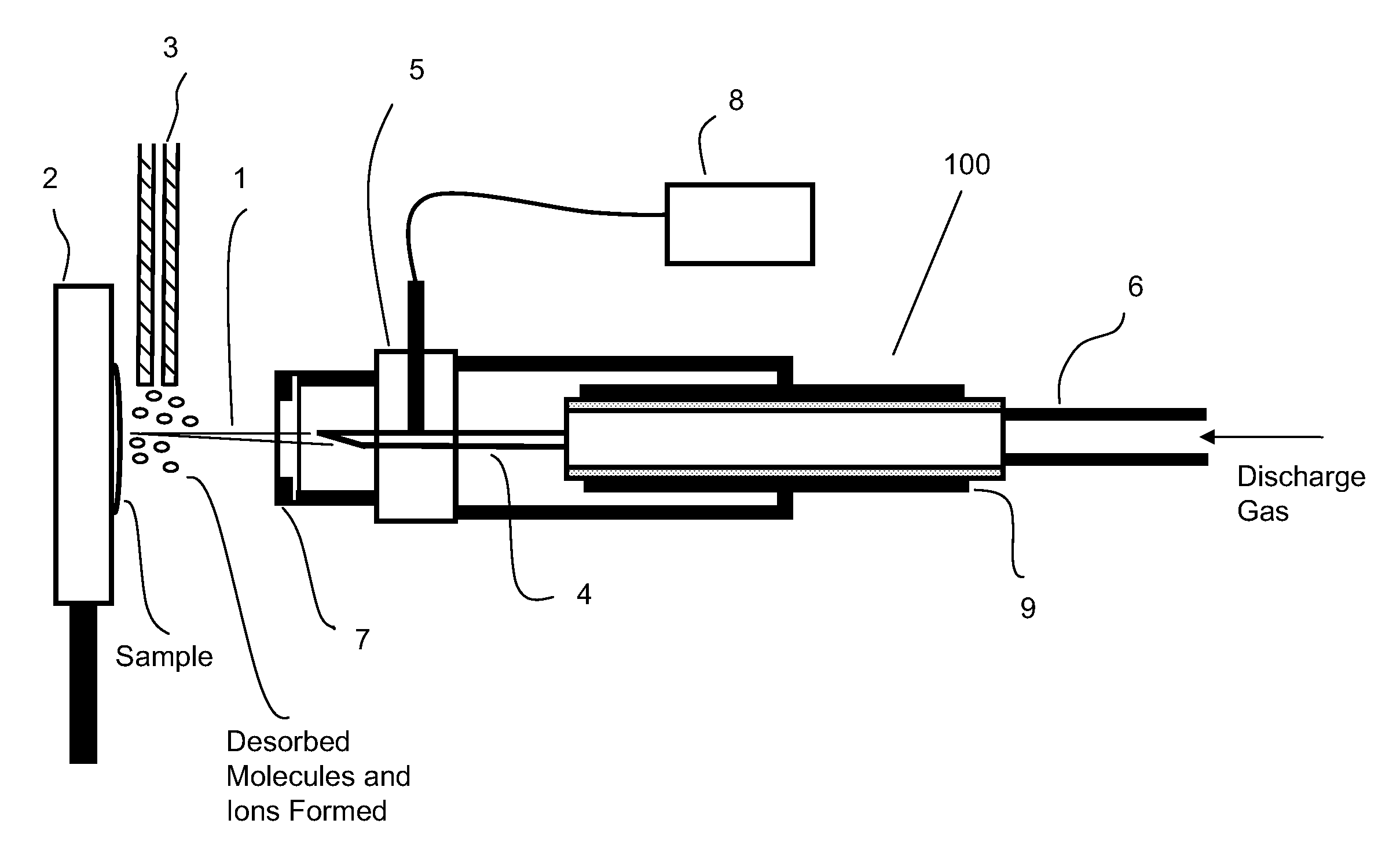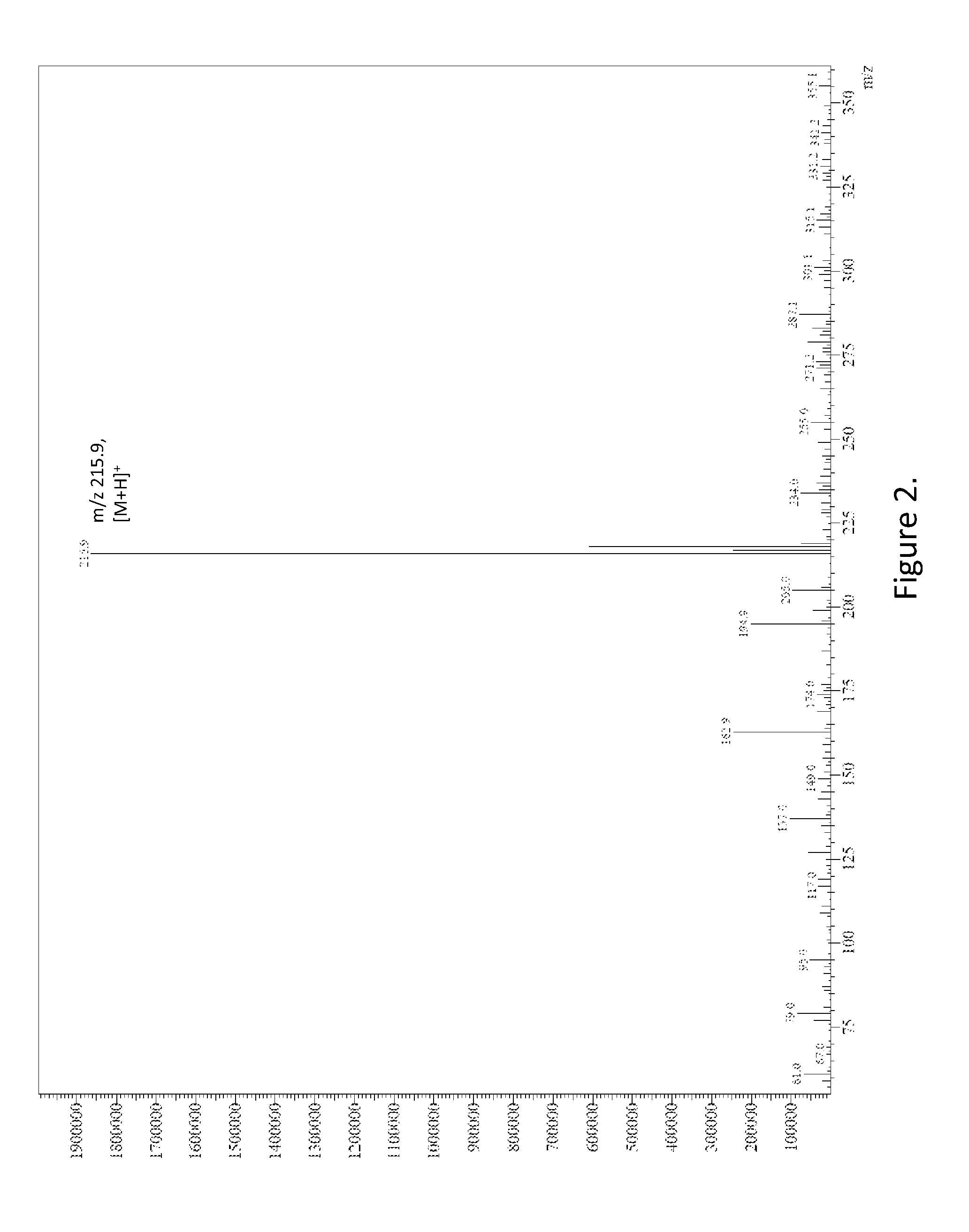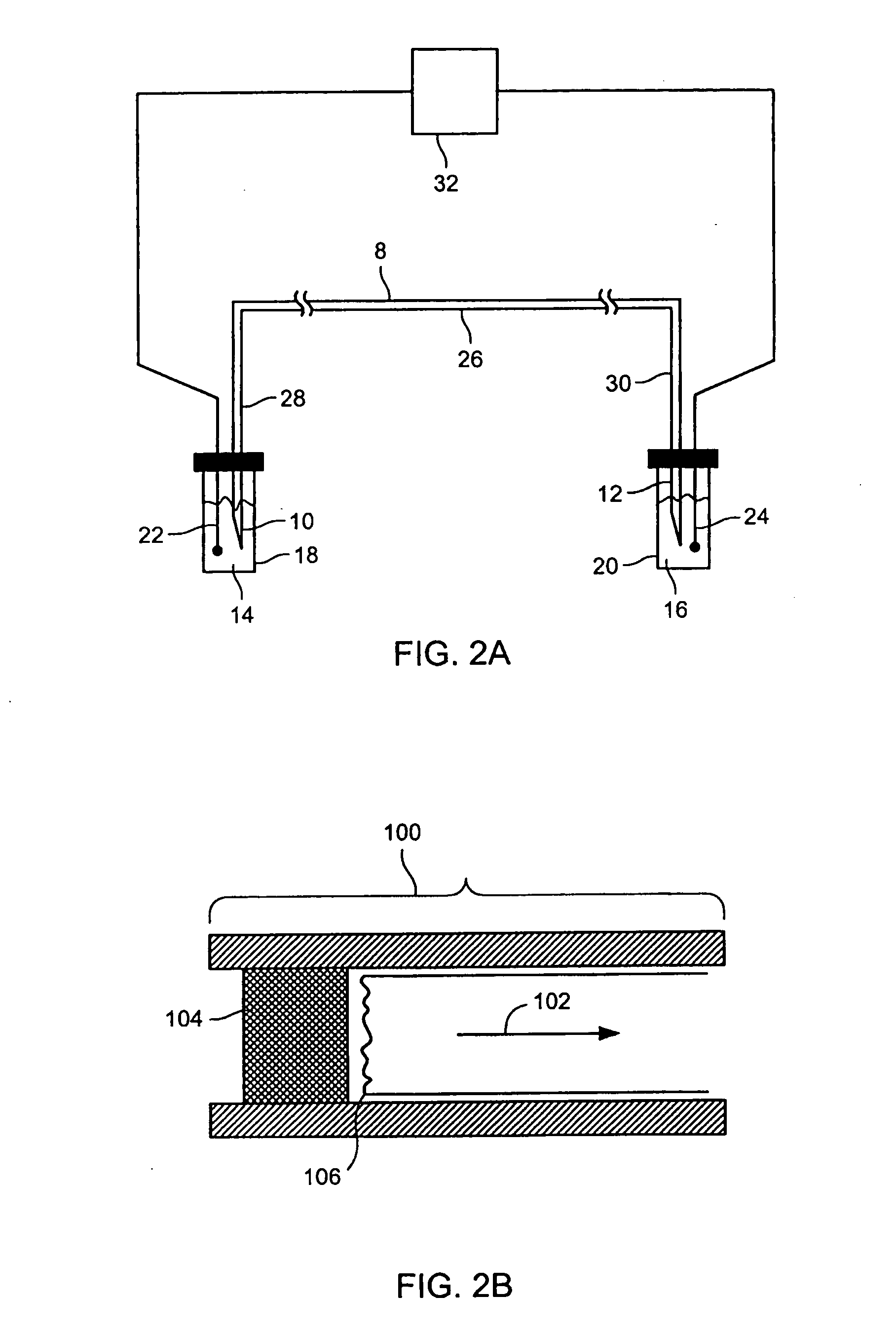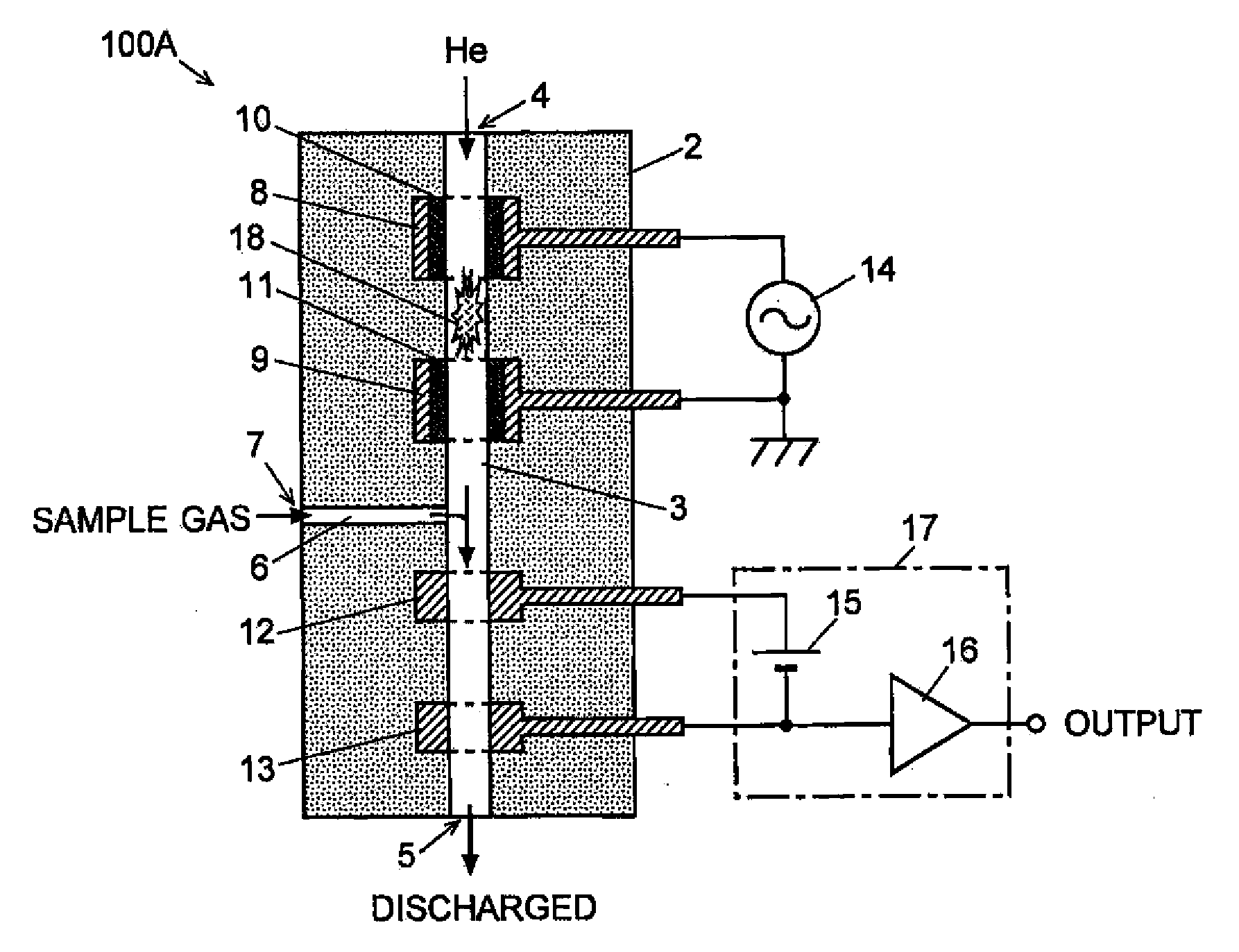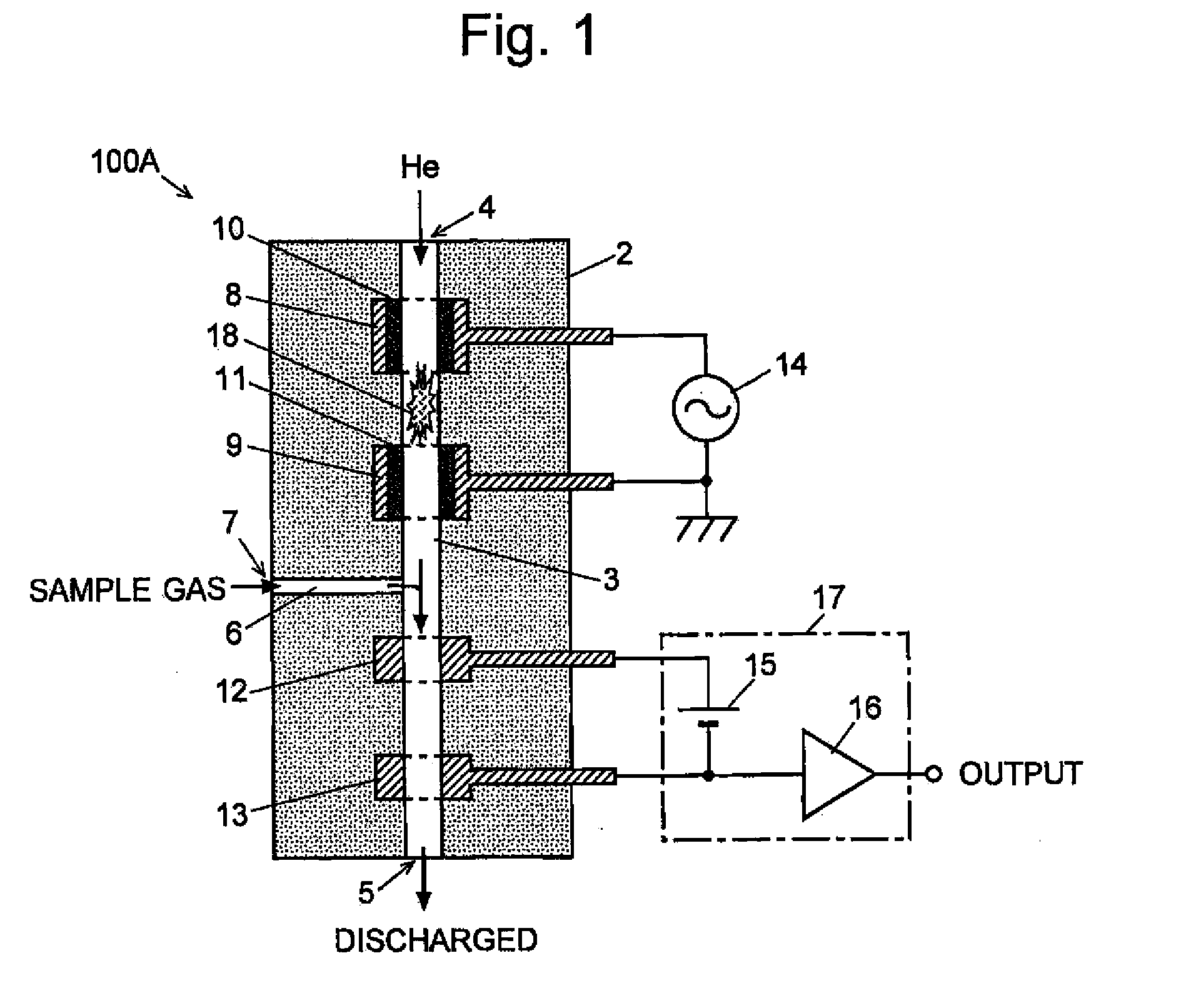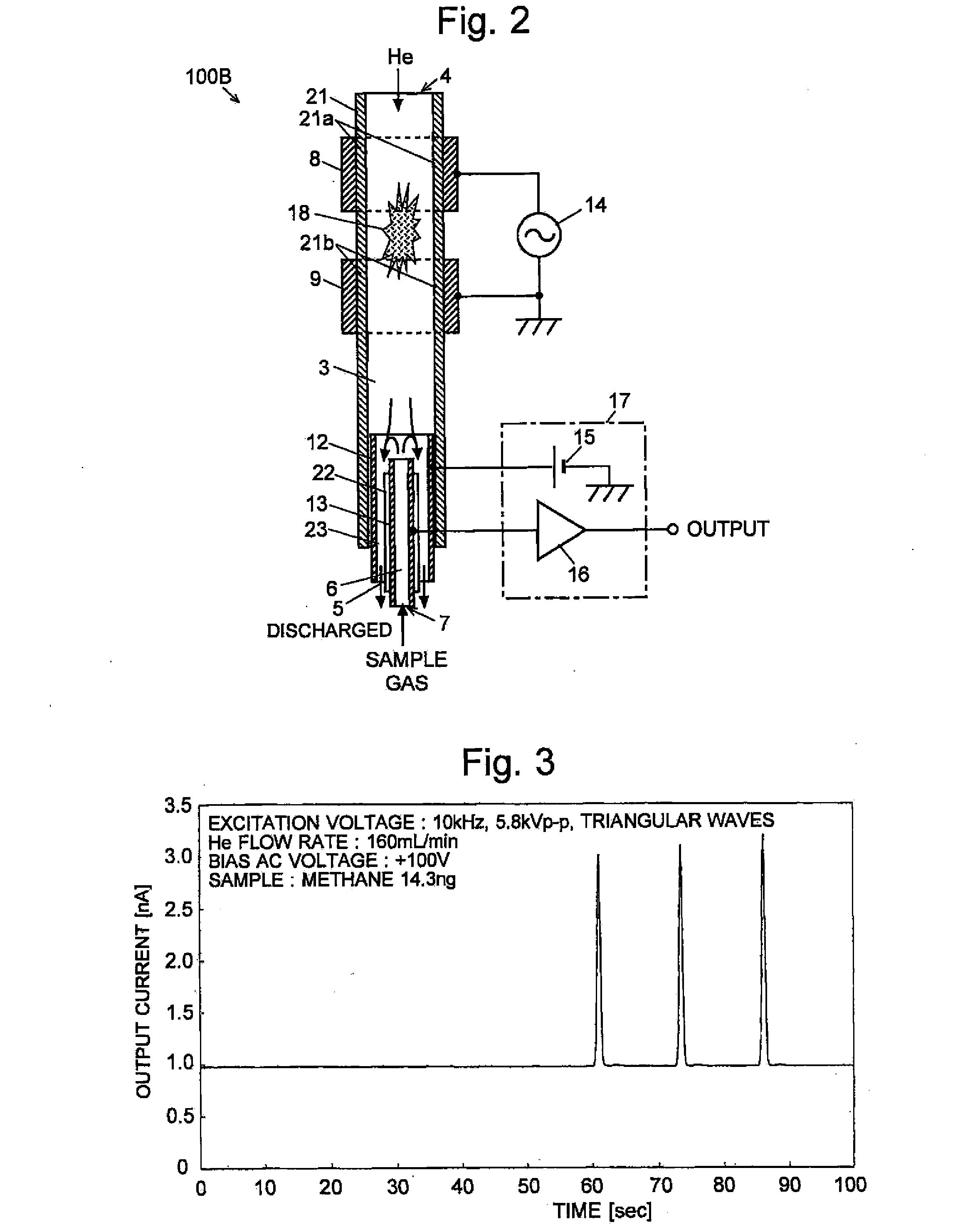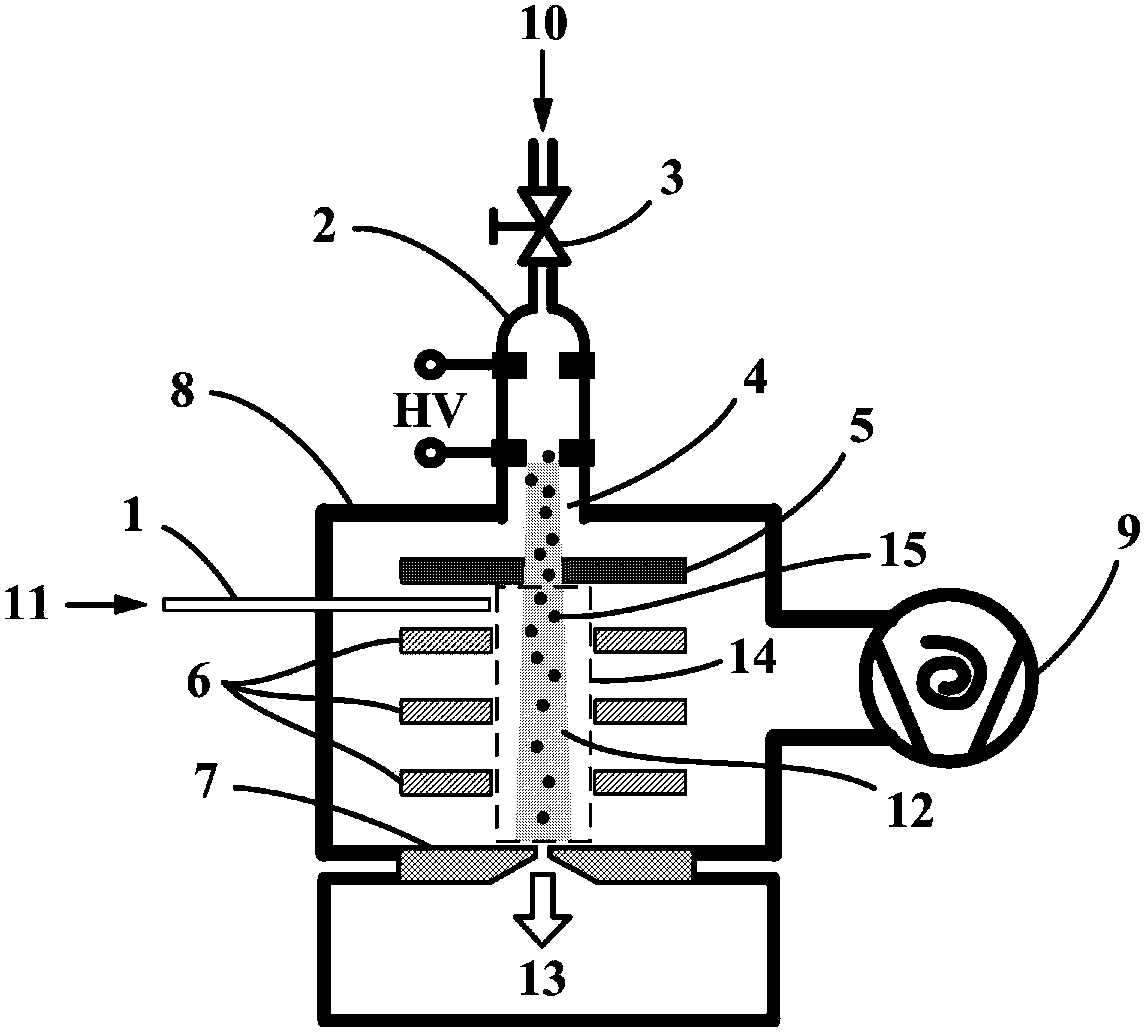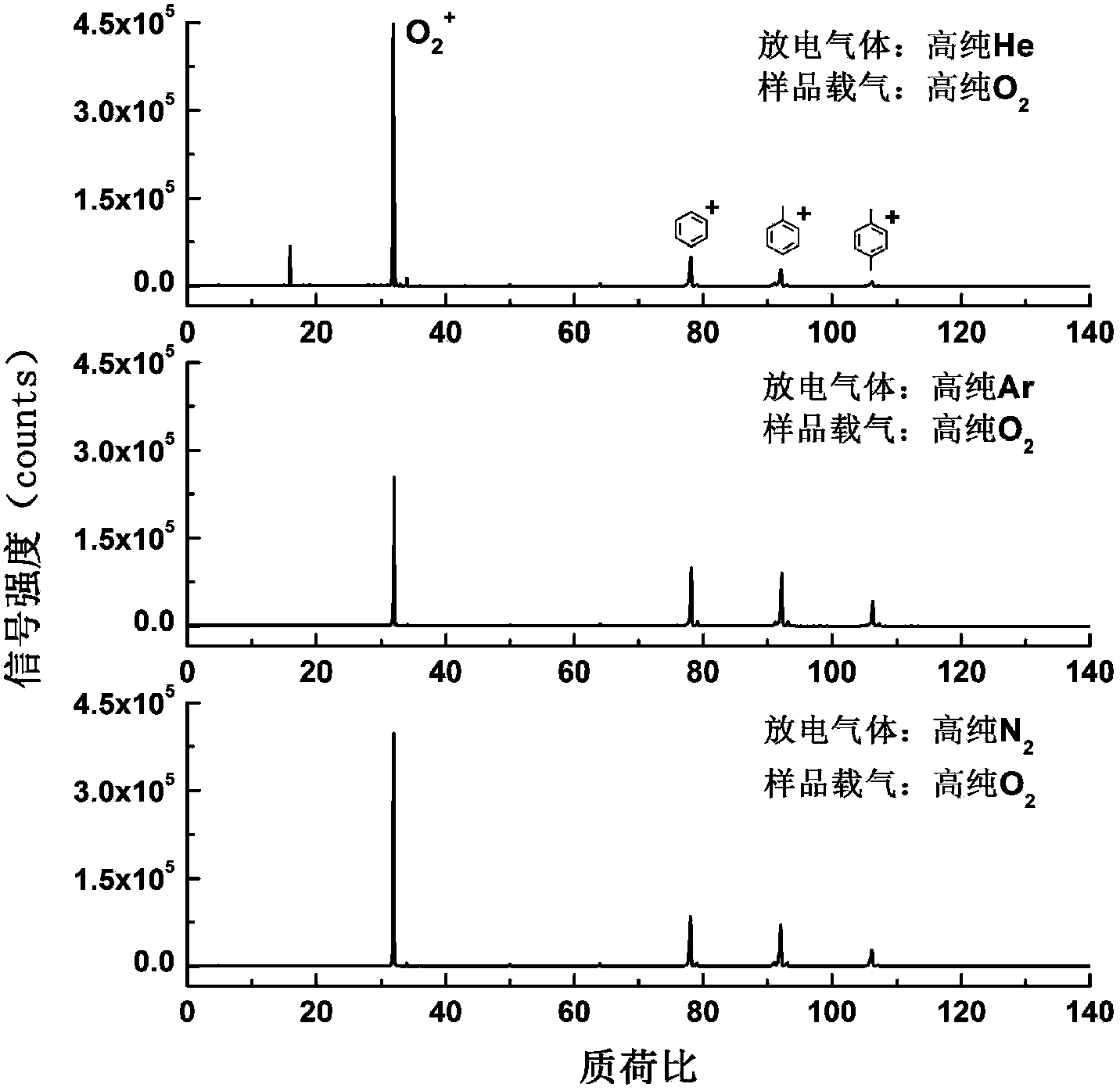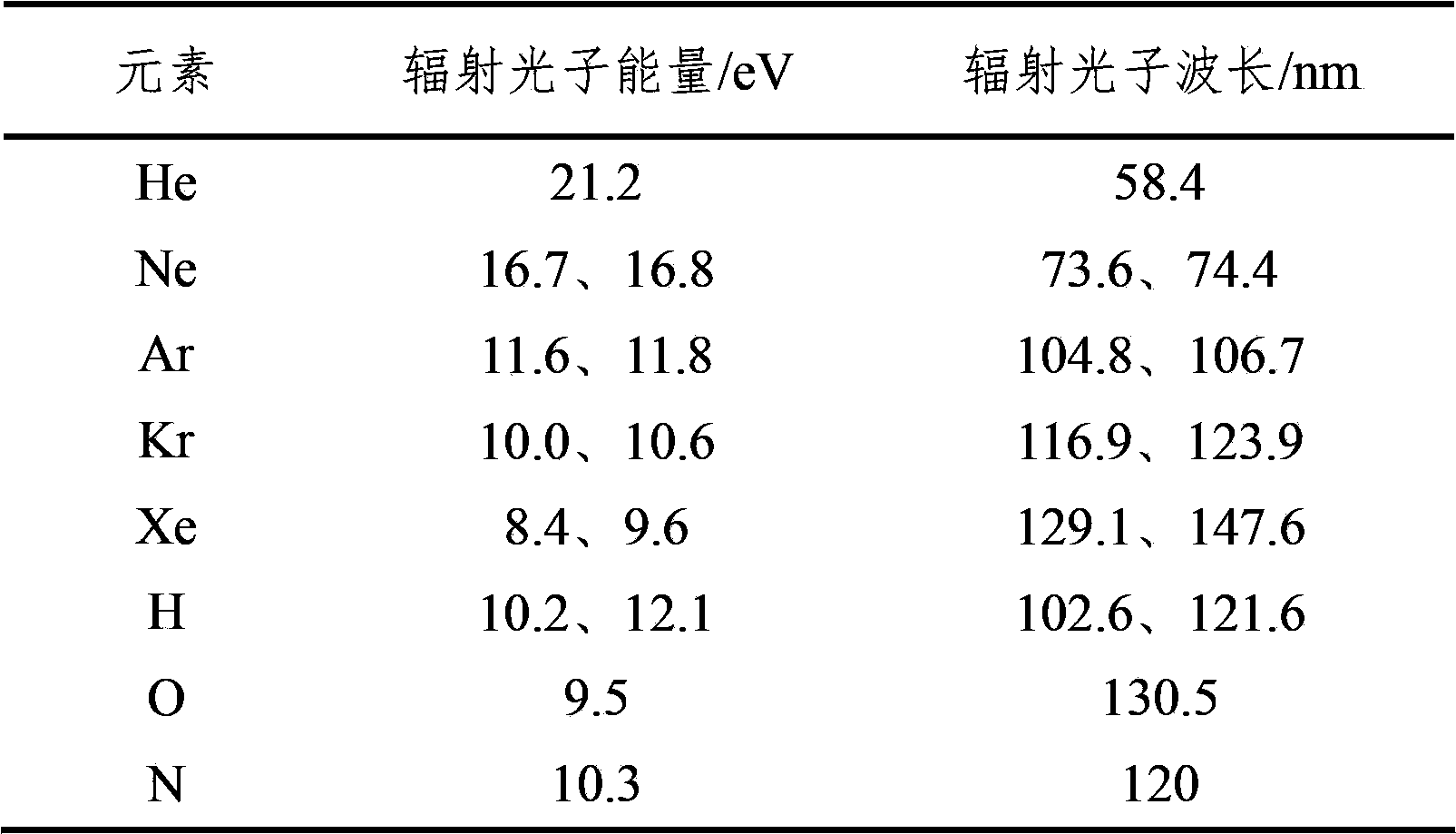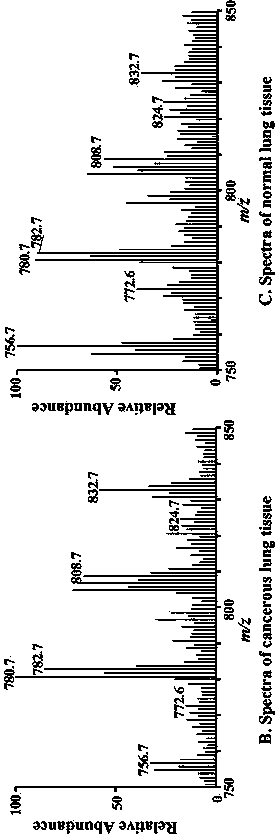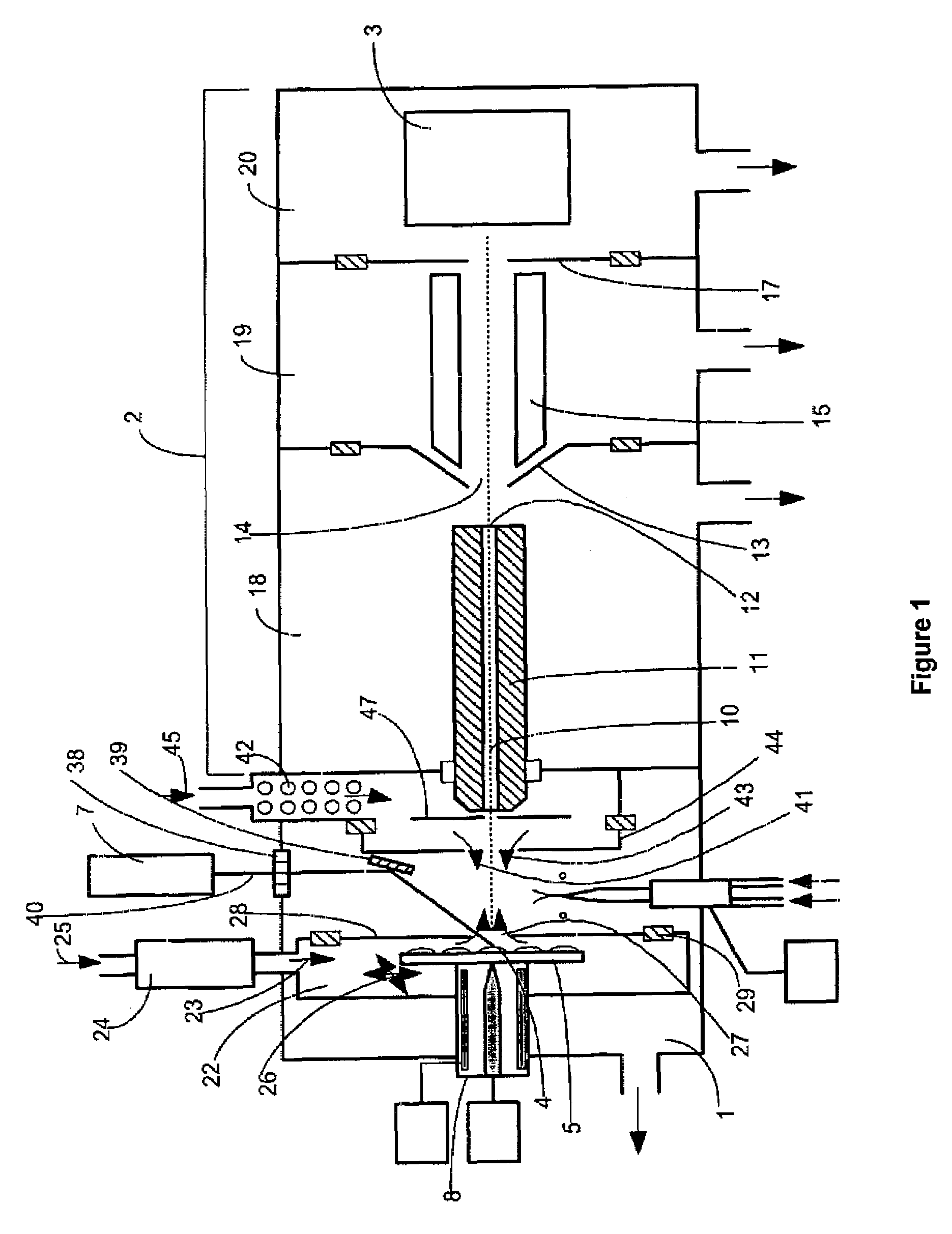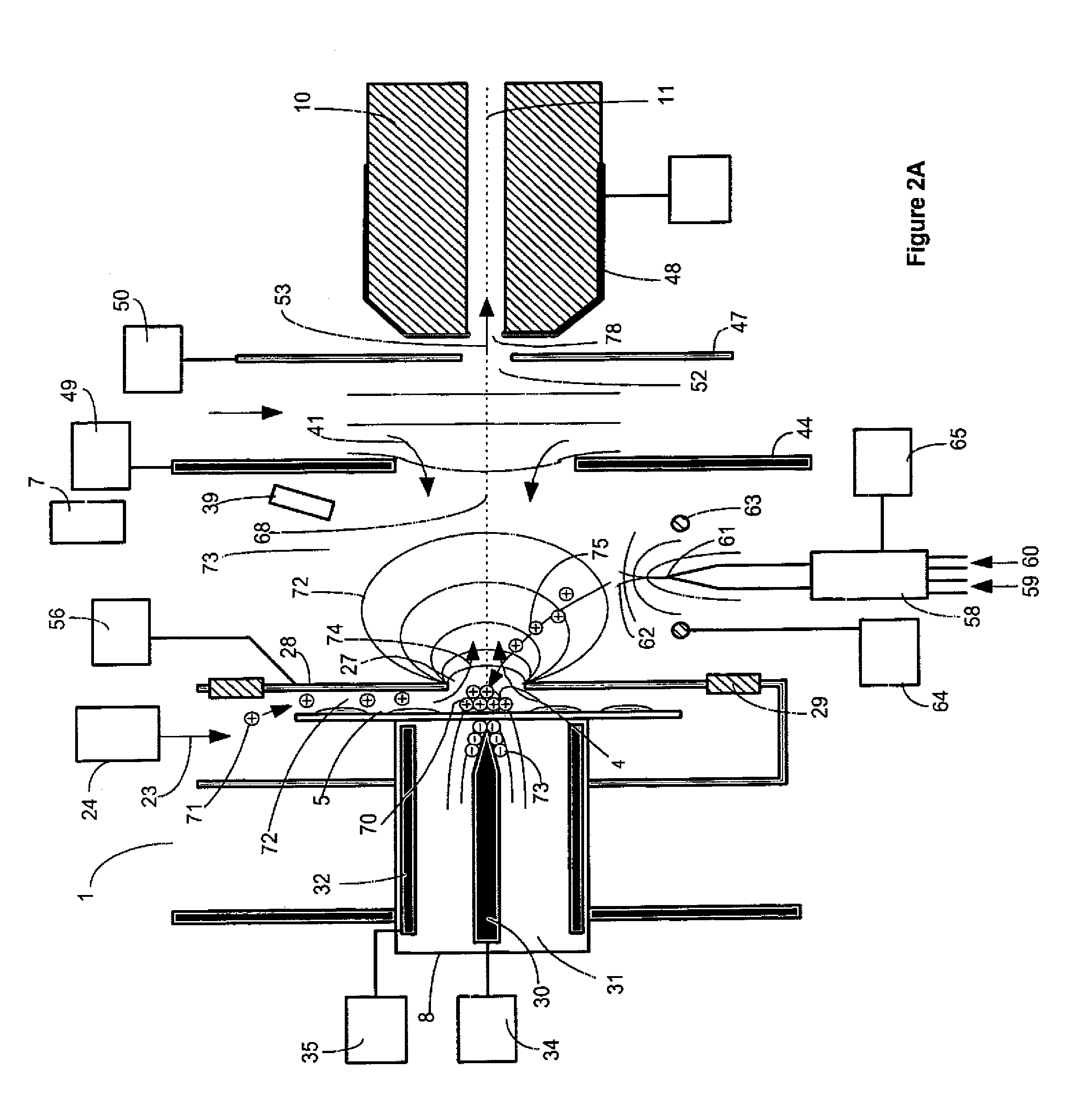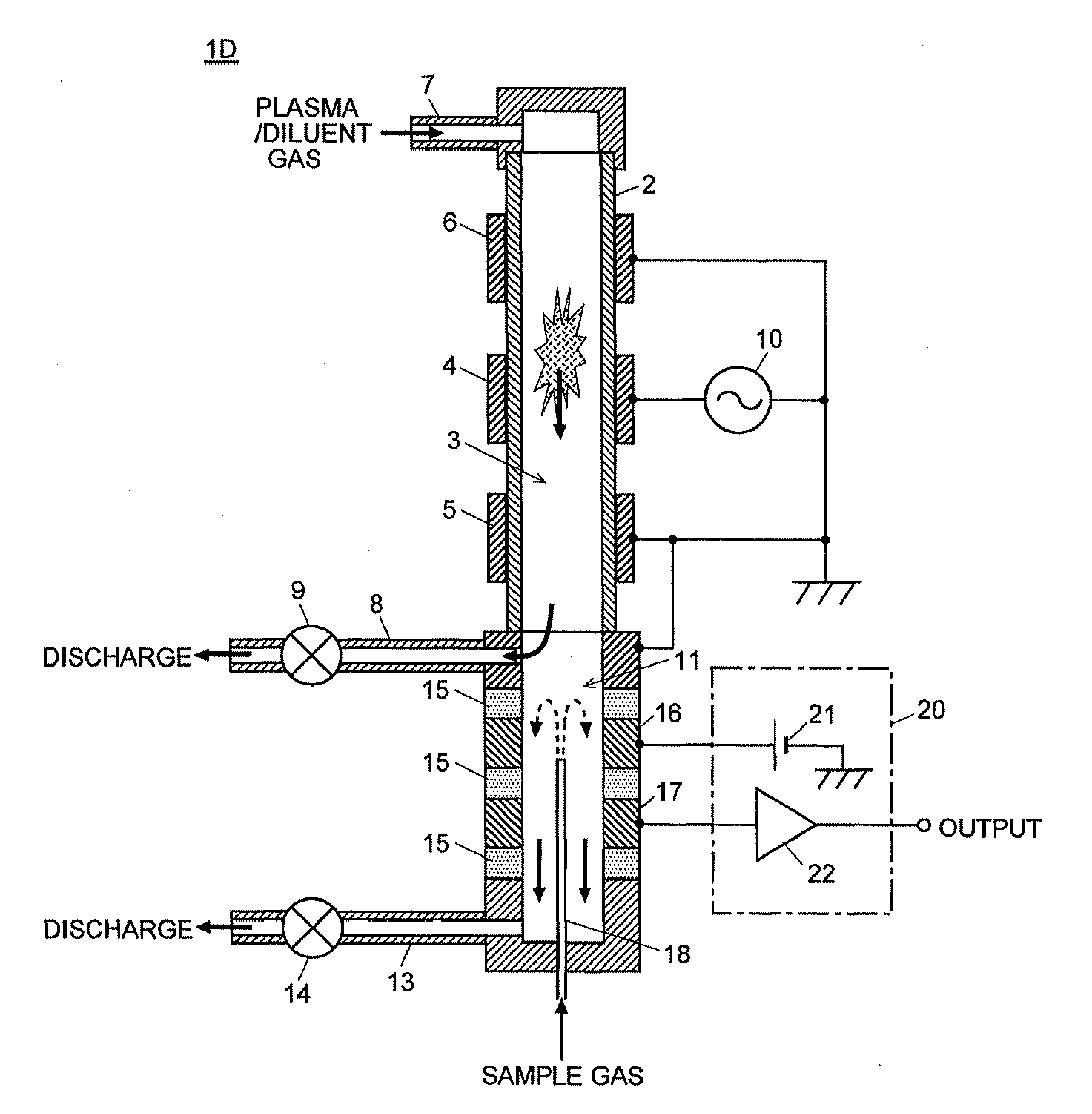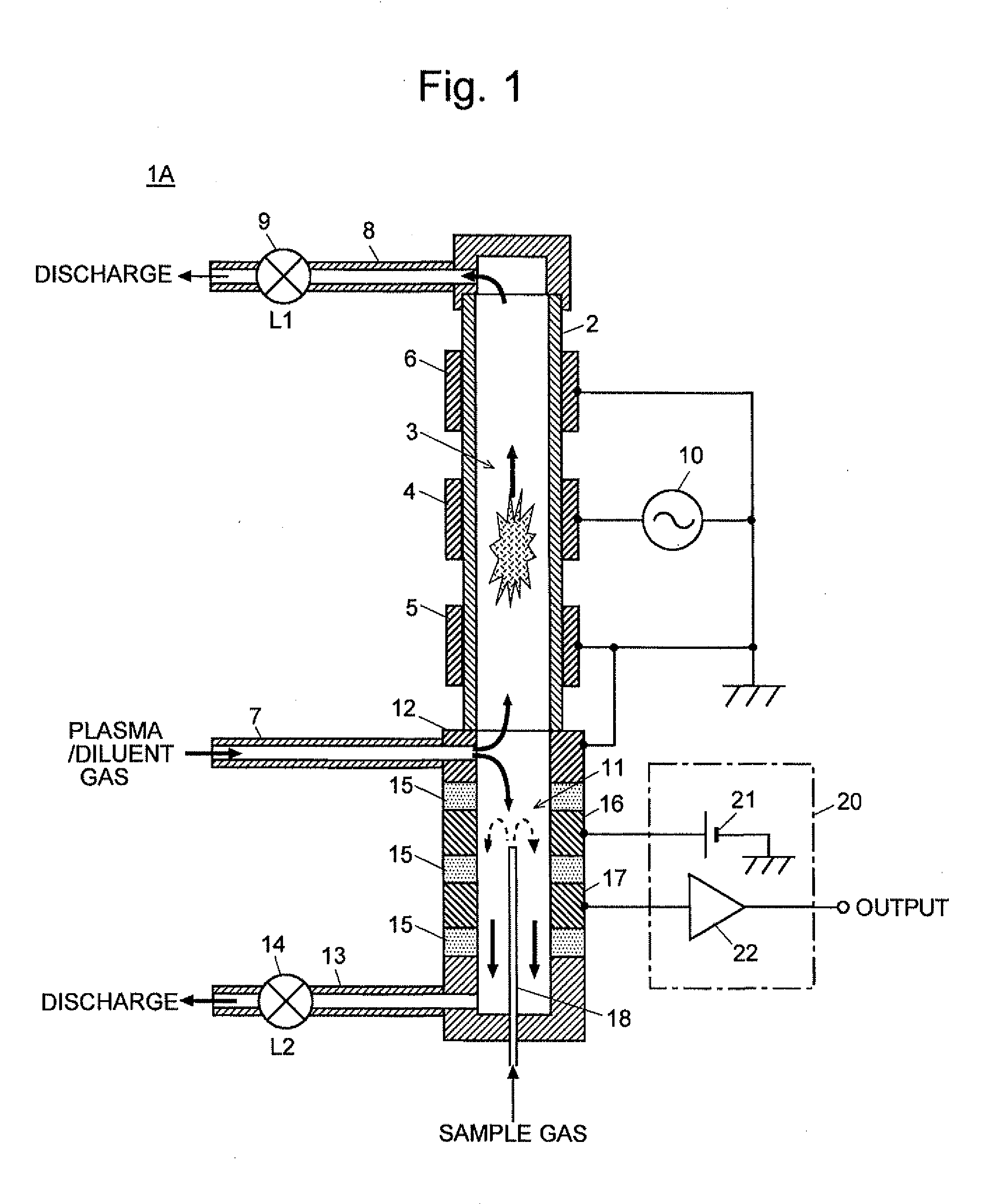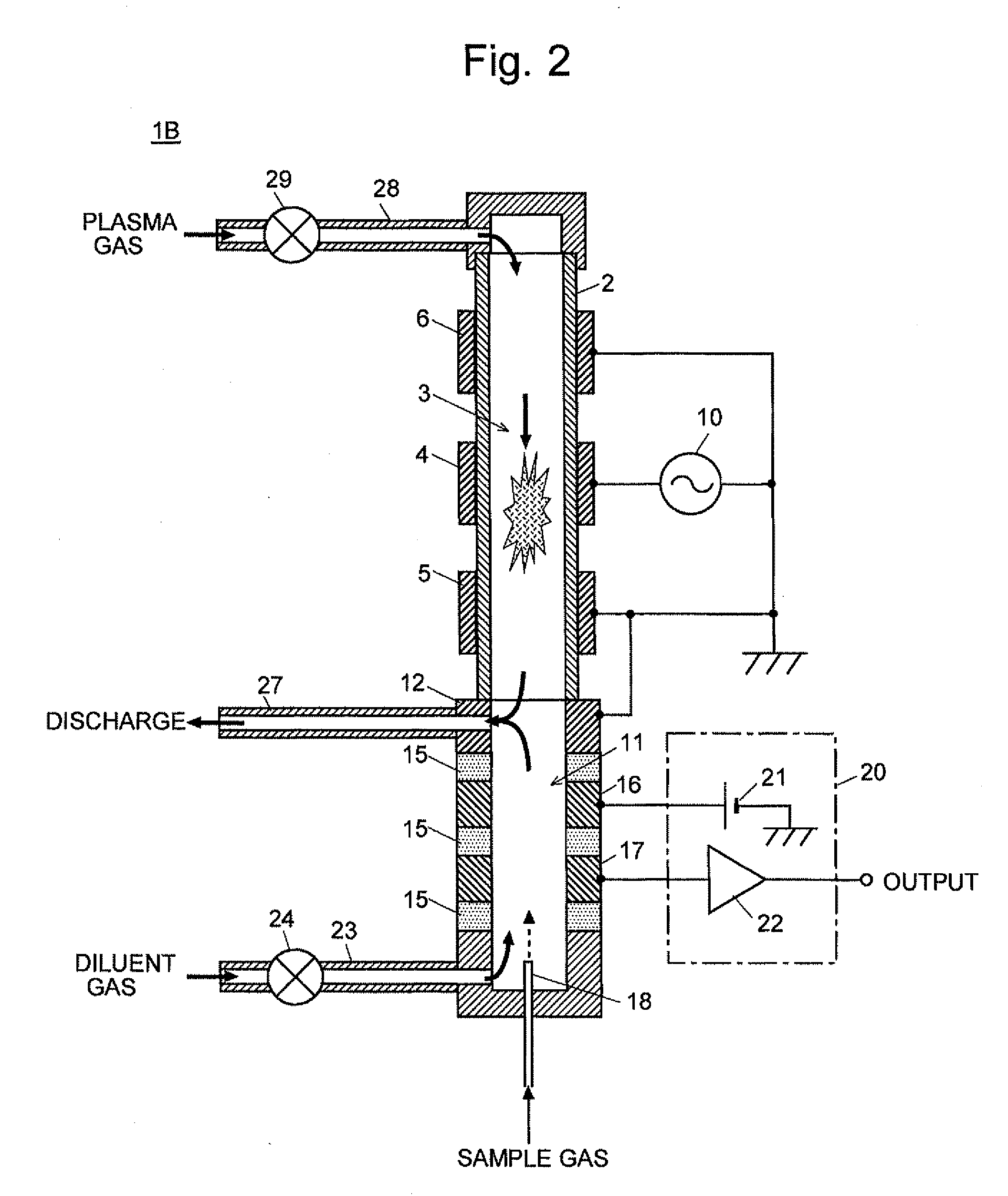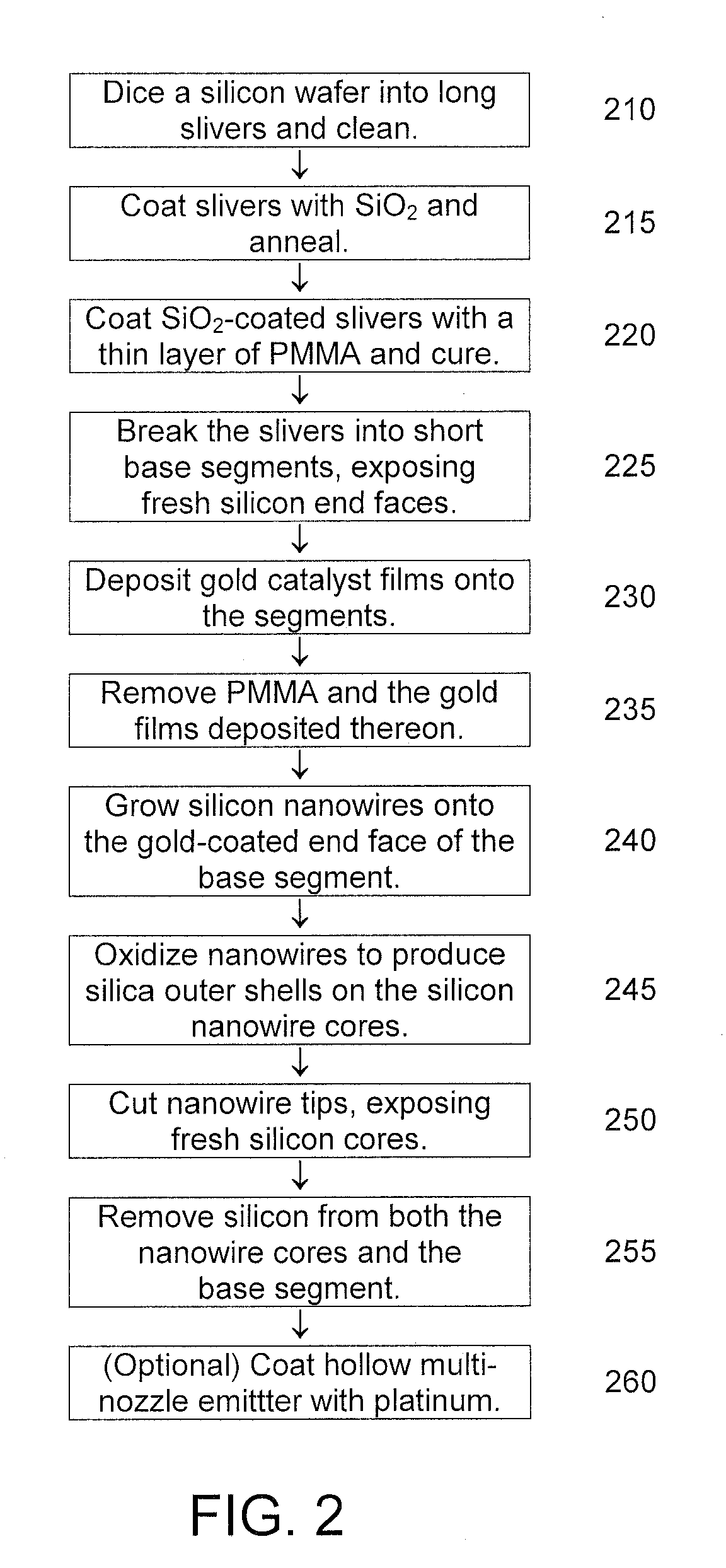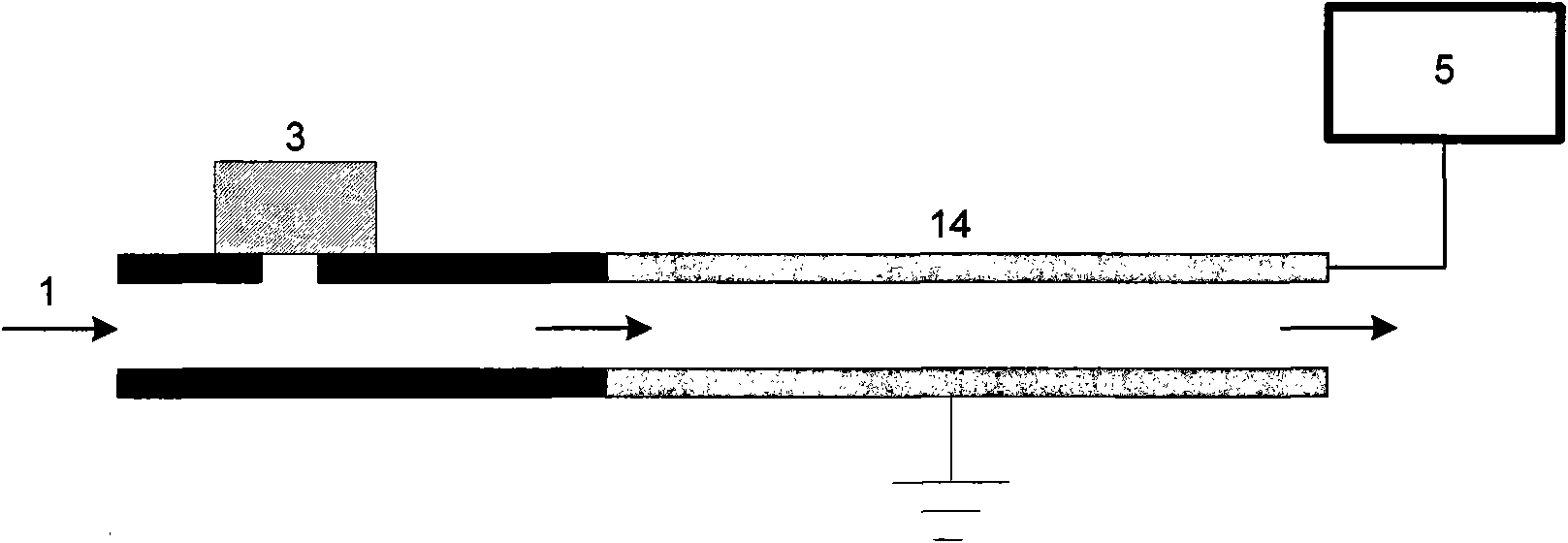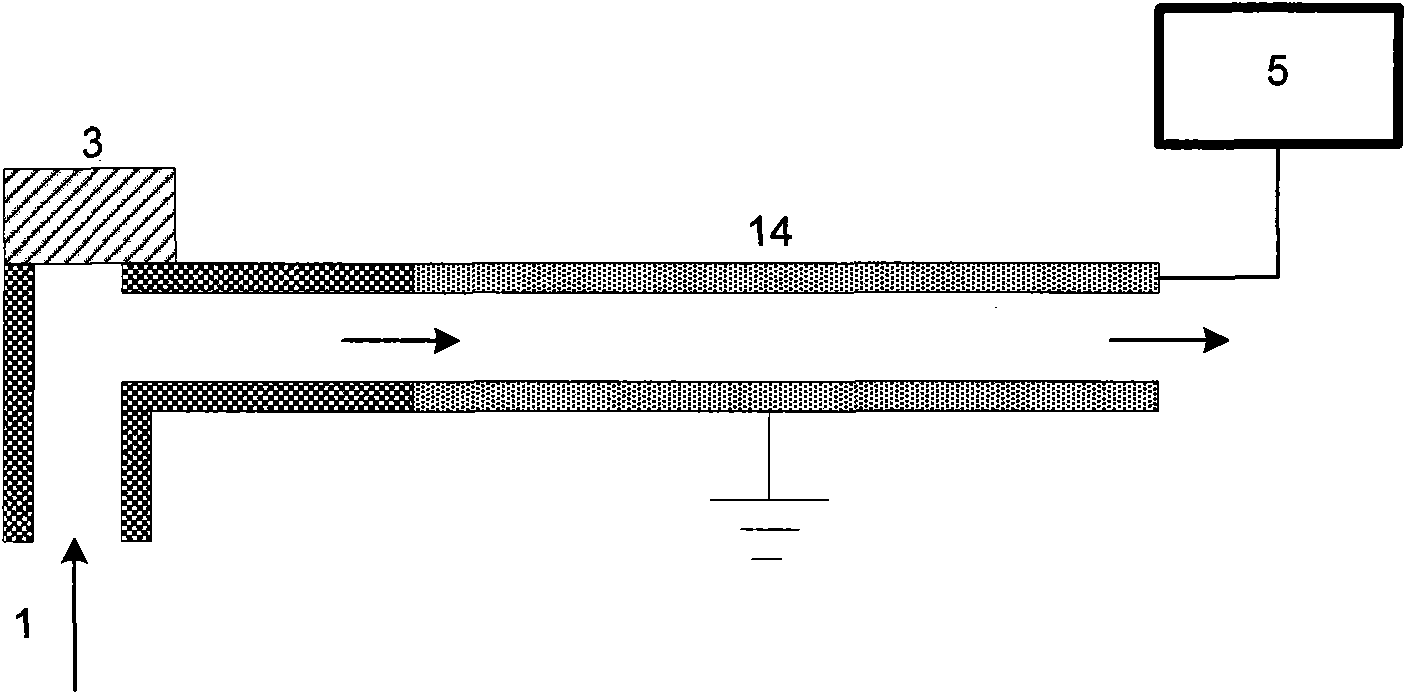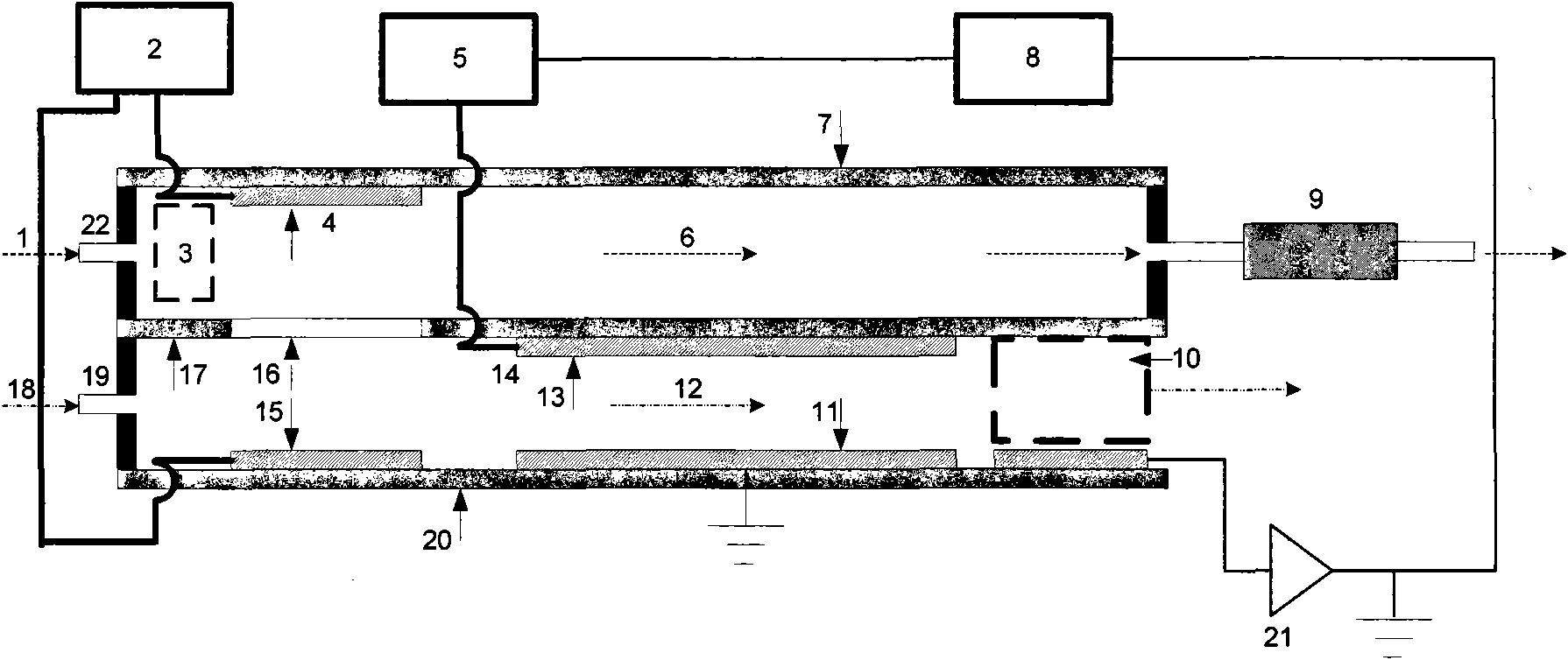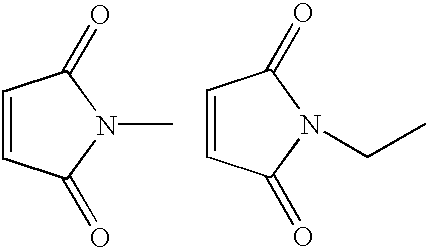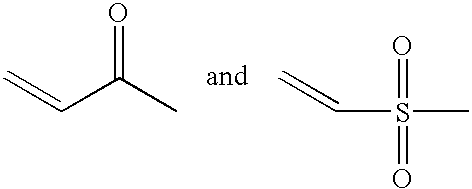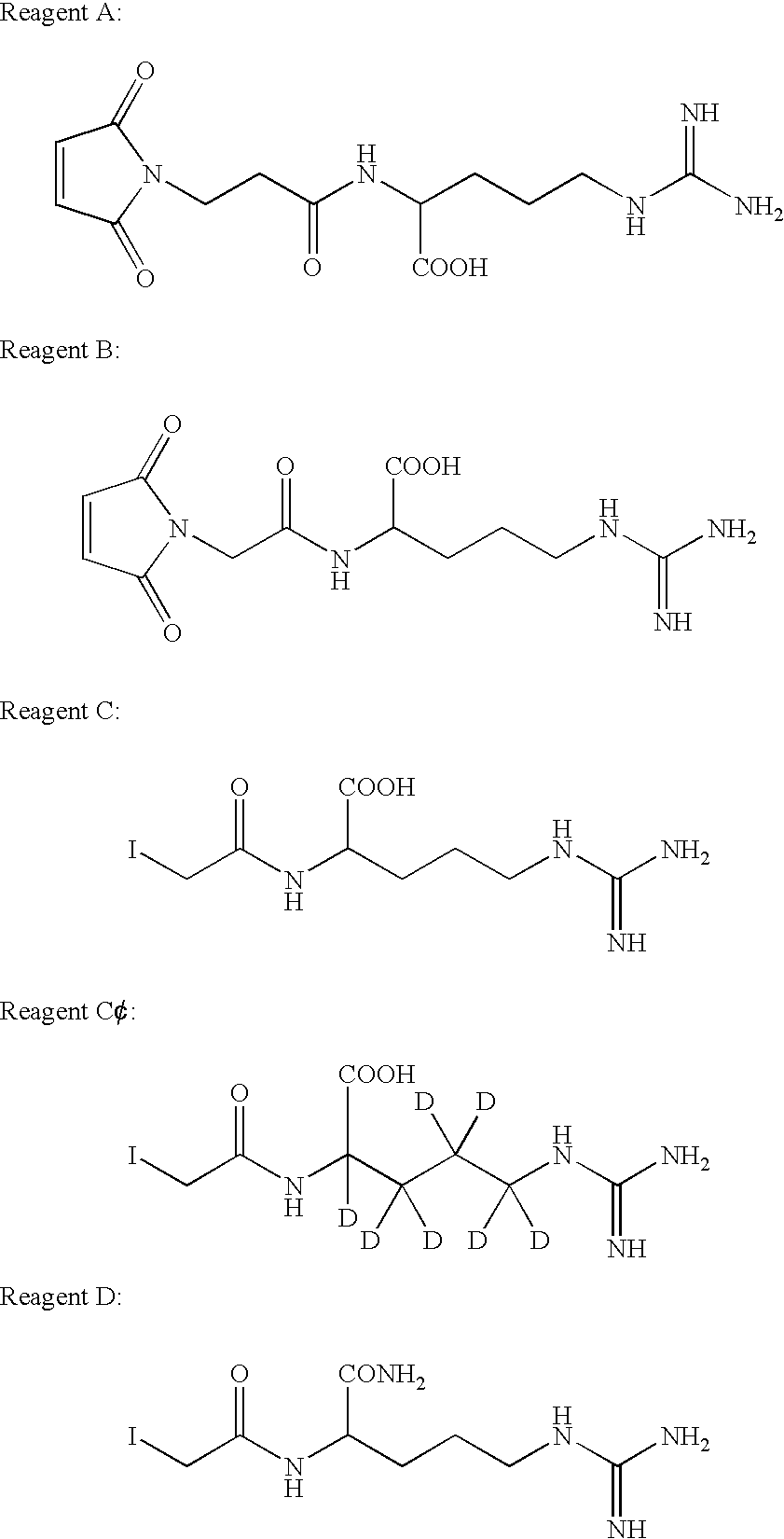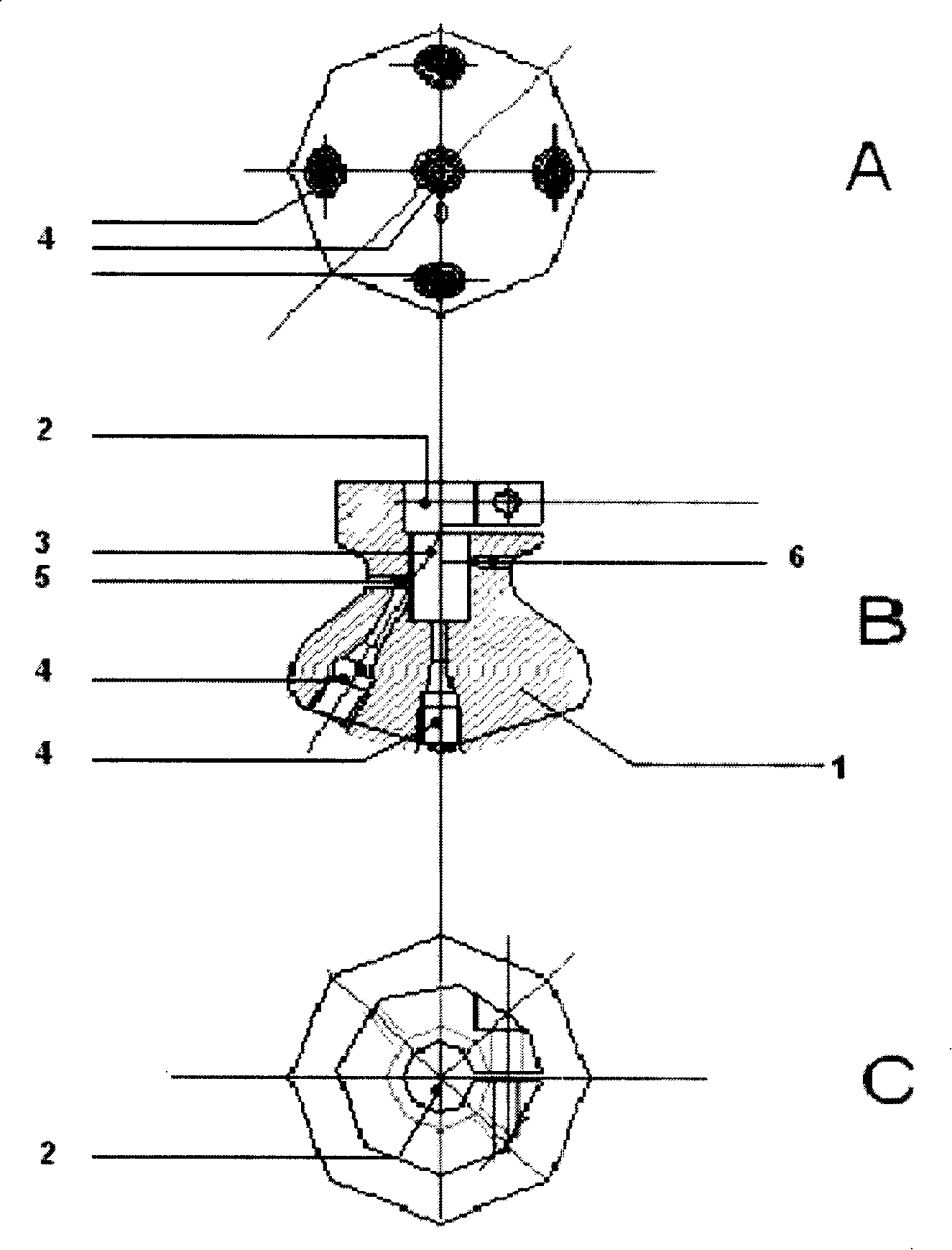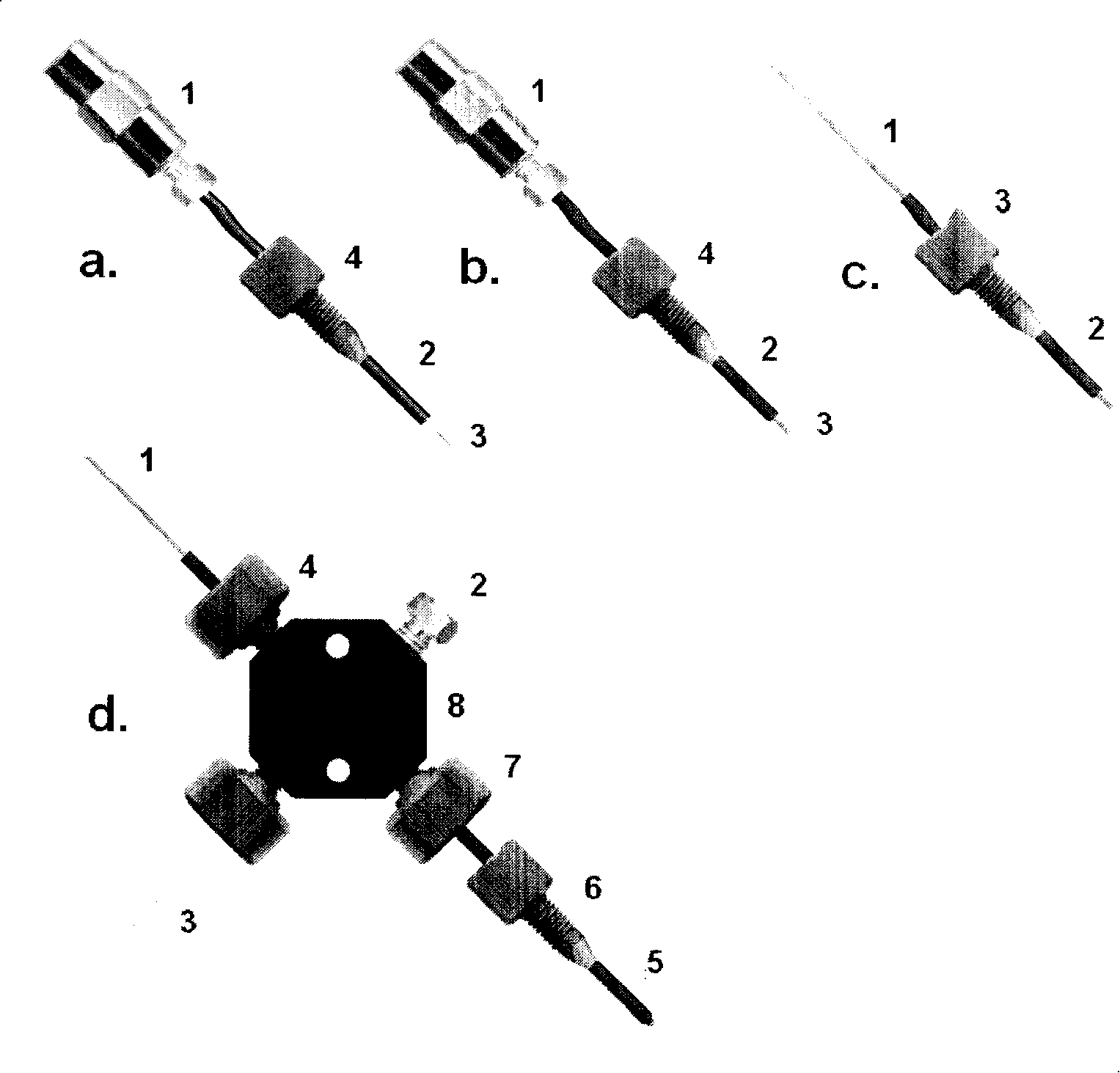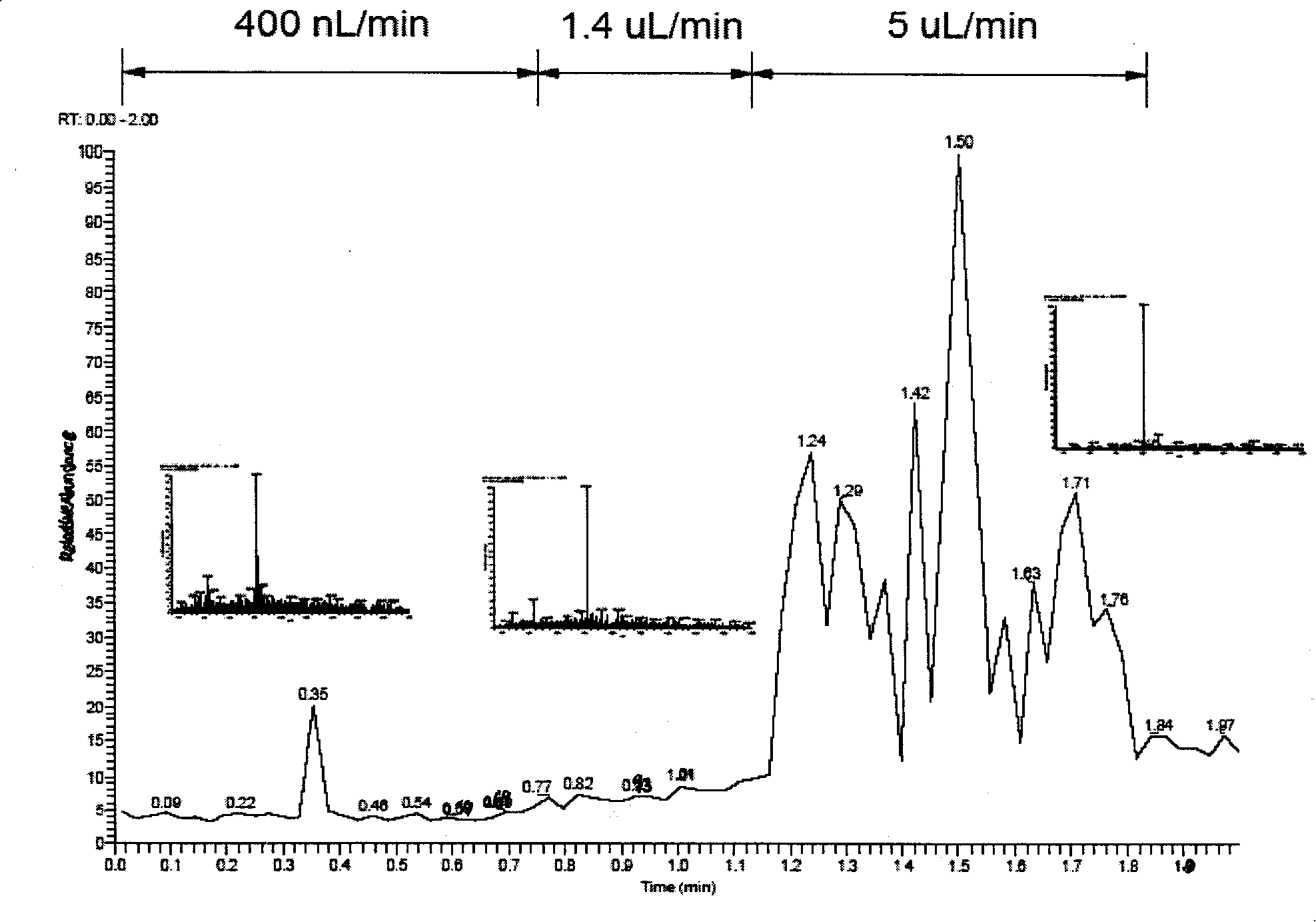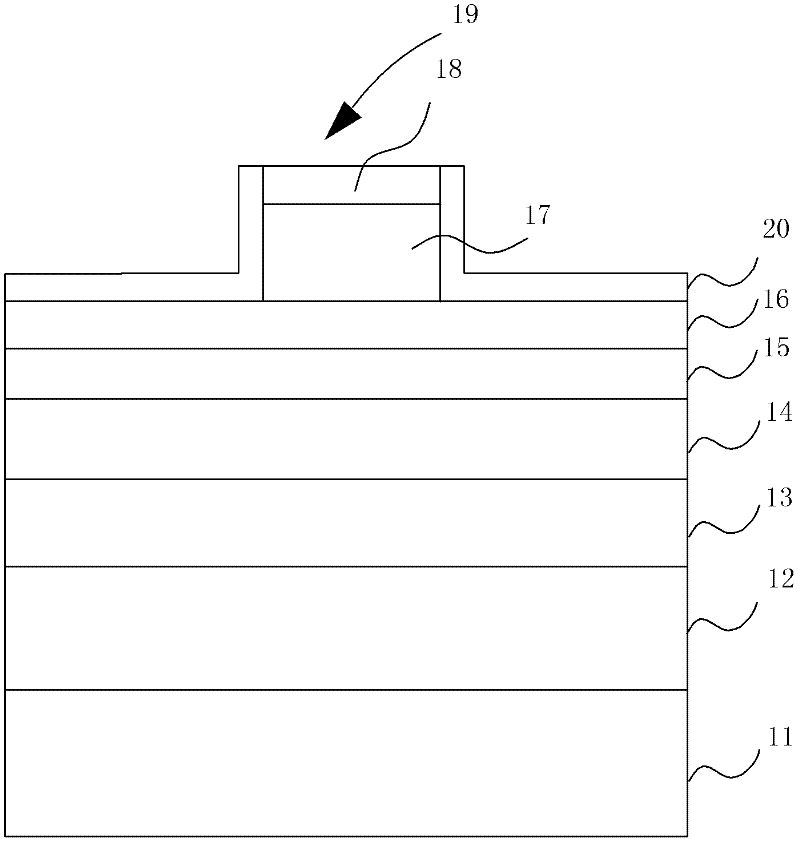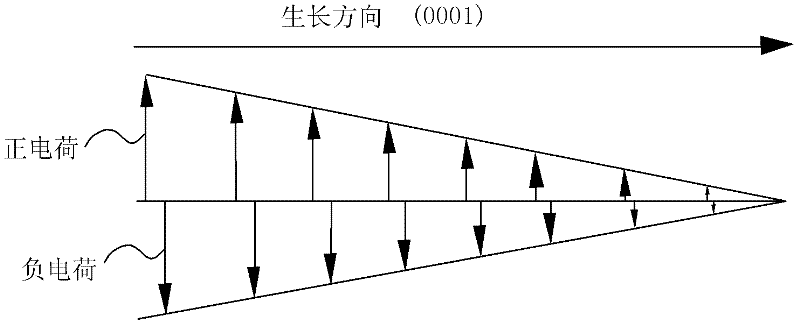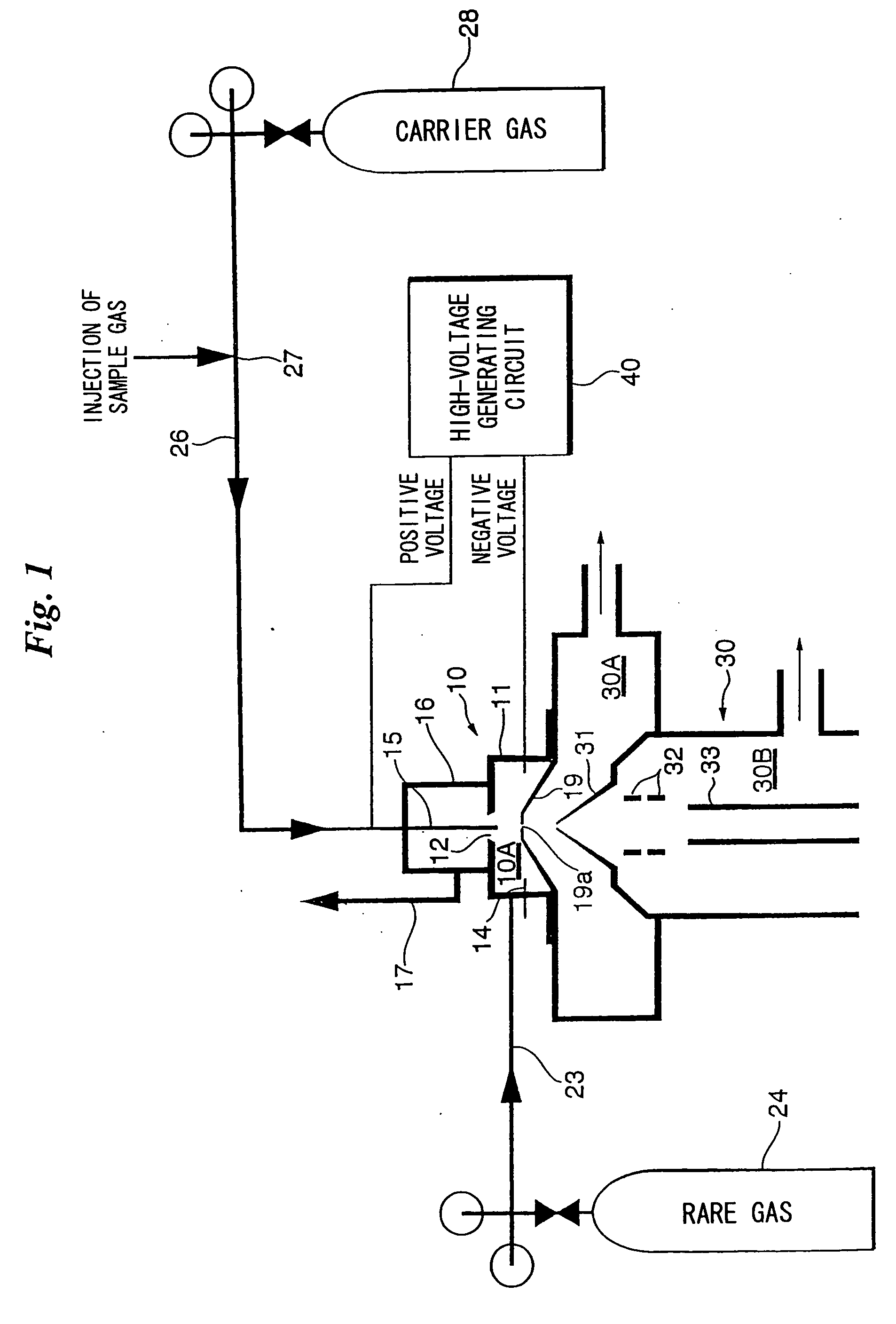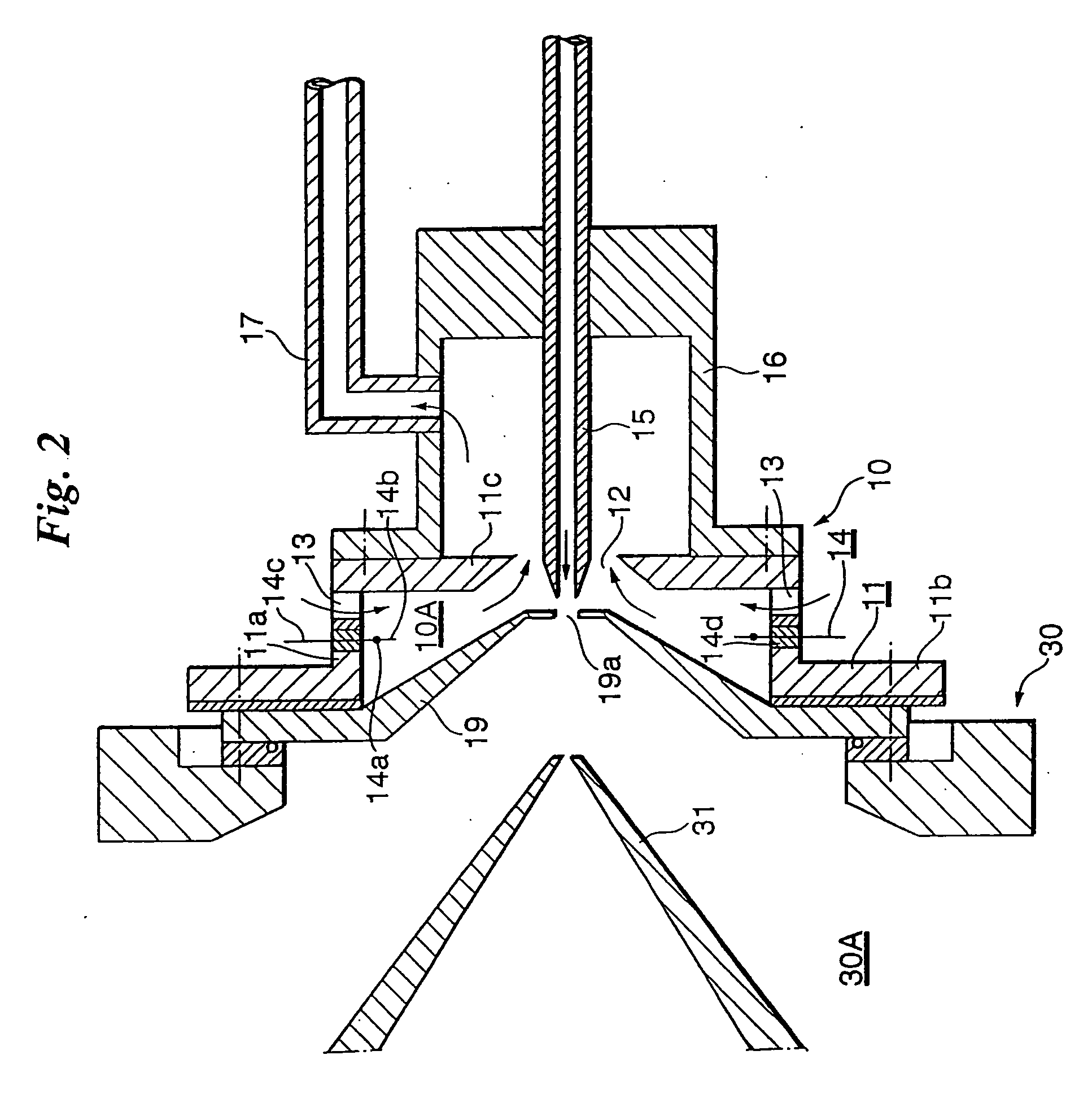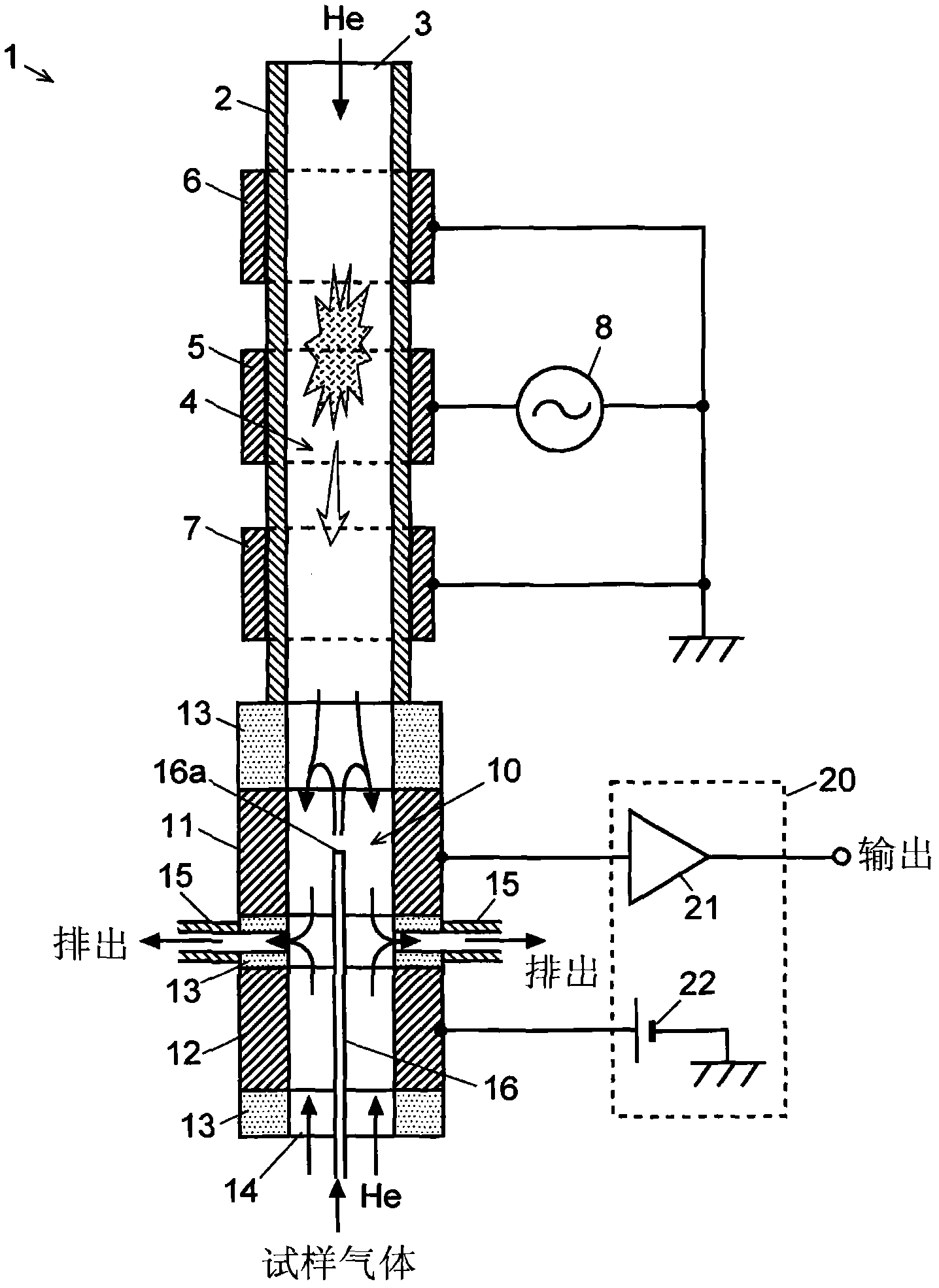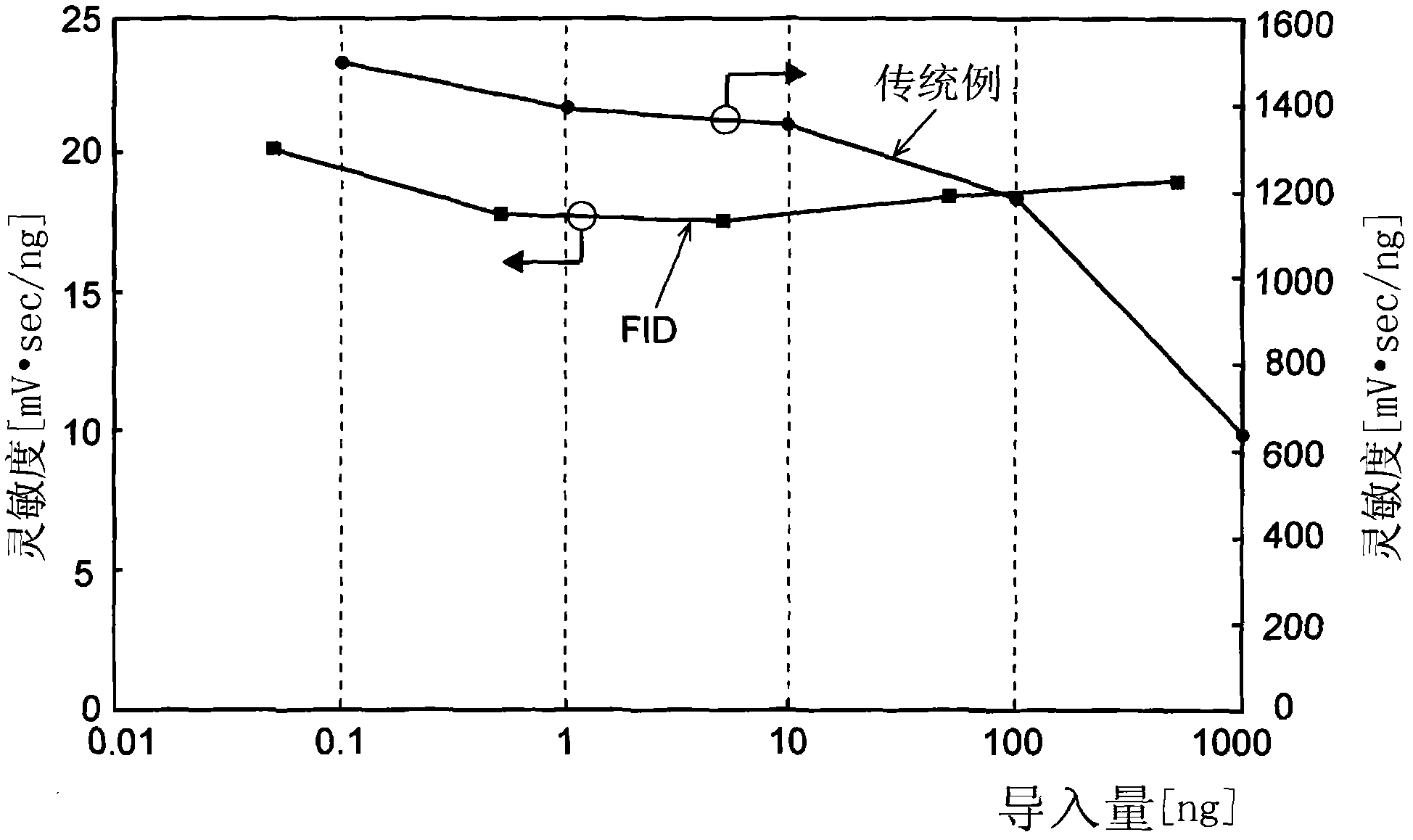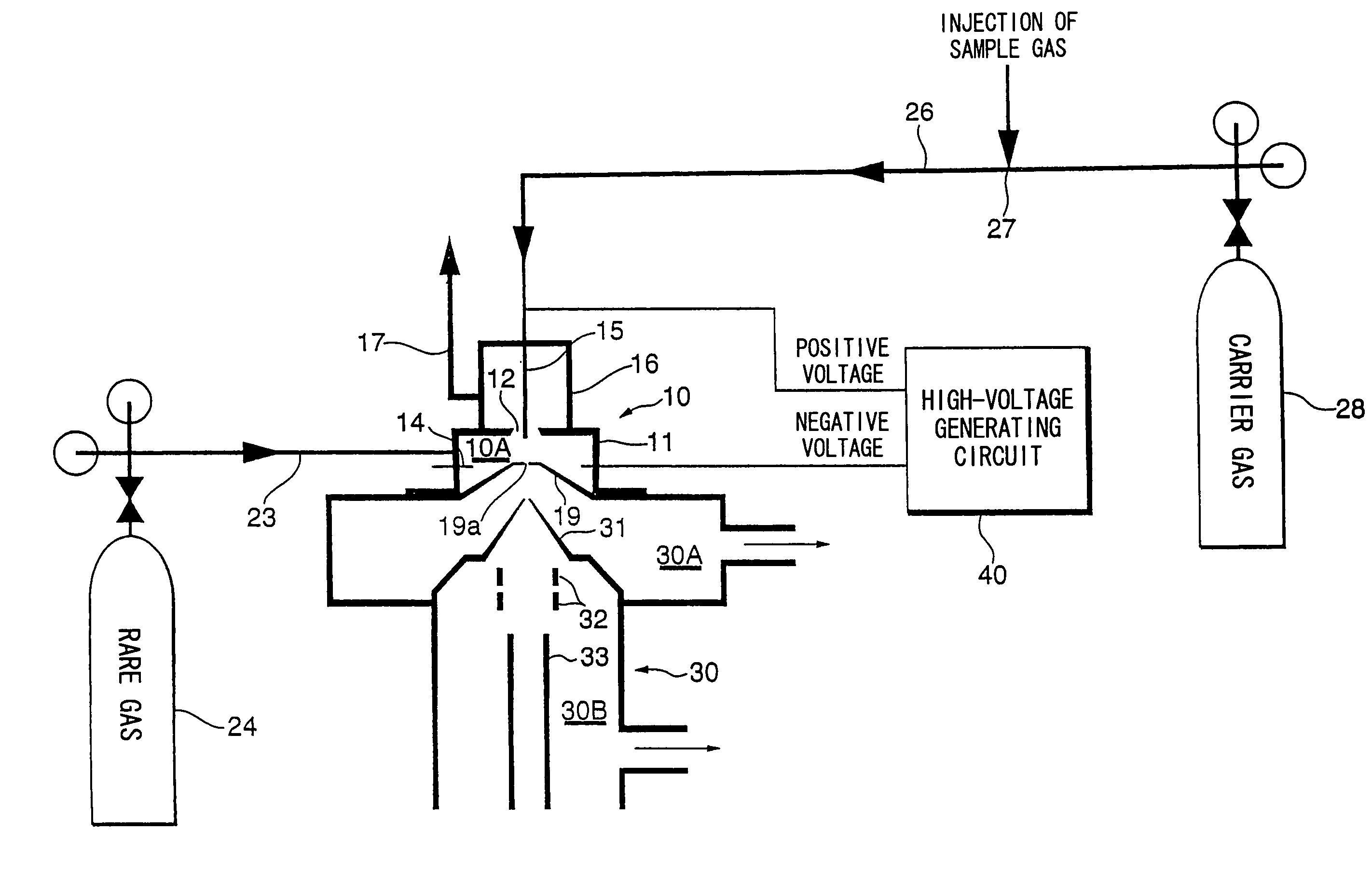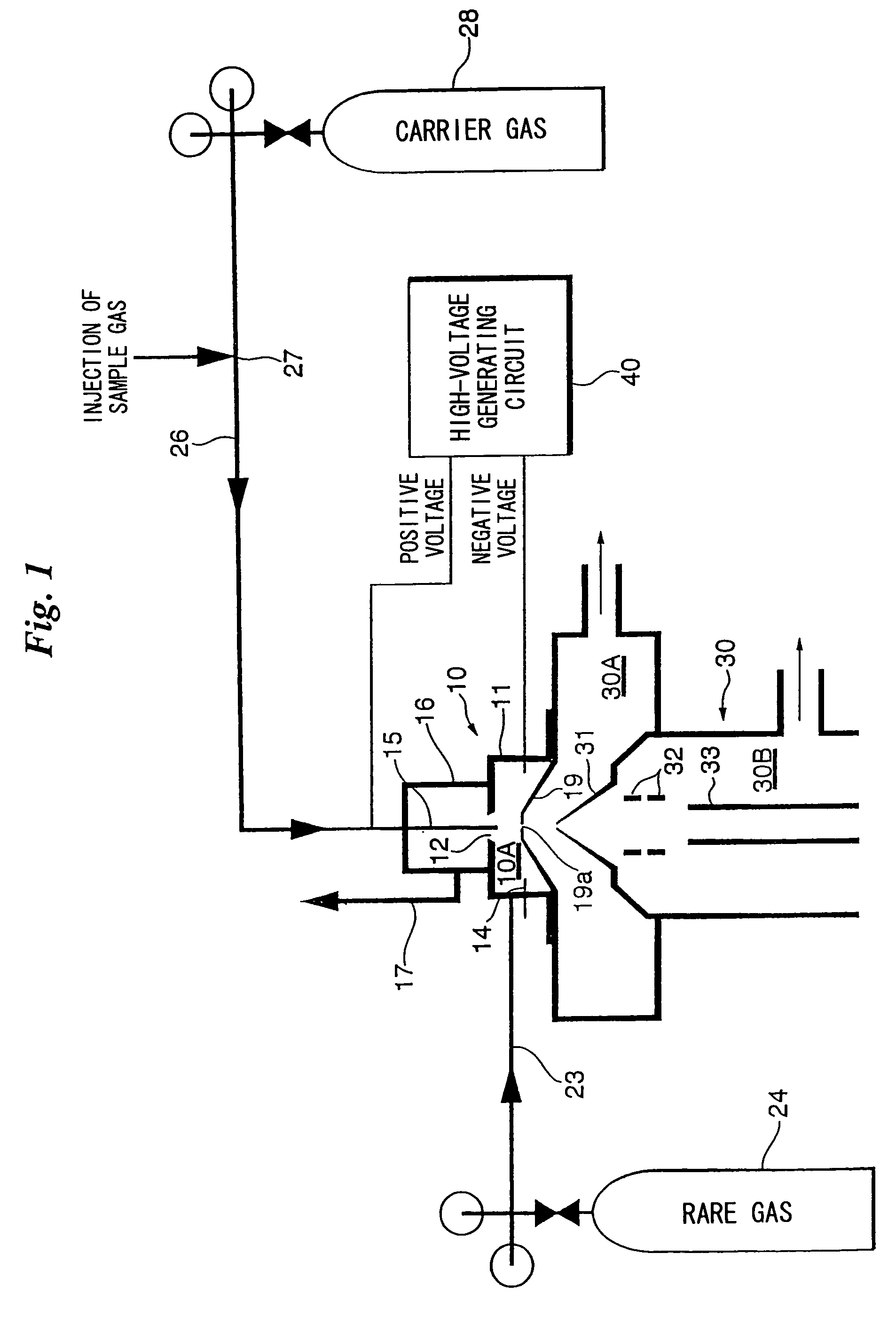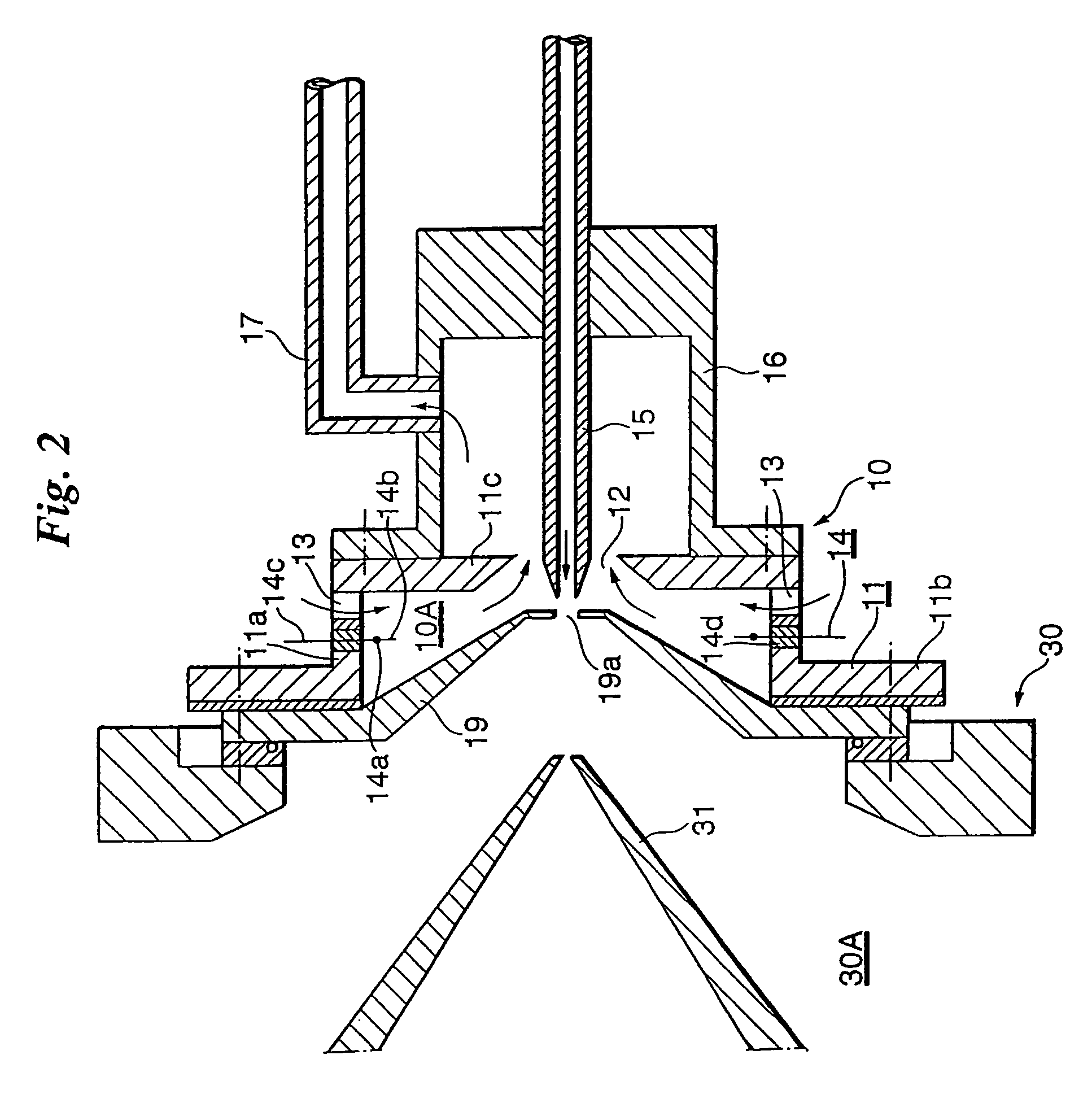Patents
Literature
Hiro is an intelligent assistant for R&D personnel, combined with Patent DNA, to facilitate innovative research.
471results about How to "Improve ionization efficiency" patented technology
Efficacy Topic
Property
Owner
Technical Advancement
Application Domain
Technology Topic
Technology Field Word
Patent Country/Region
Patent Type
Patent Status
Application Year
Inventor
Shower head and cvd apparatus using the same
InactiveUS20080196666A1Efficient dissociationImprove efficiencyElectric discharge tubesChemical vapor deposition coatingEngineeringMechanical engineering
The showerhead for a CVD apparatus can be easily produced and is capable of forming a film efficiently. The showerhead comprises: a shower plate being made of a metal; and a porous plate contacting a rear face of the shower plate. A plurality of gas diffusion holes are formed in a plate section of the shower plate, which faces a workpiece, and penetrate the plate section in the thickness direction, and the porous plate covers all of the gas diffusion holes.
Owner:ORBOTECH LT SOLAR
Laser desorption ion source
ActiveUS20050056776A1Efficient extractionImprove ionization efficiencyElectron/ion optical arrangementsIsotope separationPhysicsIonization
Atmospheric pressure, intermediate pressure and vacuum laser desorption ionization methods and ion sources are configured to increase ionization efficiency and the efficiency of transmitting ions to a mass to charge analyzer or ion mobility analyzer. An electric field is applied in the region of a sample target to accumulate ions generated from a local ion source on a solid or liquid phase sample prior to applying a laser desorption pulse. The electric field is changed just prior to or during the desorption laser pulse to promote the desorption of charged species and improve the ionization efficiency of desorbed sample species. After a delay, the electric field may be further changed to optimize focusing and transmission of ions into a mass spectrometer or ion mobility analyzer. Charged species may also be added to the region of the laser desorbed sample plume to promote ion-molecule reactions between the added ions and desorbed neutral sample species, increasing desorbed sample ionization efficiency and / or creating desired product ion species. The cycling of electric field changes is repeated in a timed sequence with one or more desorption laser pulse occurring per electric field change cycle. Embodiments of the invention comprise atmospheric pressure, intermediate pressure and vacuum pressure laser desorption ionization source methods and devices for increasing the analytical flexibility and improving the sensitivity of mass spectrometric analysis.
Owner:PERKINELMER HEALTH SCIENCES INC +1
Methods and apparatus for the ion mobility based separation and collection of molecules
InactiveUS20080173809A1Easy to collectEasy to separateOrganic compounds purification/separation/stabilisationMaterial analysis by electric/magnetic meansESI mass spectrometryAnalyte
This invention describes an apparatus for the separation and collection of components in a sample of interest comprising: an ionization source; an ion mobility separator and an ion collector positioned to receive ions leaving the ion mobility separator. The ion mobility separator having an inlet to supply at least one separating substance which comprises particles which selectively interact with at least one analyte component of interest to certain degree different from the others. The analyte component of interest may be enantiomers, diastereomers, stereoisomers, isomers, etc. The ion collector can be used to conduct analytical, preparative, and semi-preparative separation. In addition, a combined primary electrospray and secondary electrospray ionization source is disclosed to enhance ionization efficiency of interest.
Owner:EXCELLIMS CORP
Single and multiple operating mode ion sources with atmospheric pressure chemical ionization
ActiveUS20090294660A1Maximize ion source performanceMinimizing chargeIsotope separationMass spectrometersGas phaseCorona discharge
An Atmospheric Pressure Chemical Ionization (APCI) source interfaced to a mass spectrometer is configured with a corona discharge needle positioned inside the APCI inlet probe assembly. Liquid sample flowing into the APCI inlet probe is nebulized and vaporized prior to passing through the corona discharge region all contained in the APCI inlet probe assembly Ions produced in the corona discharge region are focused toward the APCI probe centerline to maximize ion transmission through the APCI probe exit. External electric fields penetrating into the APCI probe exit end opening providing additional centerline focusing of sample ions exiting the APCI probe. The APCI probe is configured to shield the electric field from the corona discharge region while allowing penetration of an external electric field to focus APCI generated ions into an orifice into vacuum for mass to charge analysis. Ions that exit the APCI probe are directed only by external electric fields and gas flow maximizing ion transmission into a mass to charge analyzer. The new APCI probe can be configured to operate as a stand alone APCI source inlet probe, as a reagent ion gun for ionizing samples introduced on solids or liquid sample probes or through gas inlets in a multiple function ion source or as the APCI portion of a combination Electrospray and APCI multiple function ion source. Sample ions and gas phase reagent ions are generated in the APCI probe from liquid or gas inlet species or mixtures of both.
Owner:PERKINELMER U S LLC
Mutation analysis using mass spectrometry
InactiveUS6503710B2Rapid and economic sample preparationAccurate massSamplingSugar derivativesChemical treatmentFree form
The invention presents a method for examining genetic material (deoxyribonucleic acid, DNA) to detect the presence of pre-known mutations, especially single nucleotide polymorphisms (SNP), using mass spectrometry with ionization by matrix-assisted laser desorption (MALDI). The invention uses nucleoside triphosphates with modified sites for the method of primer extension in a duplicating, enzymatic reaction and at least partially removal of primers from the extension product, in combination with product neutralization by chemical treatment of the modified sites, so that the resulting DNA products can be, by using special matrix materials, preferredly ionized in an adduct-free form over other constituents in the reaction solution without any further cleaning. The method is particularly suitable for simultaneous identification of several mutations by multiplexing.
Owner:BRUKER DALTONIK GMBH
Ion source
ActiveUS20110049352A1Improve ionization efficiencyEfficient processingMaterial analysis by optical meansIon sources/gunsElectricityAnalyte
This invention relates to a desorpton / ionization source operated under ambient conditions for direct analysis of solid or liquid samples on a surface. The source comprises of a laser desorption system and a UV / electrospray combined ionization system. The source is suitable for simultaneously ionizing samples with different polarity in a complex mixture. At the same time, the compact design of the source with multiple channels can maintain the level of local concentration of the analyte ions inside the source for higher efficiency of sample ionization and introduction.
Owner:SHIMADZU RES LAB SHANGHAI
Increasing ionization efficiency in mass spectrometry
InactiveUS7276378B2Improve ionization efficiencyLess fragmentationTime-of-flight spectrometersSamplingAnalyteMass Spectrometry-Mass Spectrometry
A system for the analysis of polyionic molecules by mass spectrometry is provided. The polyionic molecule is attached to a charged tag which neutralizes some of the charge on the polyionic analyte. The formed adduct with a reduced net charge is then analyzed by mass spectrometry, and the determined molecular weight of the adduct can be used to calculate the molecular weight of the analyte. Mass spectrometric analyses of polynucleotides and proteins are particularly amenable to this method.
Owner:AGILENT TECH INC
Method and device for desorption ionization by liquid jet
ActiveUS20090302211A1Sufficient energyImprove efficiencySamplingMicrobiological testing/measurementLiquid jetJet flow
The invention relates to method and apparatus for production of gaseous ions from components of a condensed phase sample and analysis thereof, wherein one or more liquid jet(s) is / are directed to the surface of the sample to be investigated, where the impact of the liquid jet on the sample surface produces droplets carrying sample particles which are turned into gaseous ions via the evaporation of liquid or, if desired, by a subsequent ionization after the evaporation and the obtained sample particles are analyzed by a known method.
Owner:SEMMELWEIS EGYETEM
Explosive detection system and sample collecting device
InactiveUS6840120B2Efficient ionizationHigh detection sensitivityMaterial analysis using wave/particle radiationSamples introduction/extractionCorona dischargeX-ray
An explosive detection system includes an X-ray inspection apparatus, a mover for moving an object to be inspected to the X-ray inspection apparatus, a sample introduction probe for sampling a gas sample from the object to be inspected, a pipe for introducing the sampled gas into a corona discharge region and for subjecting the sampled gas to negative corona discharge to ionize the sampled gas and to generate negative ions. A mass spectrometer is provided to analyze the mass of the negative ions of the sampled gas and to provide results thereof. Inspection by the X-ray inspection apparatus is performed in relation to sampling of the gas sample, and explosive detection system inspects whether or not an explosive is present in the object to be inspected, from the analysis results of the sampled gas.
Owner:HITACHI LTD
Single and multiple operating mode ion sources with atmospheric pressure chemical ionization
ActiveUS7982185B2Minimizes or eliminates analyte ion lossesImprove ionization efficiencyMaterial analysis by optical meansIsotope separationGas phaseCorona discharge
An Atmospheric Pressure Chemical Ionization (APCI) source interfaced to a mass spectrometer is configured with a corona discharge needle positioned inside the APCI inlet probe assembly. Liquid sample flowing into the APCI inlet probe is nebulized and vaporized prior to passing through the corona discharge region all contained in the APCI inlet probe assembly Ions produced in the corona discharge region are focused toward the APCI probe centerline to maximize ion transmission through the APCI probe exit. External electric fields penetrating into the APCI probe exit end opening providing additional centerline focusing of sample ions exiting the APCI probe. The APCI probe is configured to shield the electric field from the corona discharge region while allowing penetration of an external electric field to focus APCI generated ions into an orifice into vacuum for mass to charge analysis. Ions that exit the APCI probe are directed only by external electric fields and gas flow maximizing ion transmission into a mass to charge analyzer. The new APCI probe can be configured to operate as a stand alone APCI source inlet probe, as a reagent ion gun for ionizing samples introduced on solids or liquid sample probes or through gas inlets in a multiple function ion source or as the APCI portion of a combination Electrospray and APCI multiple function ion source. Sample ions and gas phase reagent ions are generated in the APCI probe from liquid or gas inlet species or mixtures of both.
Owner:PERKINELMER U S LLC
Method and device for desorption ionization by liquid jet
ActiveUS8314382B2Improve efficiencyOverall light weightSamplingParticle separator tubesLiquid jetPhysical chemistry
The invention relates to method and apparatus for production of gaseous ions from components of a condensed phase sample and analysis thereof, wherein one or more liquid jet(s) is / are directed to the surface of the sample to be investigated, where the impact of the liquid jet on the sample surface produces droplets carrying sample particles which are turned into gaseous ions via the evaporation of liquid or, if desired, by a subsequent ionization after the evaporation and the obtained sample particles are analyzed by a known method.
Owner:SEMMELWEIS EGYETEM
Ion migration spectrometer based on sample through membrane
InactiveCN1916619AReduce air pressureReduce humidityPreparing sample for investigationMaterial analysis by electric/magnetic meansGlass fiberAtmospheric pressure
Owner:上海新漫传感科技有限公司
Desorption ionization device used in mass spectrometer
ActiveCN101520432AAtmospheric pressure direct analysis technology is perfectImprove the ionization effectMaterial analysis by electric/magnetic meansMass spectrometersDesorptionUltraviolet
The invention relates to a desorption ionization device which carries out desorption to a measured object with a solid surface at atmospheric pressure by laser and then carries out ionization to the object after desorption by utilizing vacuum-ultraviolet light. The device comprises a laser generating laser beams, an optical laser system used for converging the laser beams on the surface of the measured object so as to lead the measured object in the sample to be desorbed or gasified, and an ultraviolet lamp which is arranged near the desorbed or gasified part and gives off ultraviolet rays soas to lead molecules of at least one part of the desorbed or gasified object to be ionized. Being combined with a spraying apparatus, the desorption ionization device has higher ionization efficiencyto nonpolar or low-polar micromolecules. The desorption ionization device can be applicable to fast sync analysis of complex mixtures with different polarities and molecular weights by utilizing vacuum-ultraviolet light / electron spray. Meanwhile, the design of the multichannel chamber structural keeps the local concentration of each component in an ion source effectively when a test is carried out, thereby improving the ionization efficiency.
Owner:SHIMADZU RES LAB SHANGHAI
Methods and apparatus for the ion mobility based separation and collection of molecules
ActiveUS20130037710A1Easy to collectEasy to separateOrganic compounds purification/separation/stabilisationTime-of-flight spectrometersESI mass spectrometryIonization
This invention describes an apparatus and method with a combined primary electrospray and secondary electrospray ionization source used to enhance ionization efficiency. The solid phase as well as liquid phase sampling, ionization, and detection is described.
Owner:EXCELLIMS CORP
Laser desorption ion source
ActiveUS7087898B2Improve efficiencyImprove ionizationTime-of-flight spectrometersSamples introduction/extractionDesorptionMass analyzer
Atmospheric pressure, intermediate pressure and vacuum laser desorption ionization methods and ion sources are configured to increase ionization efficiency and the efficiency of transmitting ions to a mass to charge analyzer or ion mobility analyzer. An electric field is applied in the region of a sample target to accumulate ions generated from a local ion source on a solid or liquid phase sample prior to applying a laser desorption pulse. The electric field is changed just prior to or during the desorption laser pulse to promote the desorption of charged species and improve the ionization efficiency of desorbed sample species. After a delay, the electric field may be further changed to optimize focusing and transmission of ions into a mass spectrometer or ion mobility analyzer. Charged species may also be added to the region of the laser desorbed sample plume to promote ion-molecule reactions between the added ions and desorbed neutral sample species, increasing desorbed sample ionization efficiency and / or creating desired product ion species. The cycling of electric field changes is repeated in a timed sequence with one or more desorption laser pulse occurring per electric field change cycle. Embodiments of the invention comprise atmospheric pressure, intermediate pressure and vacuum pressure laser desorption ionization source methods and devices for increasing the analytical flexibility and improving the sensitivity of mass spectrometric analysis.
Owner:PERKINELMER HEALTH SCIENCES INC +1
Device for desorption and ionization
ActiveUS8242459B2Precise positioningAvoid interferenceSamples introduction/extractionScattering properties measurementsVisibilityAnalyte
Owner:SHIMADZU CORP
Polypeptide fingerprinting methods
InactiveUS20050089930A1Eliminate needImprove ionization efficiencySamplingMicrobiological testing/measurementData retrievalProteomics
The invention provides methods, compositions, apparatus, and a computer data retrieval system for conducting proteomics.
Owner:TARGET DISCOVERY
Discharge Ionization Current Detector
ActiveUS20110018546A1Improve efficiencyImprove ionization efficiencyComponent separationMaterial analysis by electric/magnetic meansIonization currentPower flow
A low-frequency high AC voltage from an excitation voltage power source (14) is applied between one electrode (8) and two other electrodes (9A and 9B) to generate a low-frequency AC-excited dielectric barrier discharge within a gas passage (3), thereby creating atmospheric pressure non-equilibrium micro-plasma. A sample gas is mixed with hydrogen inside the passage of a nozzle (51), and further mixed with air outside an exit port (53) to burn, forming a hydrogen flame (57). Then, the sample gas reaches an ionization area (56), where the sample components are ionized due to the effect of light emitted from the plasma. Meanwhile, water molecules generated in the hydrogen flame (57) are supplied into the ionization area (56), whereby some of the sample-molecule ions are hydrated while the others undergo a reaction to form a hydroxonium ion. These kinds of hydrated ions have long lifetimes and barely become extinct halfway, so that they can efficiently reach a detection electrode (13) and be detected as ion current. As a result, the detection sensitivity is improved and the dynamic range is enhanced.
Owner:OSAKA UNIV +1
Mass spectrum vacuum ultraviolet ionization source based on optical-window-free gas discharge lamp
InactiveCN103854952AImprove ionization efficiencyPlay the role of auxiliary ionizationIon sources/gunsGas-discharge lampExcited state
The invention relates to mass spectrometry instruments, in particular to a mass spectrum vacuum ultraviolet ionization source based on an optical-window-free gas discharge lamp. The mass spectrum vacuum ultraviolet ionization source based on the optical-window-free gas discharge lamp comprises the optical-window-free gas discharge lamp and an ionization source cavity, wherein the optical-window-free gas discharge lamp is fixed to the outer wall of the ionization source cavity, a discharge lamp light outlet of the optical-window-free gas discharge lamp is communicated with the ionization source cavity, vacuum ultraviolet emitted by the optical-window-free gas discharge lamp is located inside the ionization source cavity, ion repulsion electrodes, ion transport electrodes and ion extraction electrodes are arranged inside the ionization source cavity and are arranged in sequence in the emergent direction of the vacuum ultraviolet, and the ion repulsion electrodes, the ion transport electrodes and the ion extraction electrodes are arranged at intervals in a coaxial and parallel mode. According to the mass spectrum vacuum ultraviolet ionization source based on the optical-window-free gas discharge lamp, due to the fact that the vacuum ultraviolet with different energy grades and excited-state atoms / ions with different energy grades are generated through gas discharge, ionization selection and ionization efficiency of sample molecules are improved, influence of pollution of an optical window on signal strength can be eliminated, and detection sensitivity and measurement accuracy of the mass spectrum are improved.
Owner:DALIAN INST OF CHEM PHYSICS CHINESE ACAD OF SCI
Method for directly analyzing lung cancer tissue sample based on tissue electro-spray ionization mass spectrometry
InactiveCN104062348AAvoid damageReduce manufacturing costMaterial analysis by electric/magnetic meansElectro sprayAcupuncture/acupressure
A method for directly analyzing a lung cancer tissue sample based on the tissue electro-spray ionization mass spectrometry concretely comprises the steps that an electro-spray extraction ionization source in the tissue sample is set up; an extraction agent, namely, methyl alcohol is sucked through a micro-syringe connected with a quartz capillary, the extraction agent is dripped on the surface of the sample through the quartz capillary, and an injection pump controls the micro-syringe; the lung cancer tissue sample is cut into a piece of which the volume is 1 mm3 and placed at the tip of an acupuncture needle, and the needle tip is inserted into the sample and keep unexposed; the distance between the front end of the sample and an inlet of a mass spectrometer is adjusted, and the tail end of the acupuncture needle, the front end of the sample and the inlet of the mass spectrometer are adjusted to be in a horizontal coaxial state; DC voltage is applied on the acupuncture needle, so that extraction, desorption and ionization happen on the sample, and the sample generates spray which enters the mass spectrometer. According to the method, the information of molecules in the sample can be directly and quickly obtained, and the result shows that the method is a mass spectrometry method which has the advantages that the device is simple, manufacturing cost is low, ionization efficiency is high, and damage to the sample is small.
Owner:THE SECOND AFFILIATED HOSPITAL TO NANCHANG UNIV
Laser desorption ion source
InactiveUS7816646B1Improve efficiencyImprove ionizationSamples introduction/extractionIsotope separationMass analyzerMass spectrography
Owner:PERKINELMER HEALTH SCIENCES INC +1
Discharge Ionization Current Detector
ActiveUS20110187379A1Enhance plasma 's stabilityImprove ionization efficiencyComponent separationMaterial analysis by electric/magnetic meansGas-discharge lampIonization current
A discharge ionization current detector capable of supplying plasma gas in large quantity to stabilize plasma simultaneously with lowering the sample dilution ratio to improve detection sensitivity is provided. A gas supply pipe 7 for supplying a plasma gas, which also functions as a dilution gas, is connected to a point near the connecting section of a first gas passage 3 having electrodes 4-6 for plasma generation and a second gas passage having electrodes 16 and 17 for ion detection. A first gas discharge pipe 8 is connected to the other end of the first gas passage 3, and a second gas discharge pipe 13 is connected to the other end of the second gas passage 11. Flow controllers 9 and 14 are provided in the gas discharge pipes 8 and 13, respectively. The flow rate of the gas passing through a plasma generation area and that of the gas passing through an ion current detection area can be independently regulated. Therefore, for example, it is possible to increase the former flow rate to stabilize the plasma and simultaneously decrease the latter flow rate to enhance the detection sensitivity for a low-concentration sample.
Owner:SHIMADZU CORP
Monolithic Multinozzle Emitters for Nanoelectrospray Mass Spectrometry
ActiveUS20100075428A1Promote formationPossibility for surface functionalizationBurnersParticle separator tubesNano manufacturingMass Spectrometry-Mass Spectrometry
Novel and significantly simplified procedures for fabrication of fully integrated nanoelectrospray emitters have been described. For nanofabricated monolithic multinozzle emitters (NM2 emitters), a bottom up approach using silicon nanowires on a silicon sliver is used. For microfabricated monolithic multinozzle emitters (M3 emitters), a top down approach using MEMS techniques on silicon wafers is used. The emitters have performance comparable to that of commercially-available silica capillary emitters for nanoelectrospray mass spectrometry.
Owner:RGT UNIV OF CALIFORNIA
High-field asymmetric waveform ion mobility spectrometer with multi-layer plate structure
ActiveCN101571508AImprove ionization efficiencyAvoid reactionMaterial analysis by electric/magnetic meansIonizationPhysics
The invention relates to a high-field asymmetric waveform ion mobility spectrometer with a multi-layer plate structure, which belongs to the device for analyzing and detecting biochemicals on site. The mobility spectrometer has a structure that a first gas channel and a second gas channel are formed by an upper base sheet, a middle base sheet and a lower base sheet; an ion source is arranged on the first gas channel; a separation electrode consists of an upper separation electrode and a lower separation electrode, which are respectively arranged on the upper base sheet and the lower base sheet. Electriferous sample ions enter the second gas channel under the action of a separation electric field, and also enter a mobility area for filtering separation under the action of pure carrier gas. The flow rates of the carrier gas in the ion source and the mobility area can be respectively regulated by the sample carrier gas and the pure carrier gas. The invention has the advantages that neutral molecules and the electriferous sample ions are separated before entering the mobility area, thereby avoiding the generation of molecular ion reaction in the mobility area; the flow rates of the carrier gas in the ion source and the mobility area can be regulated respectively, thereby improving the ionization efficiency of the ion source and the ion separation effect of the mobility area.
Owner:TSINGHUA UNIV
Isotope-coded ionization-enhancing reagents (ICIER) for high-throughput protein identification and quantitation using matrix-assisted laser desorption ionization mass spectrometry
InactiveUS6905879B2Quantitative precisionReduce disulfide bondSamplingComponent separationLaser desorption ionization mass spectrometryArginine
Arginine-containing cysteine-modifying compounds useful for MALDI-MS analysis of proteins are provided. These compounds termed isotope-coded ionization enhancement reagents (ICIER) can provide ionization enhancement in MALDI-MS, relative quantitation, and additional database searching constraints at the same time without any extra sample manipulation. More specifically, ICIER increase the ionization efficiency of cysteine-containing peptides by attachment of a guanidino functional group. ICIER also increase the overall hydrophilicity of these peptides due to the hydrophilic nature of ICIER and thus increase the percentage of recovery of these peptides during sample handling and processing such as in-gel digestion or liquid chromatography. Finally, a combination of both light and heavy ICIER provides an accurate way to obtain relative quantitation of proteins by MALDI-MS and additional database searching constraints (number of cysteine residues in every single peptide peak) to increase the confidence of protein identification by peptide mass mapping.
Owner:GENETICS INST INC
Multicenter electric spraying ion source for micro liquid phase separation system and mass spectrum
InactiveCN101206207ARealize joint useEnables direct injectionComponent separationIon sources/gunsMultiple modesSpectrometer
The invention relates to a multi-channel electrospray ion source used in the combination of a micro liquid phase separation system and mass spectrum, wherein 2 to 100 single-channel electrospray nozzle needles / nozzles are fixed on the inlet of the vacuum area of a mass spectrometer, and are distributed in a sector, thereby ensuring that the central axial lines of the tail ends of the single-channel electrospray nozzle needles / nozzles are crossed at the position of 0cm to 1cm away from the front end of the inlet of the vacuum area and are at an angle of 0 degree to 90 degrees to the axial line of the vacuum inlet. When high voltage is respectively applied on each electrospray nozzle needle / nozzle, electrospray ionization of multi-flow path liquid phase can be realized, thereby realizing the combination of a liquid phase separation system and mass spectrum. The ion source has the characteristics of simple structure, easy debugging operation, convenient mode switching, excellent stability and low maintenance cost, etc., and can be directly fixed on a mass spectrometer along with better commonality and practicability. In addition, through installing electrospray nozzle needles / nozzles of different modes, the invention can realize the combination of micro liquid phase separation systems of a plurality of modes and mass spectrum.
Owner:徐州脉析医疗技术有限公司
GaN-based semiconductor laser epitaxial structure and fabrication method thereof
ActiveCN102299482AImprove radiation compliance efficiencyImprove the blocking effectOptical wave guidanceAcceptorPhysical chemistry
The invention discloses a novel gallium nitride based semiconductor laser epitaxial structure and a preparation method thereof. According to the invention, p-AlGaN with gradually variable Al components is adopted to act as an optical confinement layer, and through the principle of polarization doping, three-dimensional hole gas is realized. According to the invention, the activation efficiency ofan acceptor Mg impurity can be improved, the device voltage can be reduced, and simultaneously the internal loss of a laser can be reduced effectively.
Owner:HANGZHOU HONGSHI TECH
Method of and apparatus for ionizing sample gas
ActiveUS20050001161A1Improve ionization efficiencyAvoid reorganizationMaterial analysis by electric/magnetic meansMaterial analysis by optical meansNoble gasPenning ionization
Ionization efficiency is improved in Penning ionization capable of selective ionization. A metastable excited species of a rare gas is produced by introducing the rare gas into an ionization space and inducing an electrical discharge, a sample gas is introduced into the ionization space and Penning ionization is produced owing to collision between the sample gas and the metastable excited species of the rare gas. Electrons released from atoms or molecules positively ionized by Penning ionization are captured by applying a positive potential to an electron-capture electrode placed in the ionization space, and the atoms or molecules positively ionized are guided to a mass analyzer.
Owner:UNIVERSITY OF YAMANASHI
Discharge ionization current detector
InactiveCN102368060AImprove ionization efficiencyGuaranteed detection sensitivityMaterial analysis by electric/magnetic meansIonization currentShortest distance
A discharge ionization current detector using a low-frequency barrier discharge is provided to improve the linearity of detection sensitivity with respect to a sample introduction amount. From a lower end of a lower gas passage 10 connected to a lower end of an upper gas passage 4, a dilution gas is supplied upward against a downward flow of a plasma gas. A gas discharge passage 15 for discharging a plasma gas, the dilution gas and a sample gas is arranged between an ion-collecting electrode 11 and a bias voltage application electrode 12. The sample gas introduced through a capillary tube 16 is mixed with the plasma gas and the dilution gas due to a disturbed flow generated by collision of the plasma gas and the dilution gas. The sample component is efficiently ionized by light from the plasma without undergoing light-shielding effect of concentrated sample components. Furthermore, since an ion generation area is close to the electrodes 11 and 12, ions can quickly move the short distance due to the action of a direct current electric field. Therefore, the ions can reach the ion-collecting electrode 11 before their lifetime terminates.
Owner:SHIMADZU SEISAKUSHO CO LTD
Method of and apparatus for ionizing sample gas
ActiveUS7091493B2Improve ionization efficiencyAvoid reorganizationScattering properties measurementsMaterial analysis by electric/magnetic meansNoble gasPenning ionization
Ionization efficiency is improved in Penning ionization capable of selective ionization. A metastable excited species of a rare gas is produced by introducing the rare gas into an ionization space and inducing an electrical discharge, a sample gas is introduced into the ionization space and Penning ionization is produced owing to collision between the sample gas and the metastable excited species of the rare gas. Electrons released from atoms or molecules positively ionized by Penning ionization are captured by applying a positive potential to an electron-capture electrode placed in the ionization space, and the atoms or molecules positively ionized are guided to a mass analyzer.
Owner:UNIVERSITY OF YAMANASHI
Features
- R&D
- Intellectual Property
- Life Sciences
- Materials
- Tech Scout
Why Patsnap Eureka
- Unparalleled Data Quality
- Higher Quality Content
- 60% Fewer Hallucinations
Social media
Patsnap Eureka Blog
Learn More Browse by: Latest US Patents, China's latest patents, Technical Efficacy Thesaurus, Application Domain, Technology Topic, Popular Technical Reports.
© 2025 PatSnap. All rights reserved.Legal|Privacy policy|Modern Slavery Act Transparency Statement|Sitemap|About US| Contact US: help@patsnap.com
